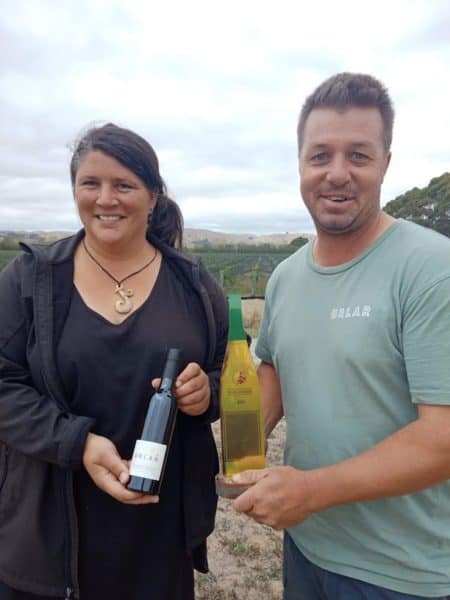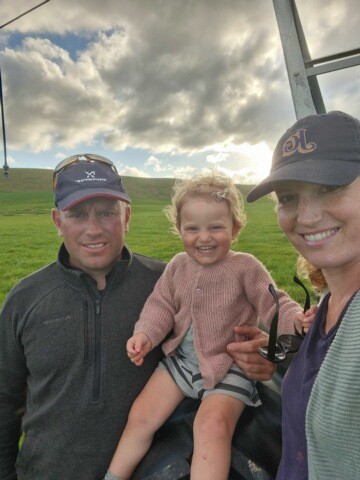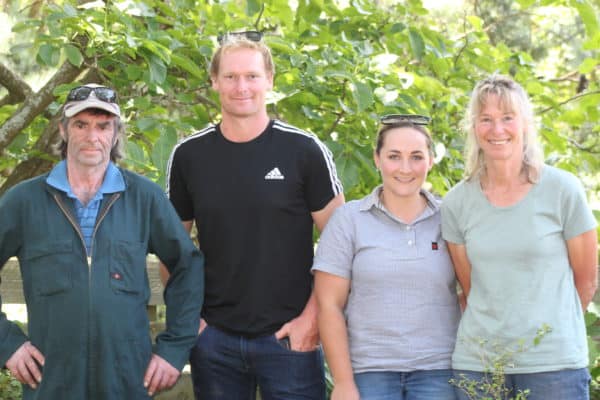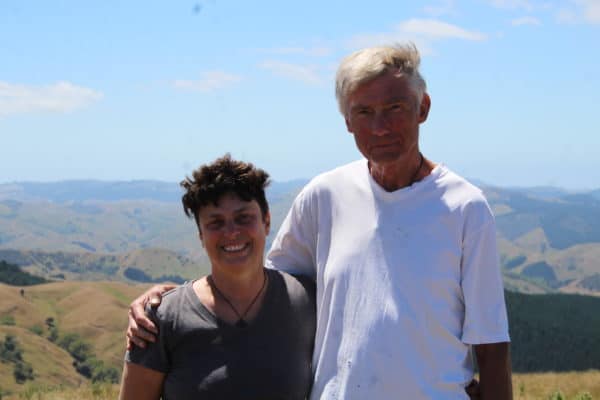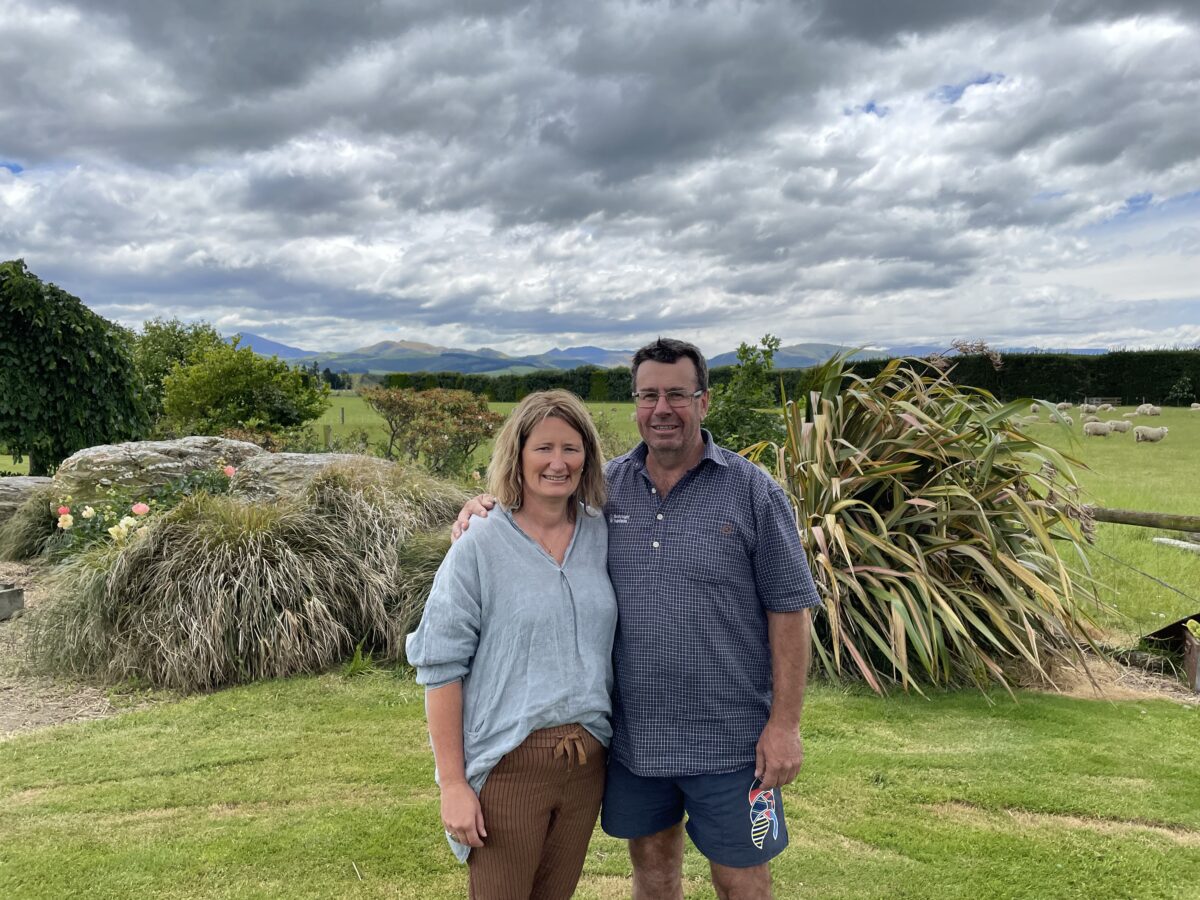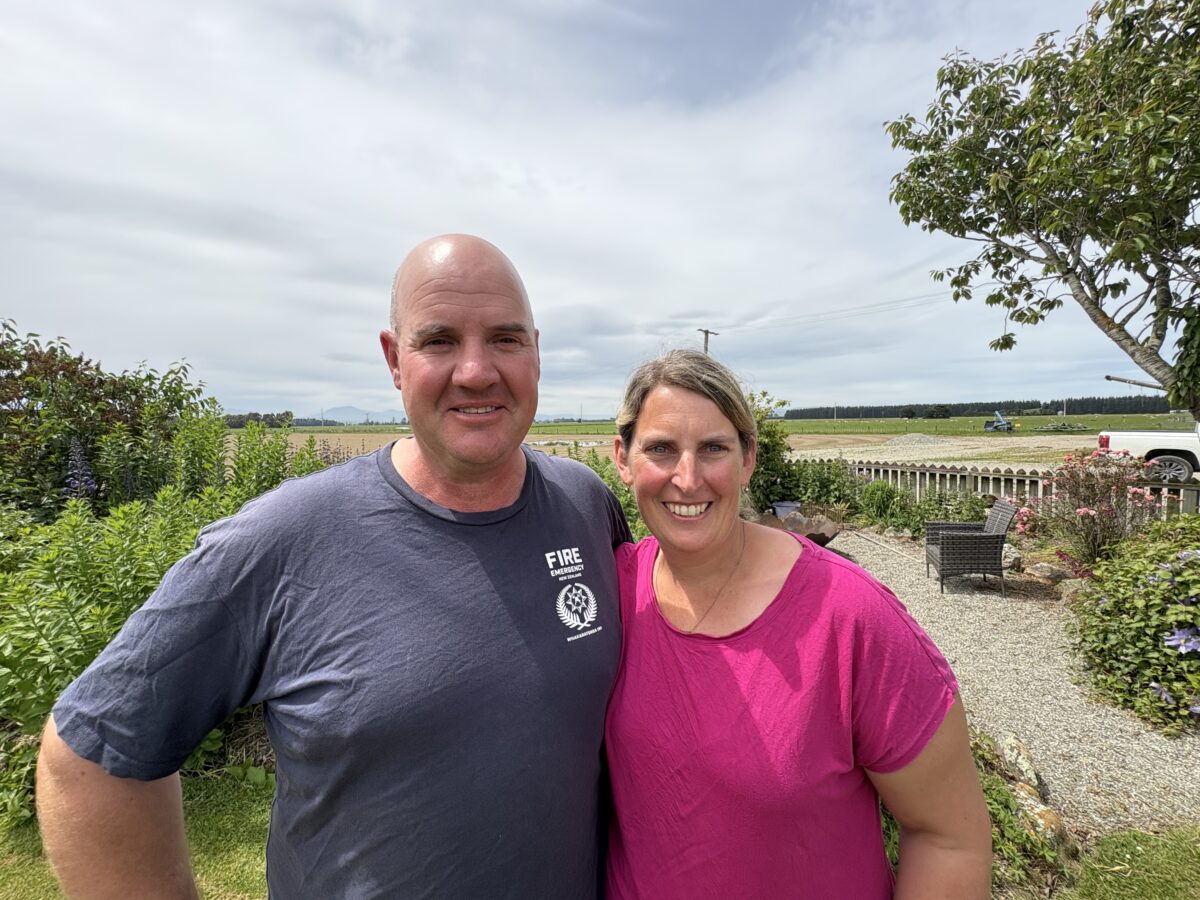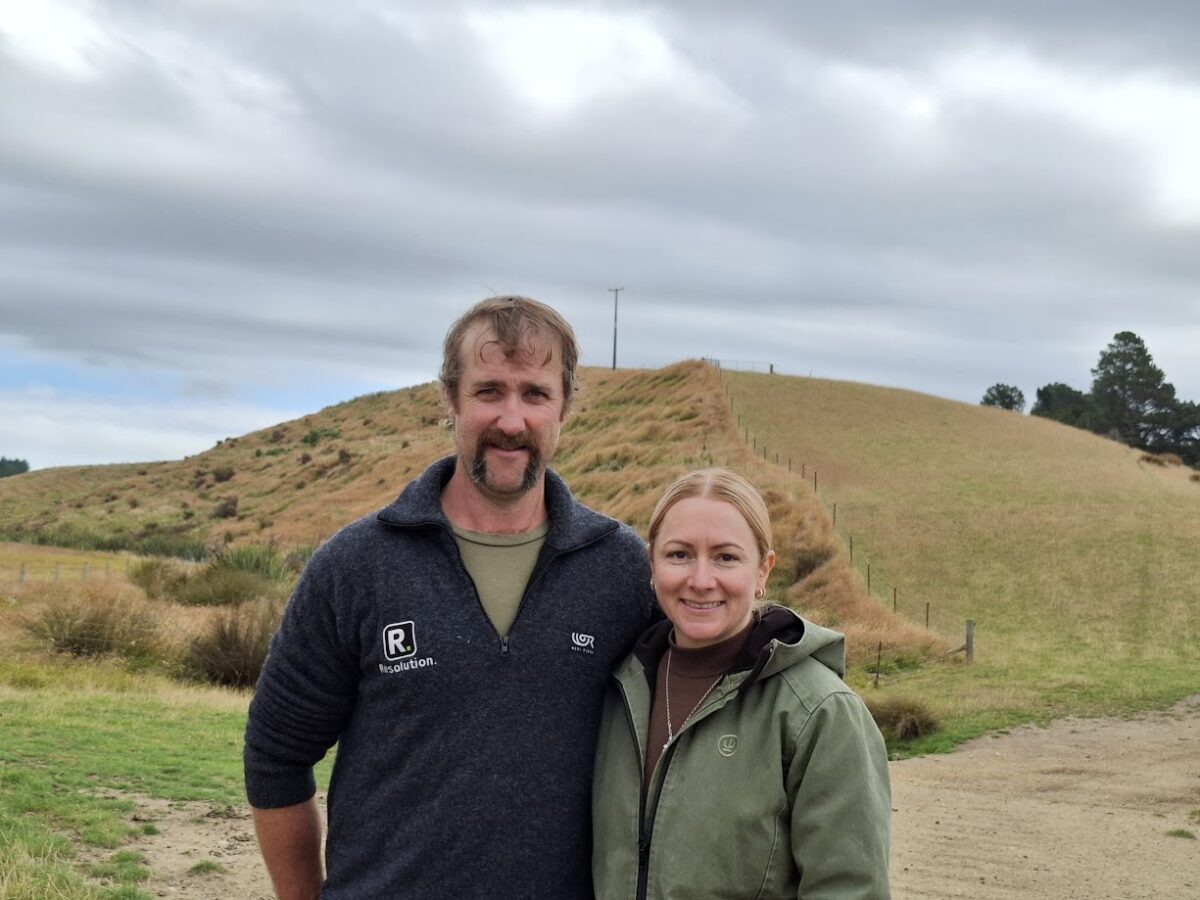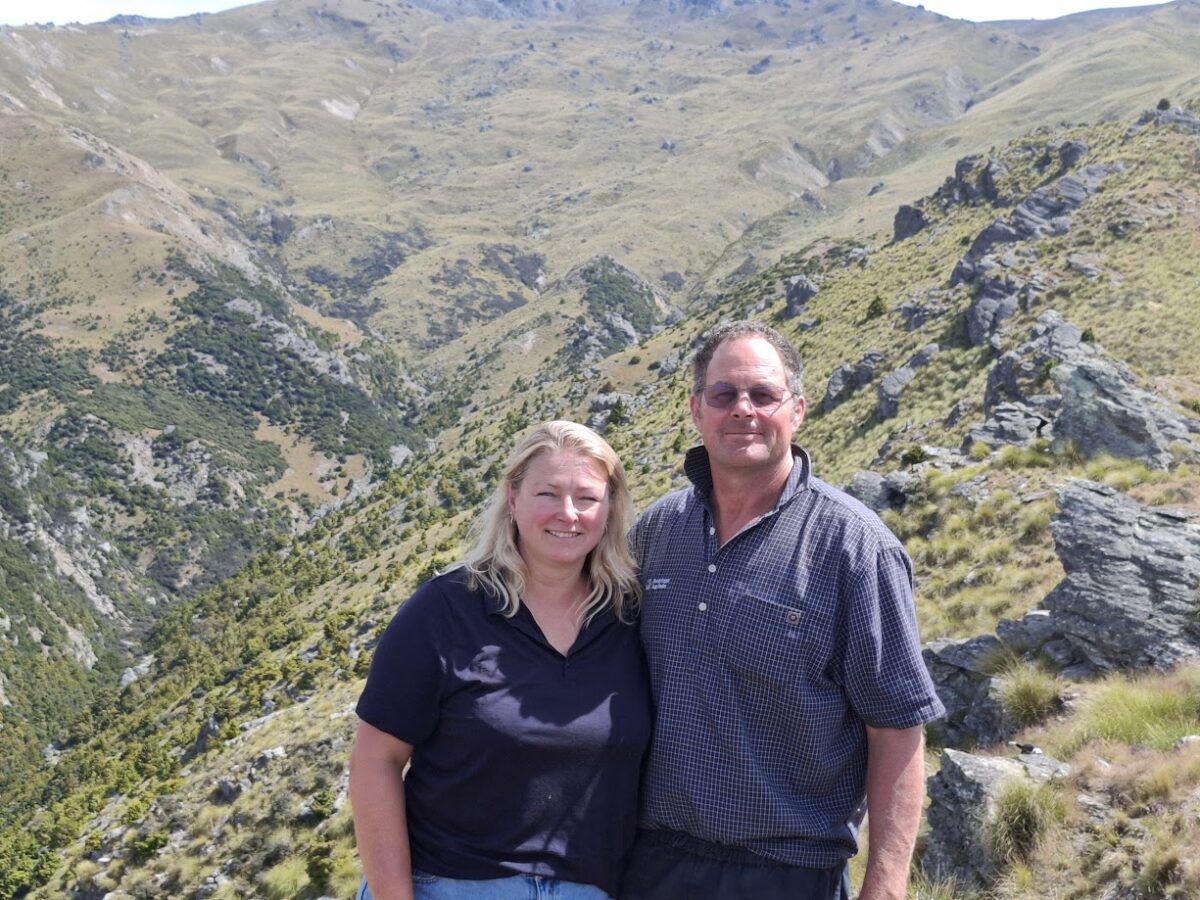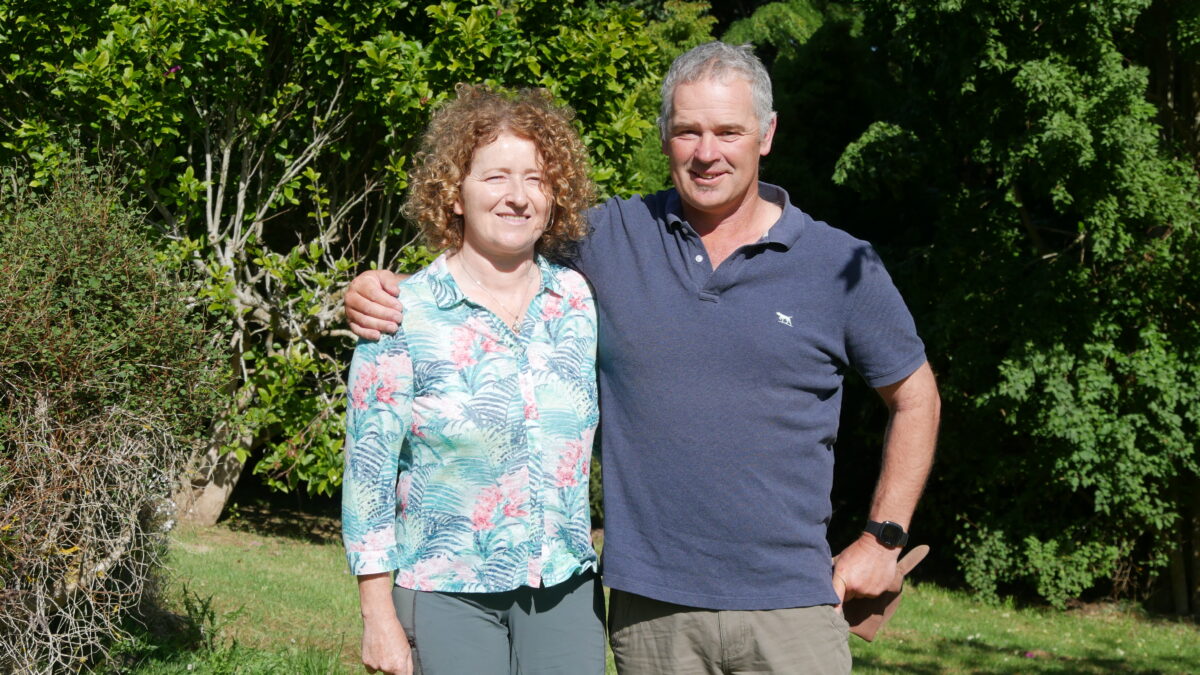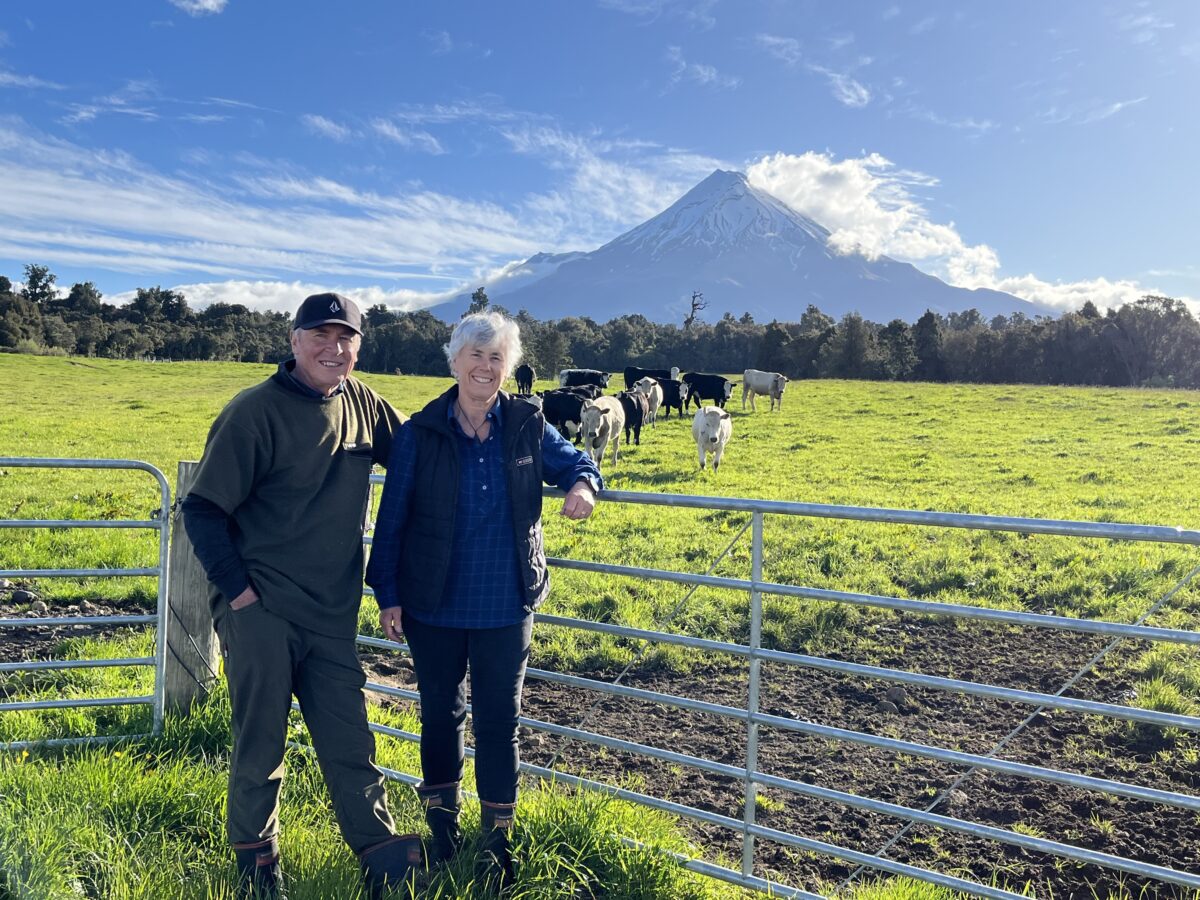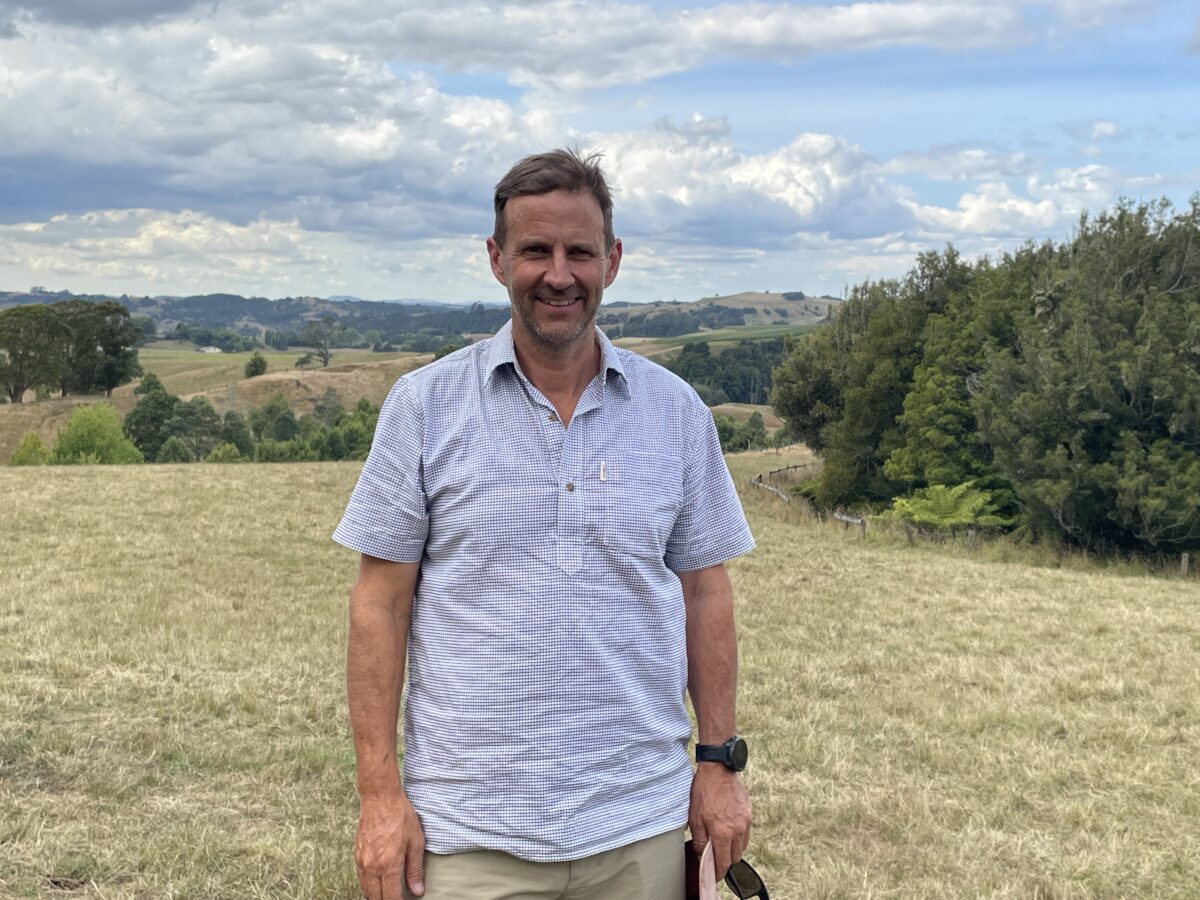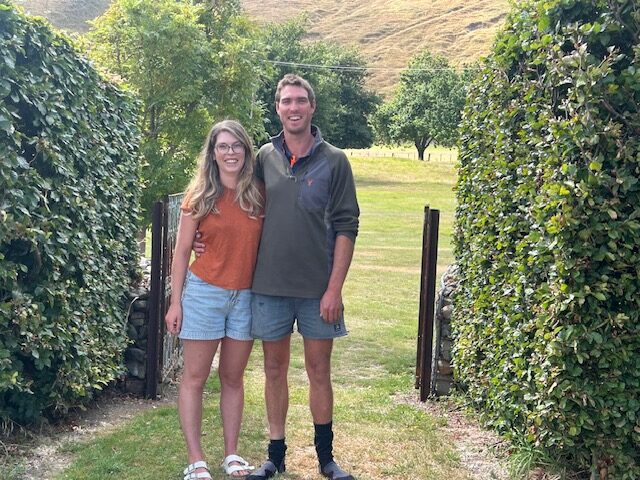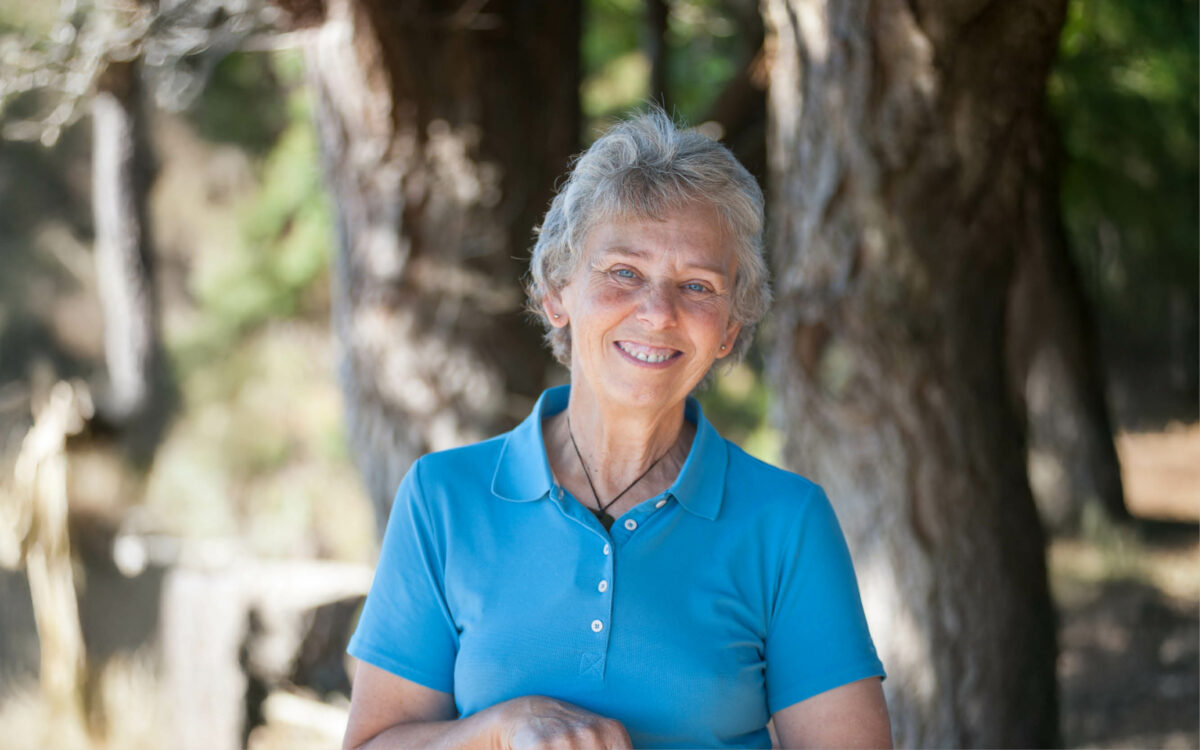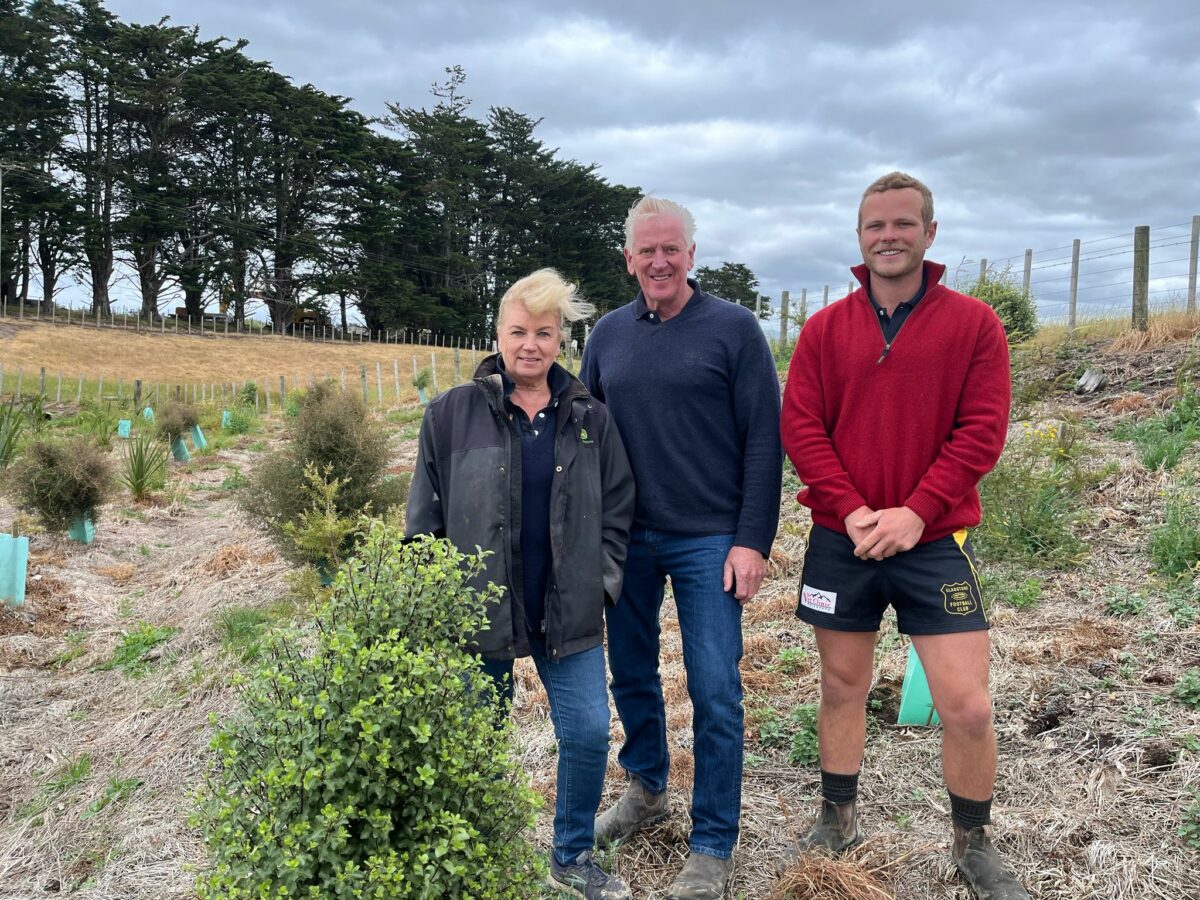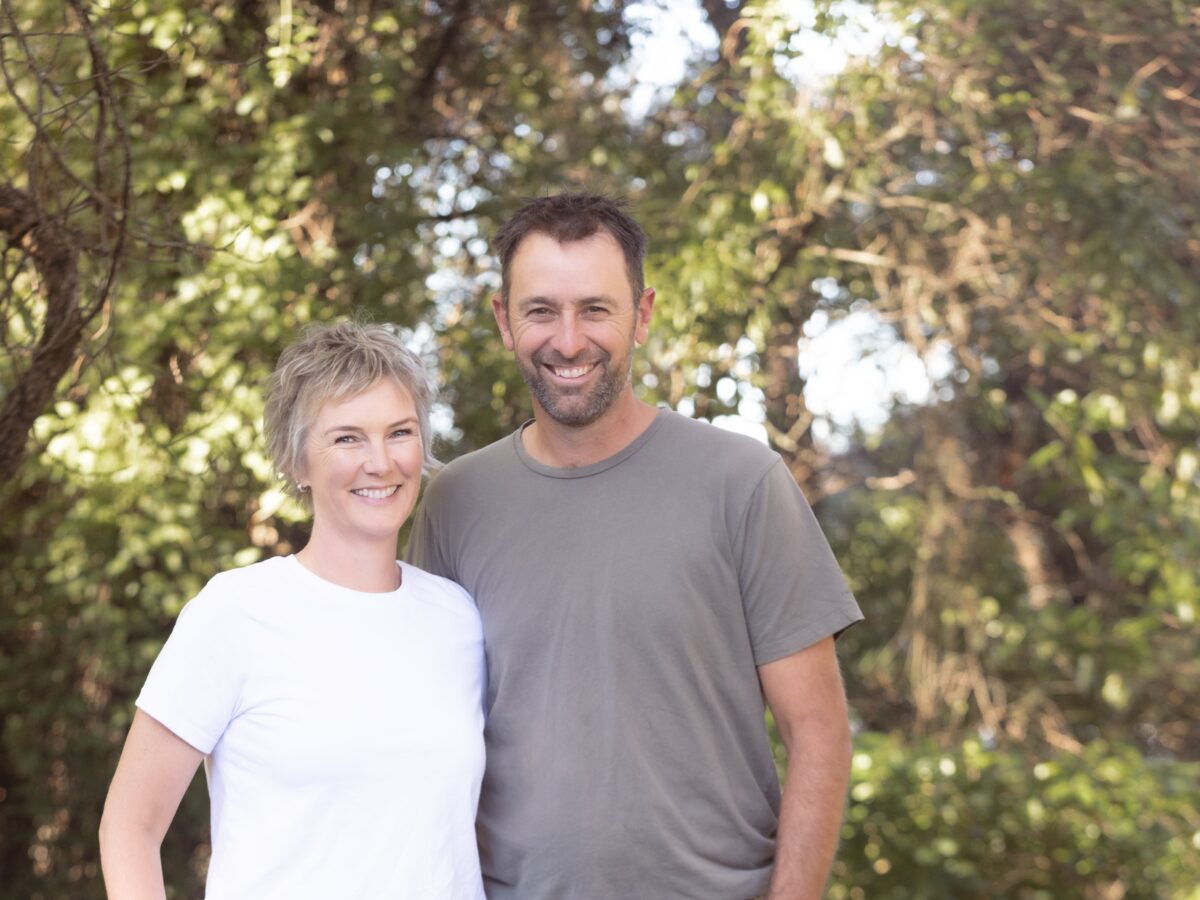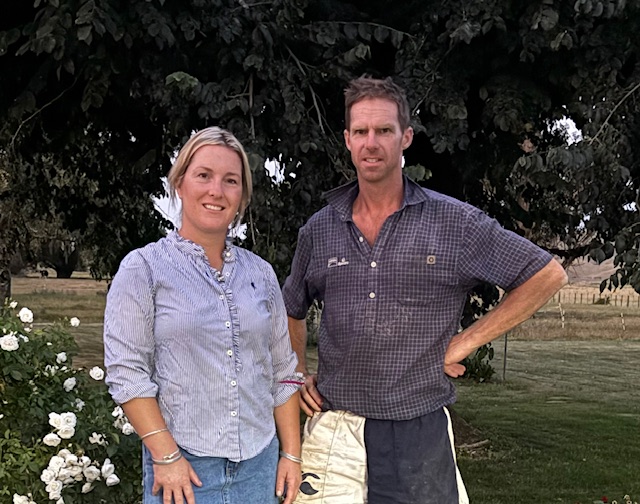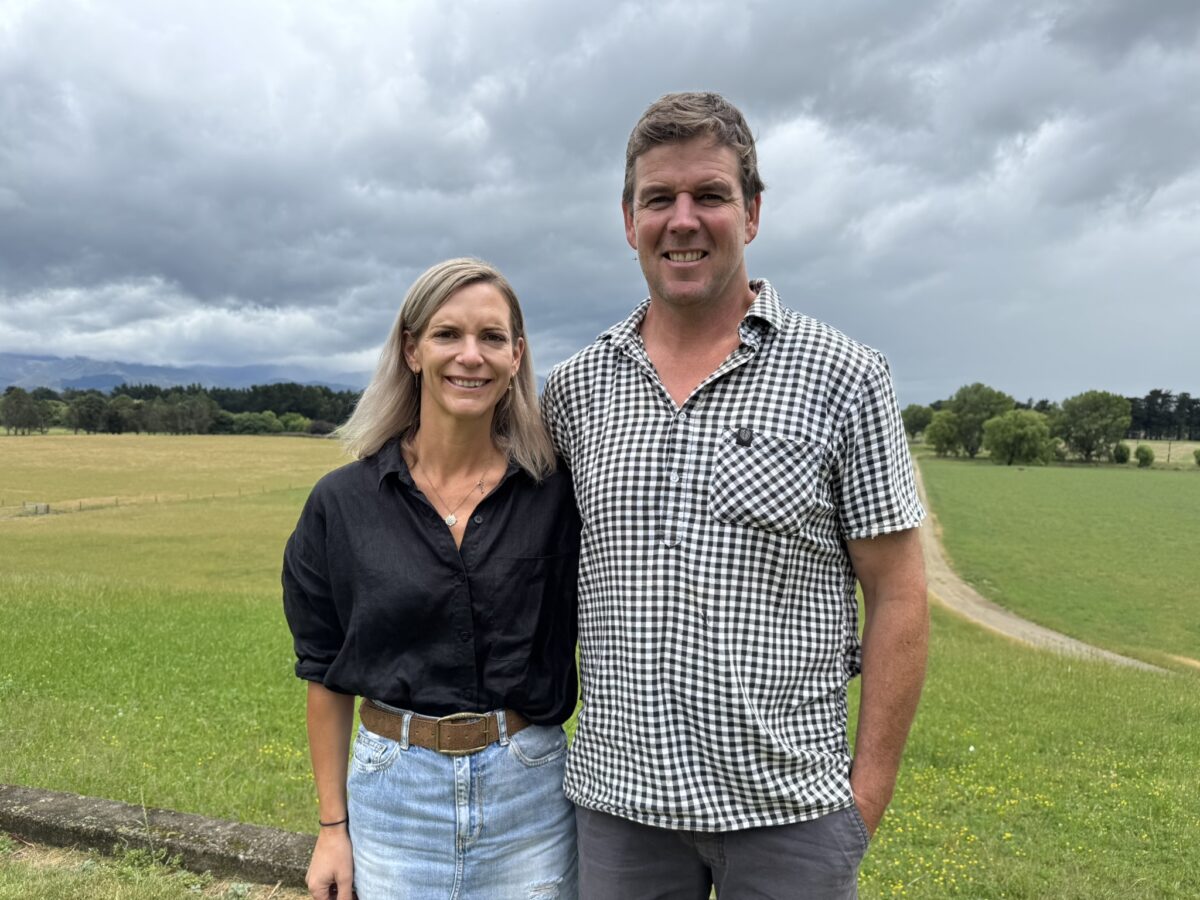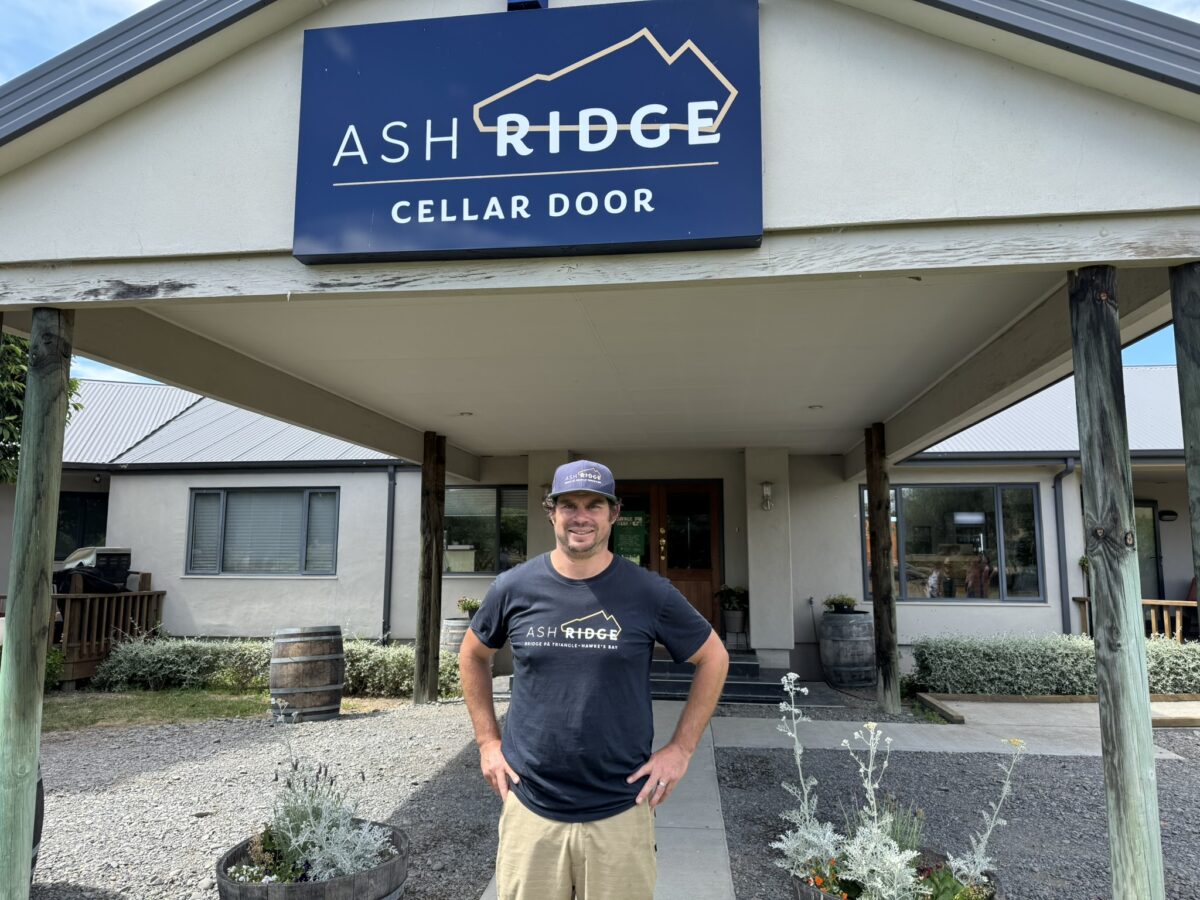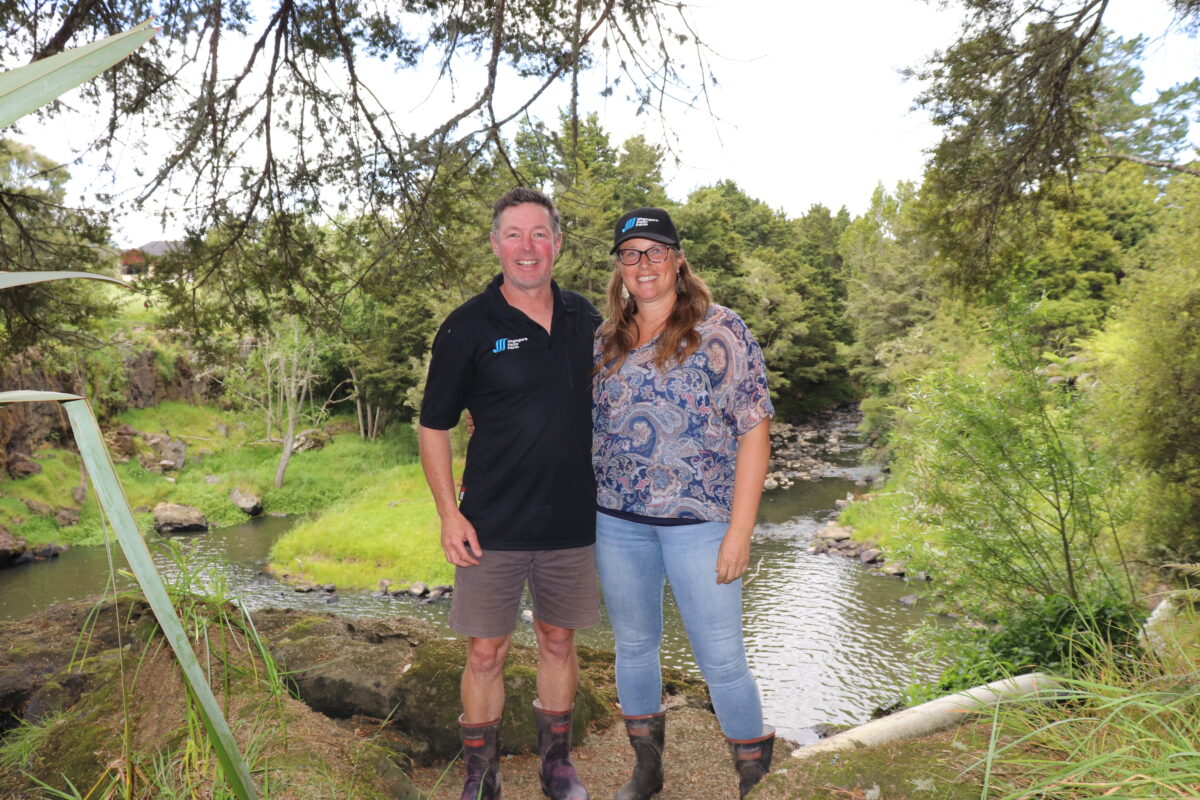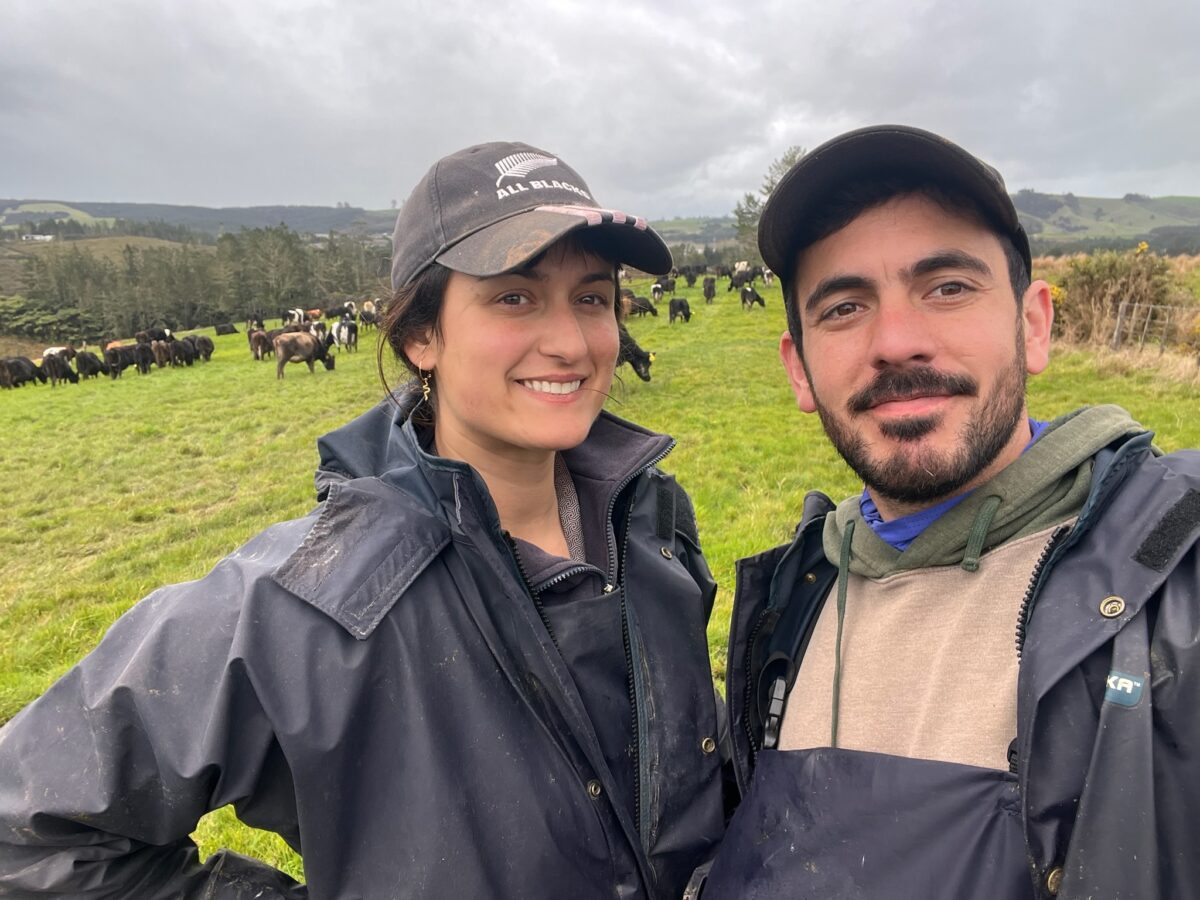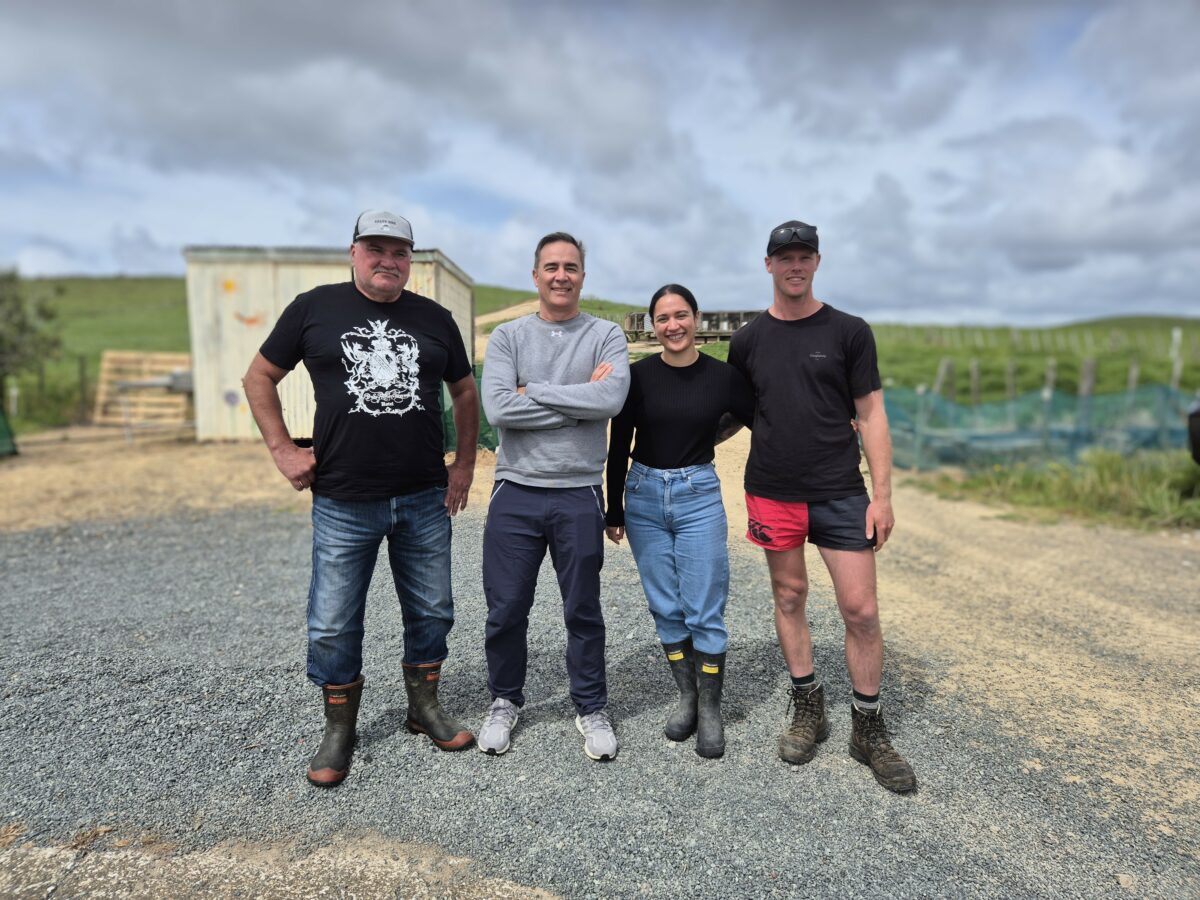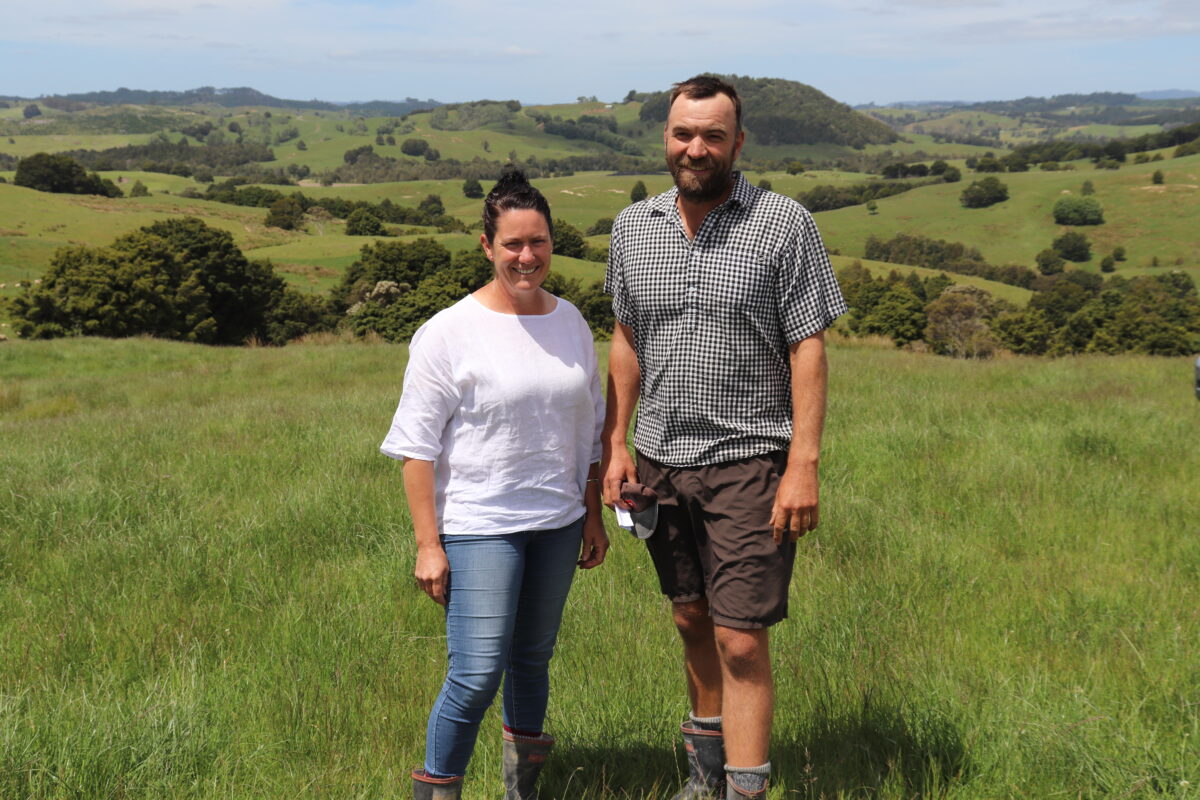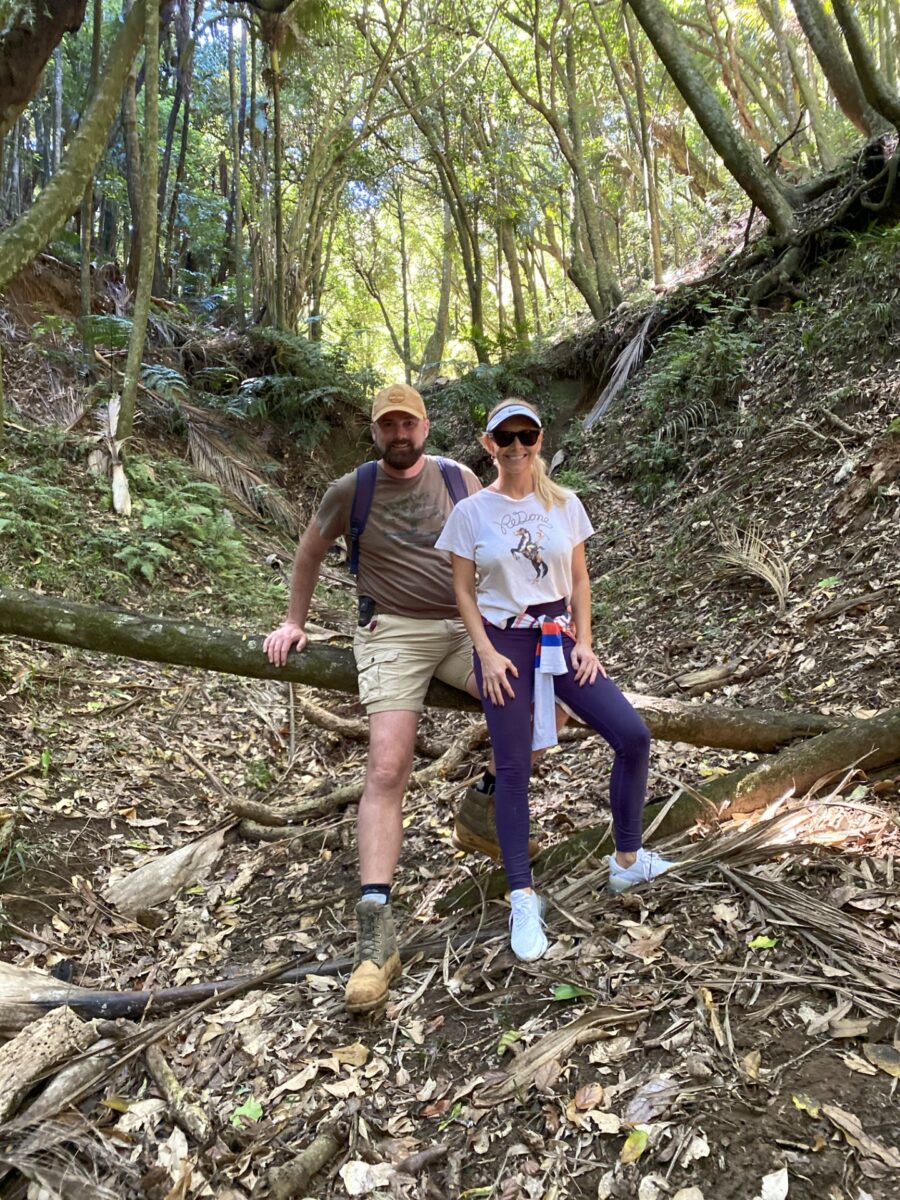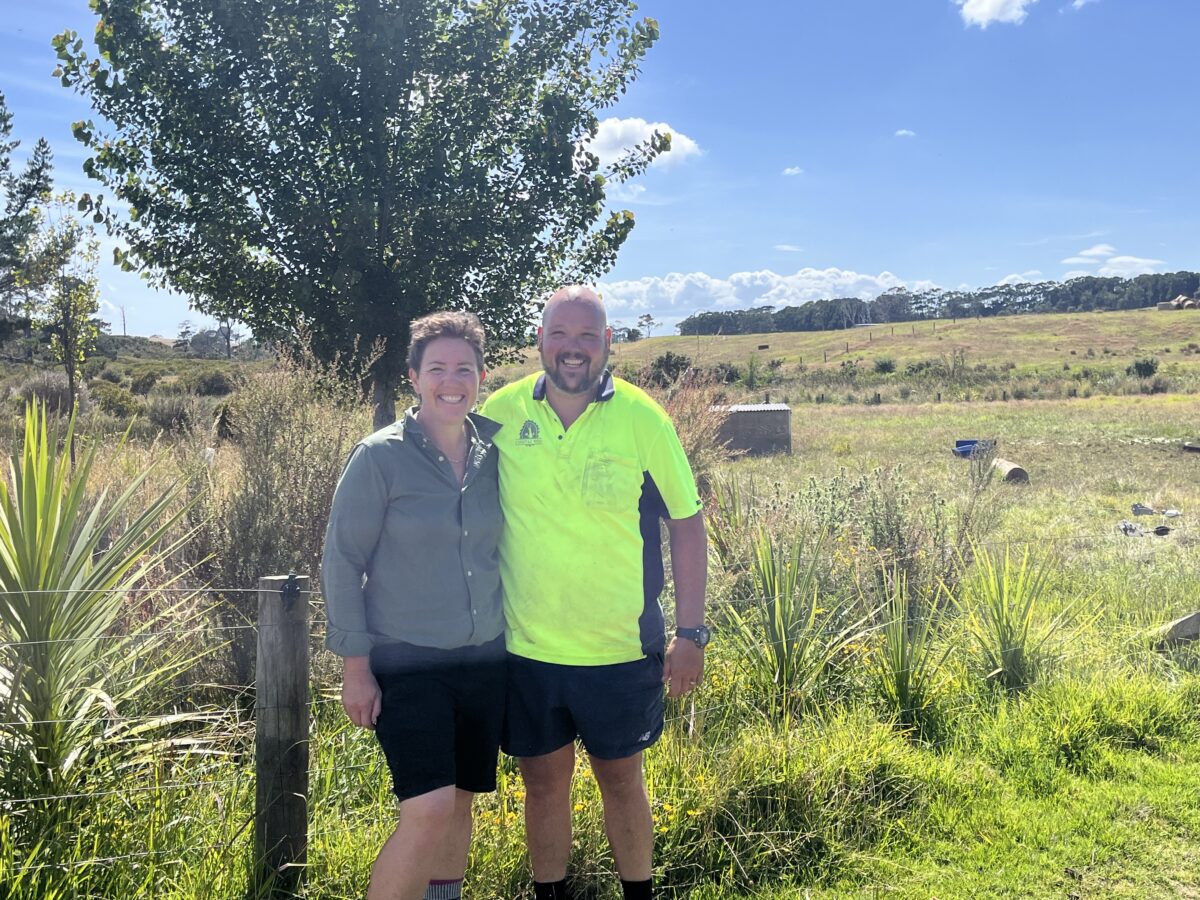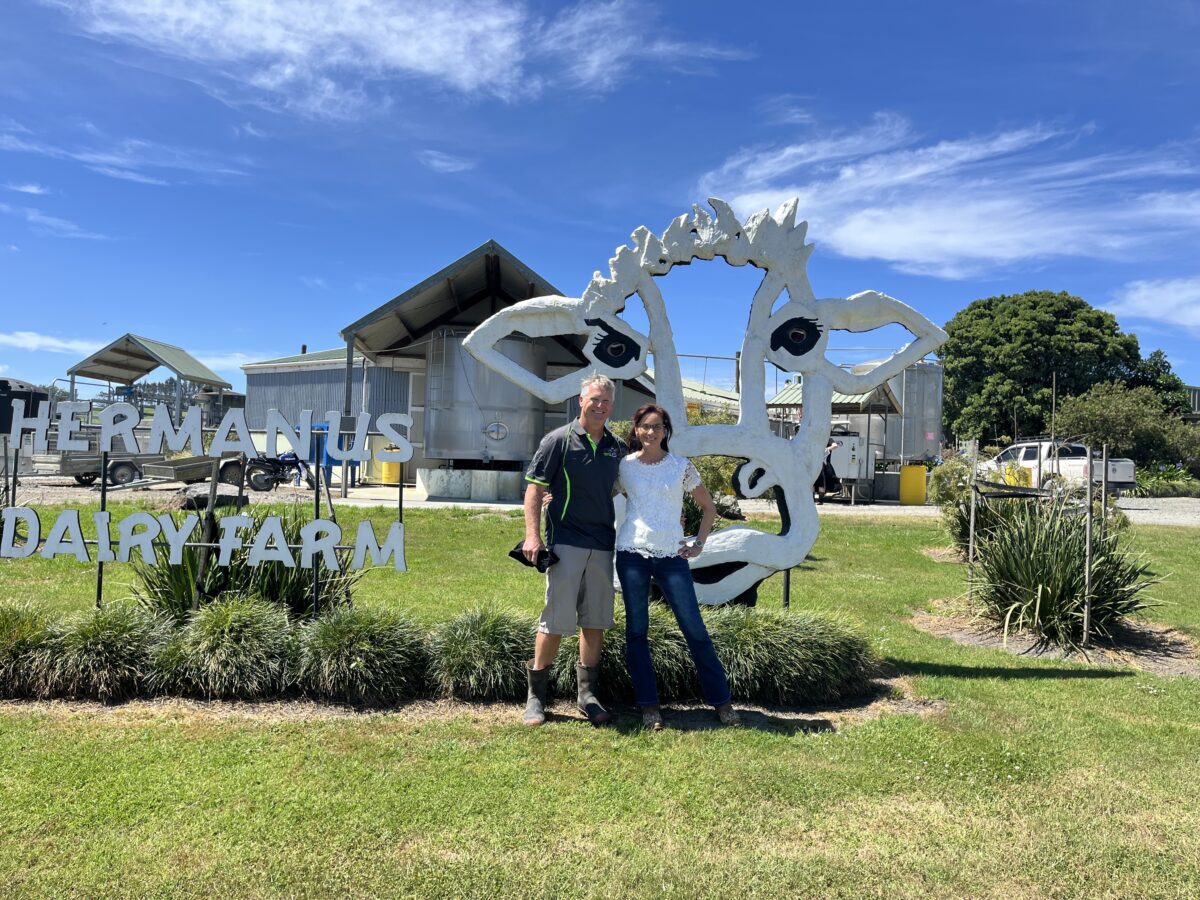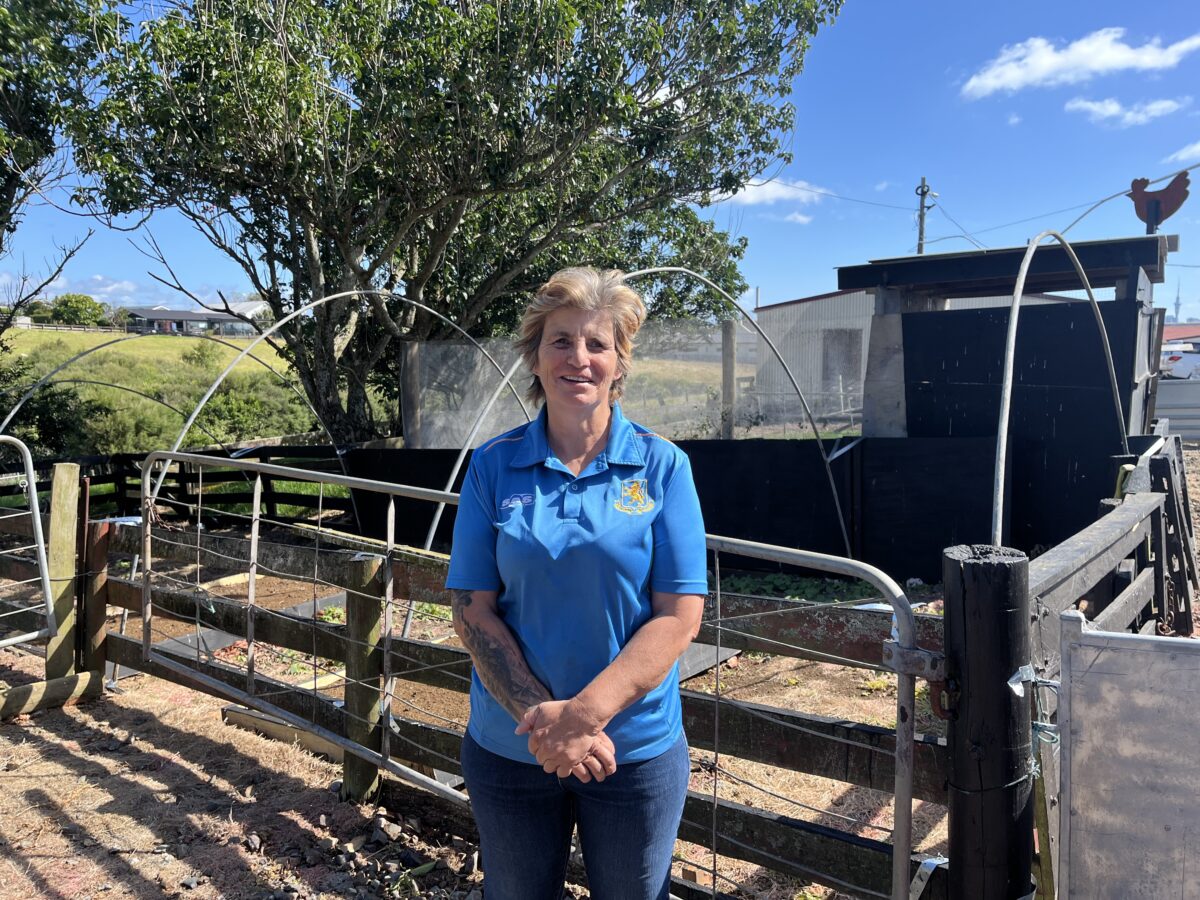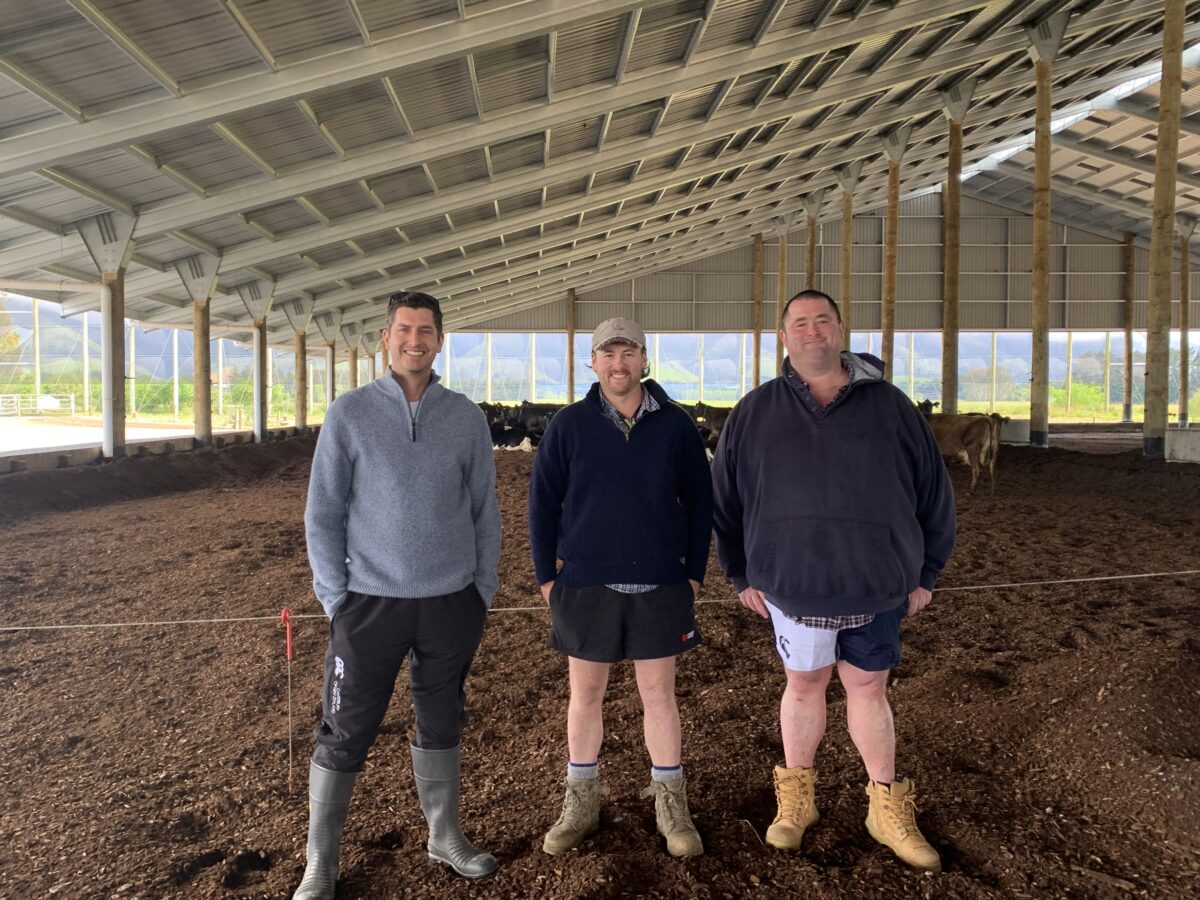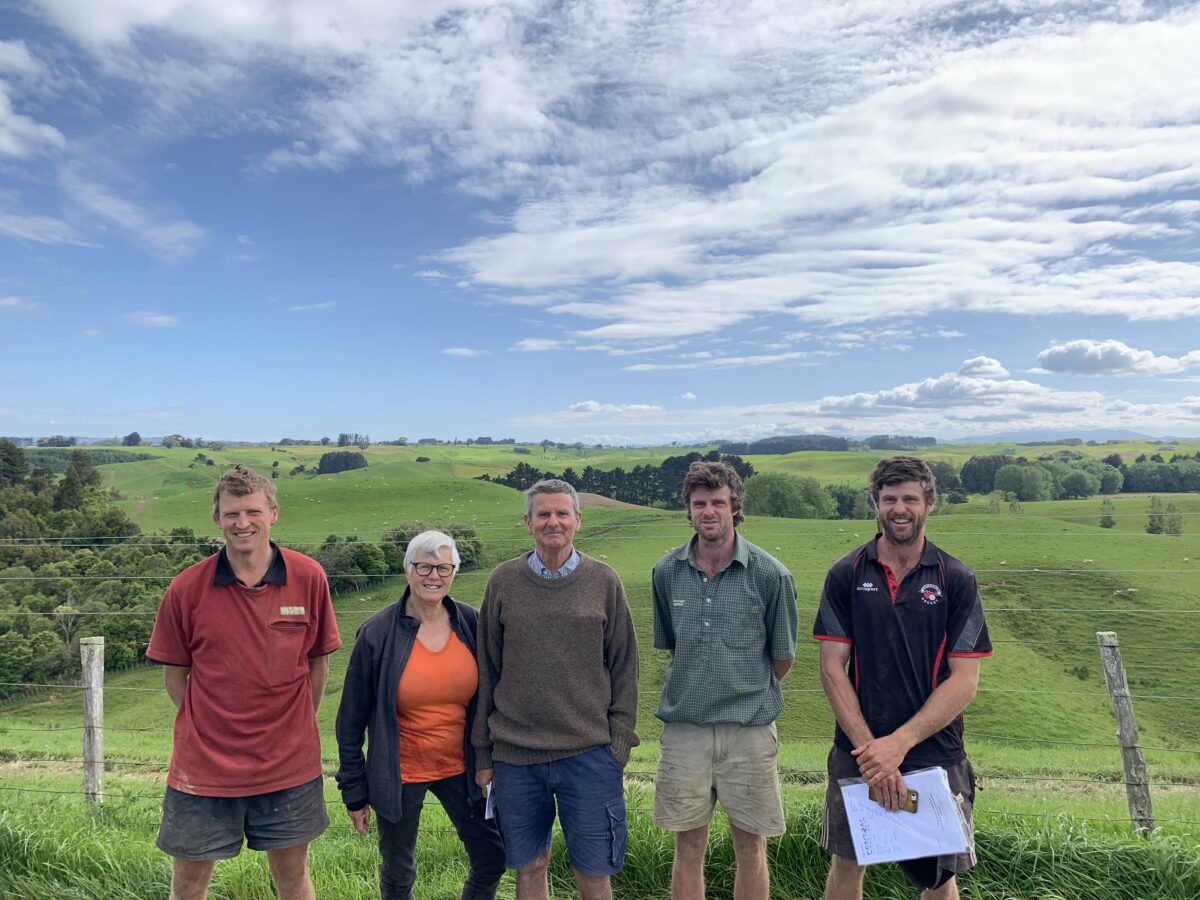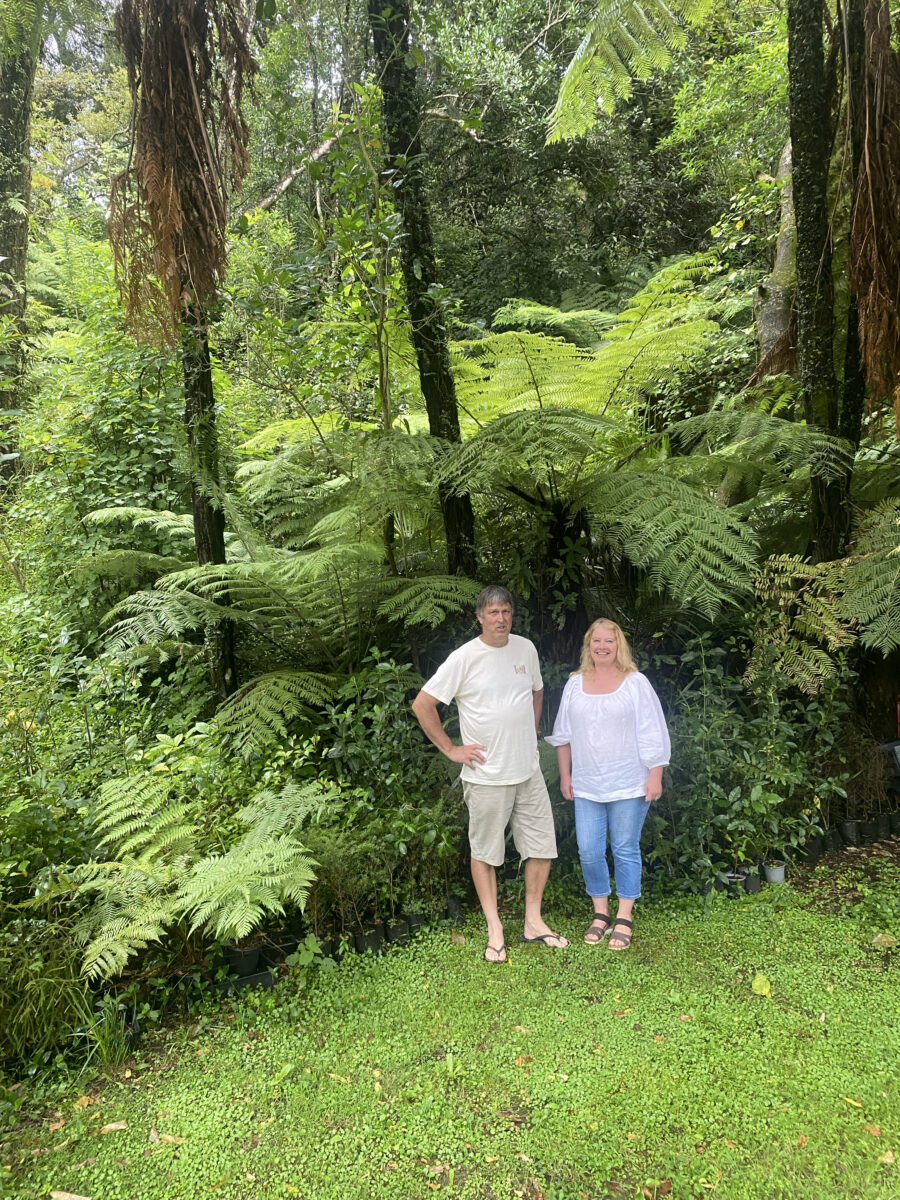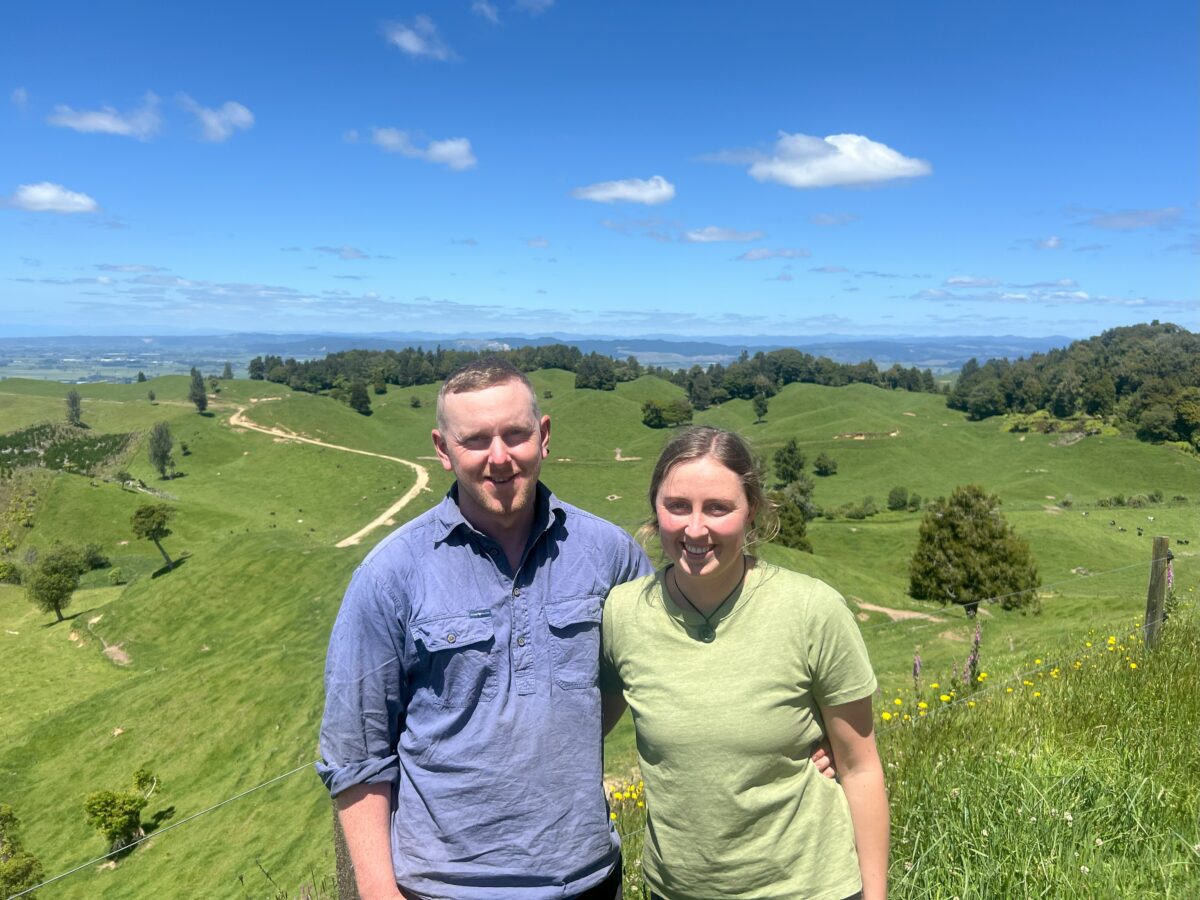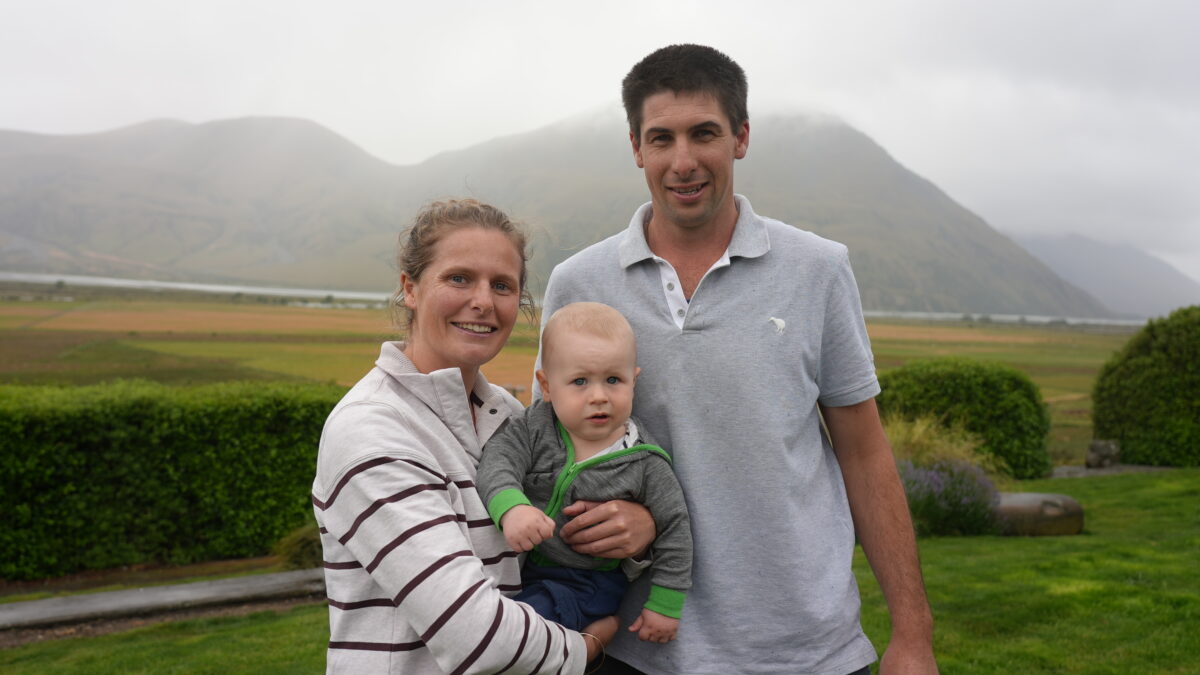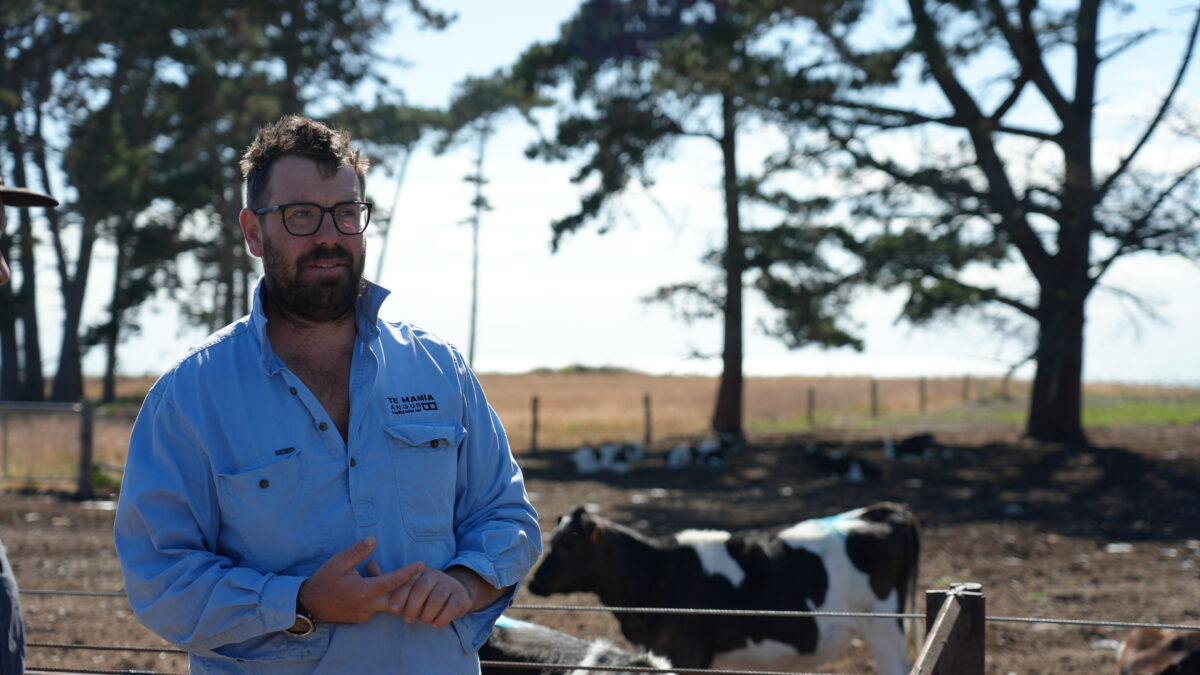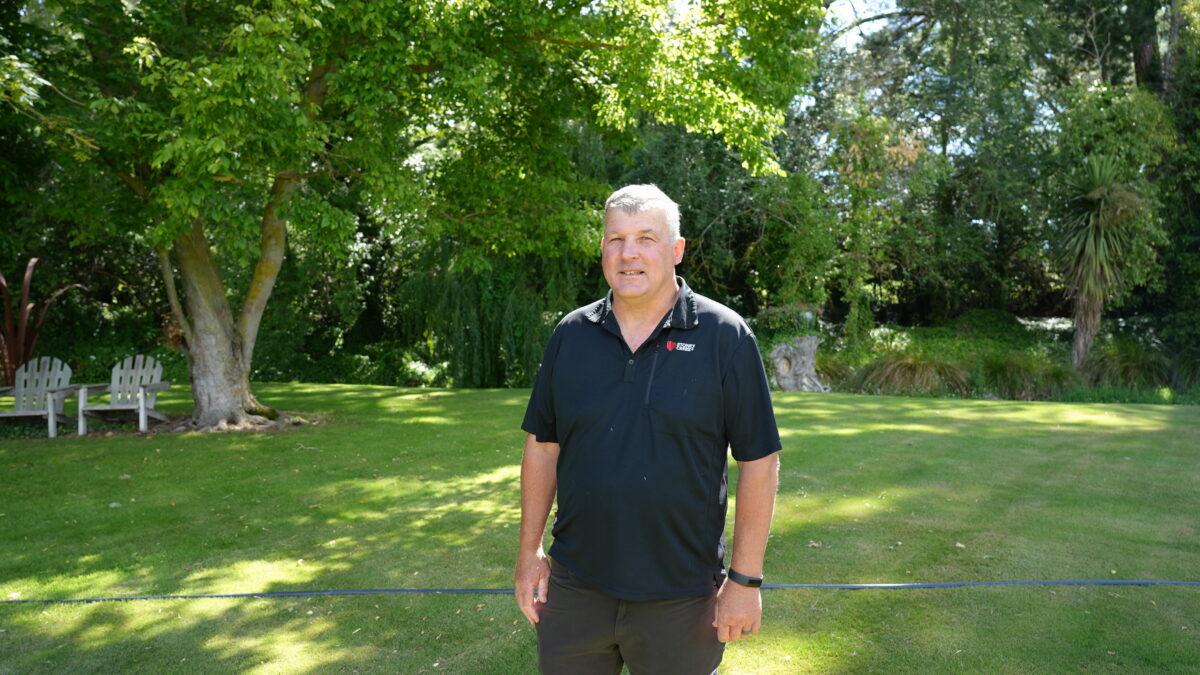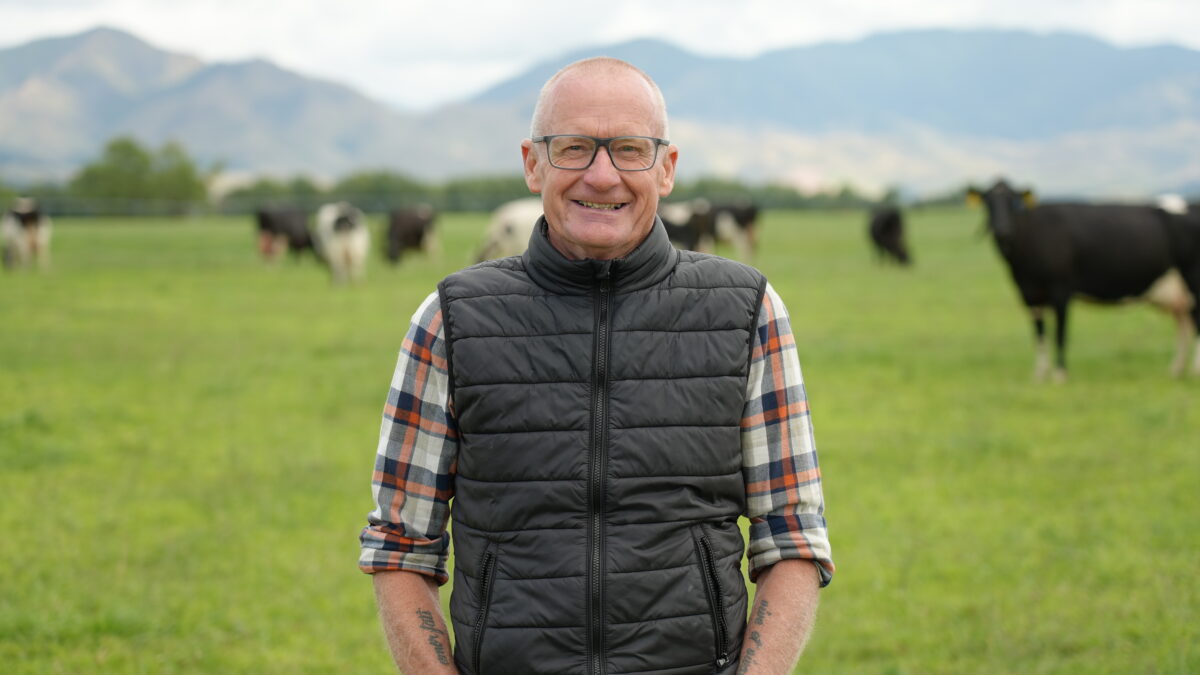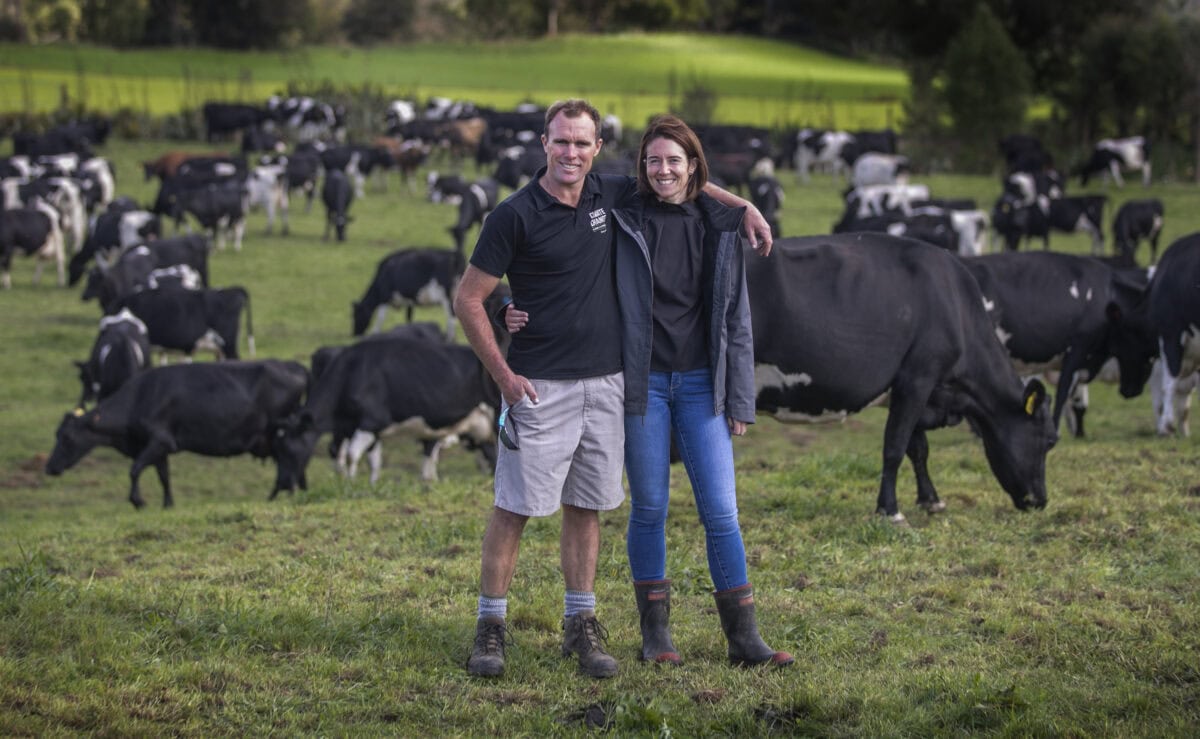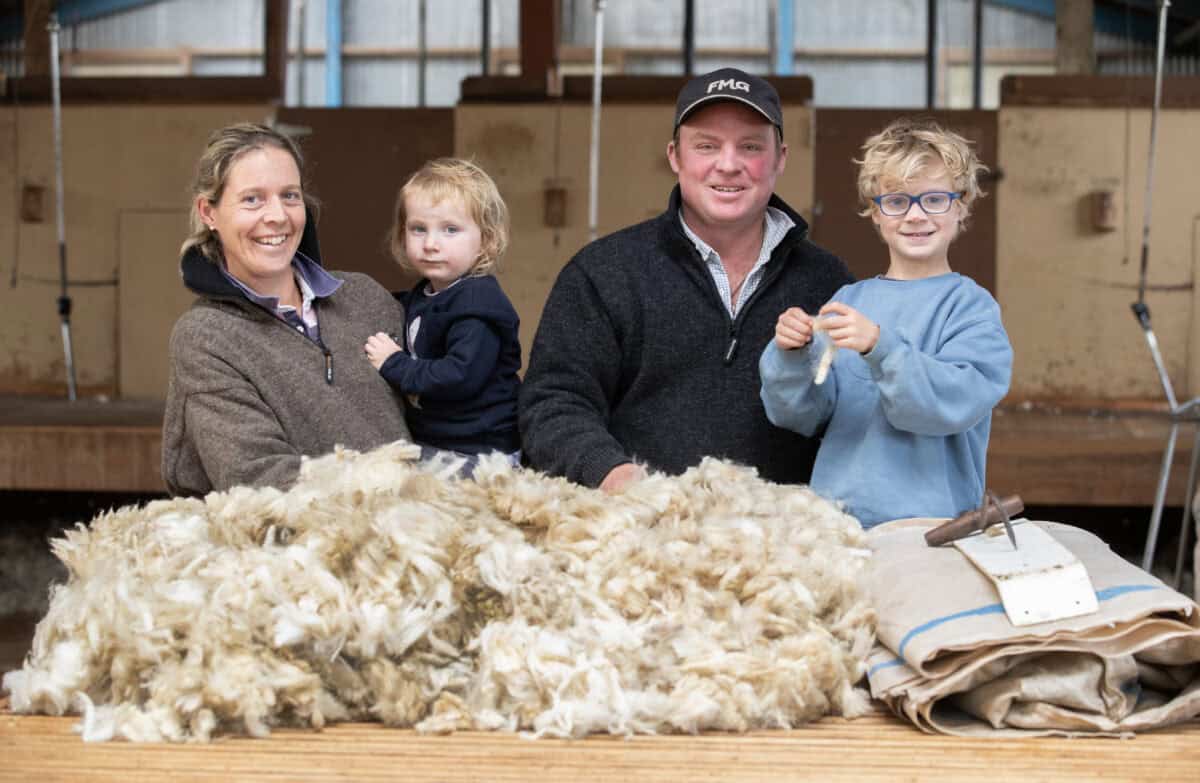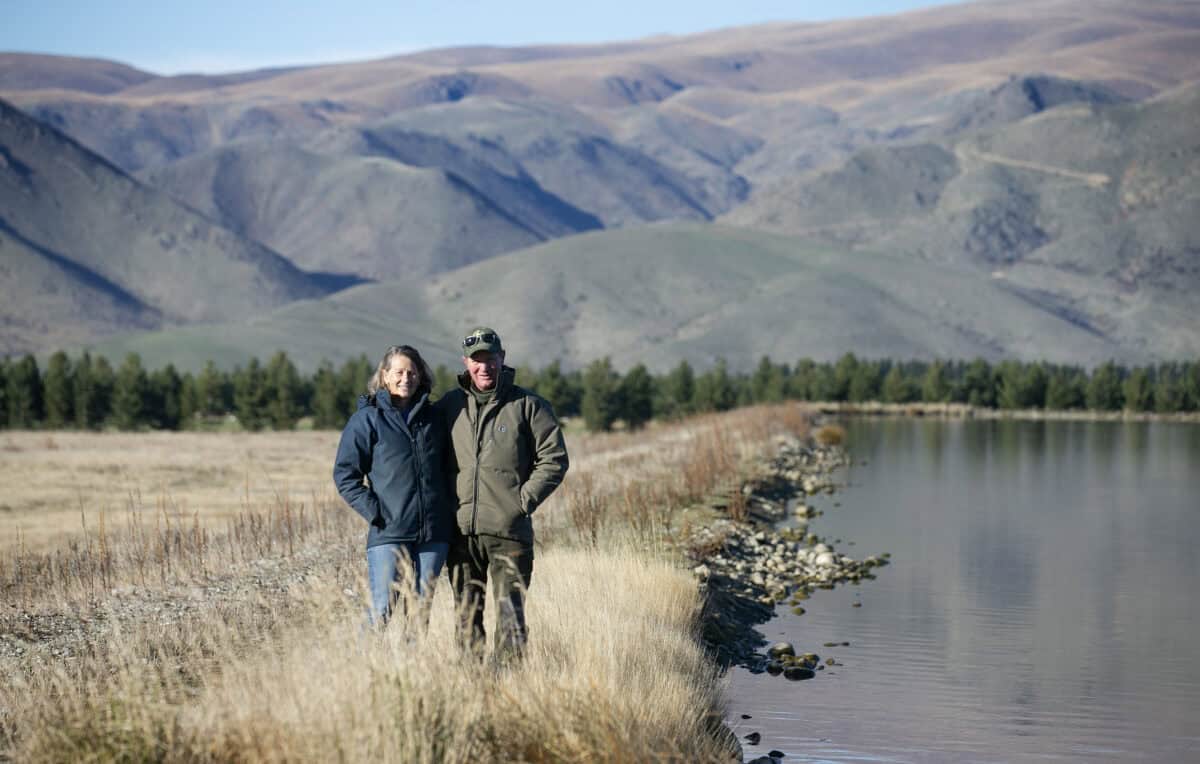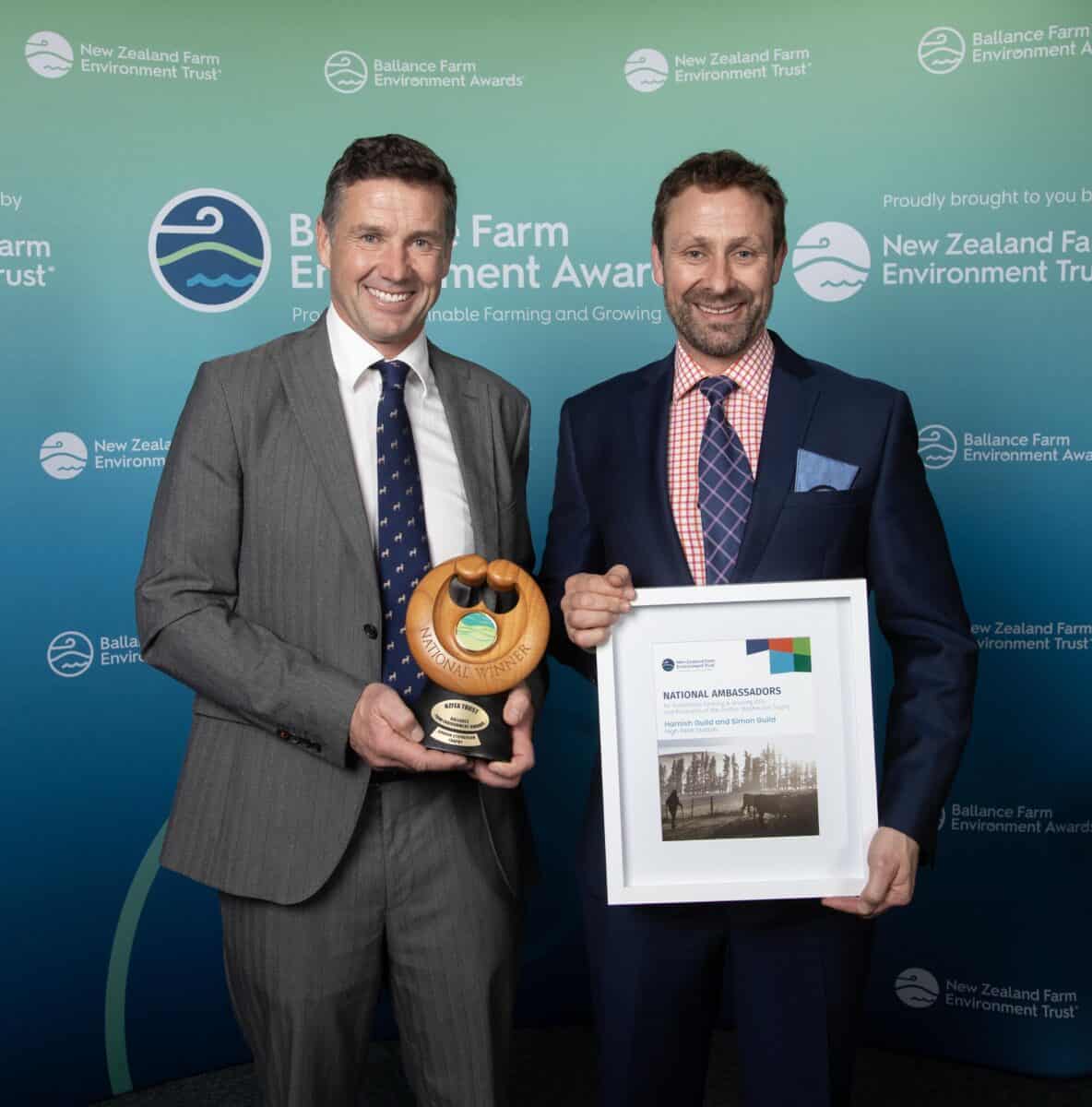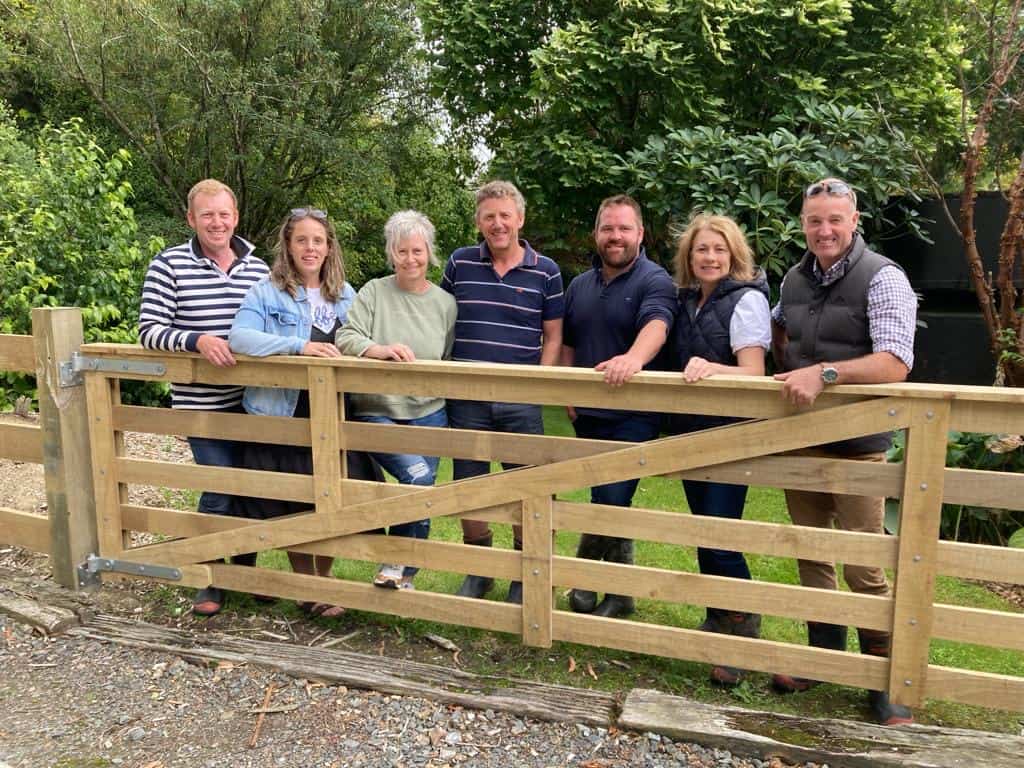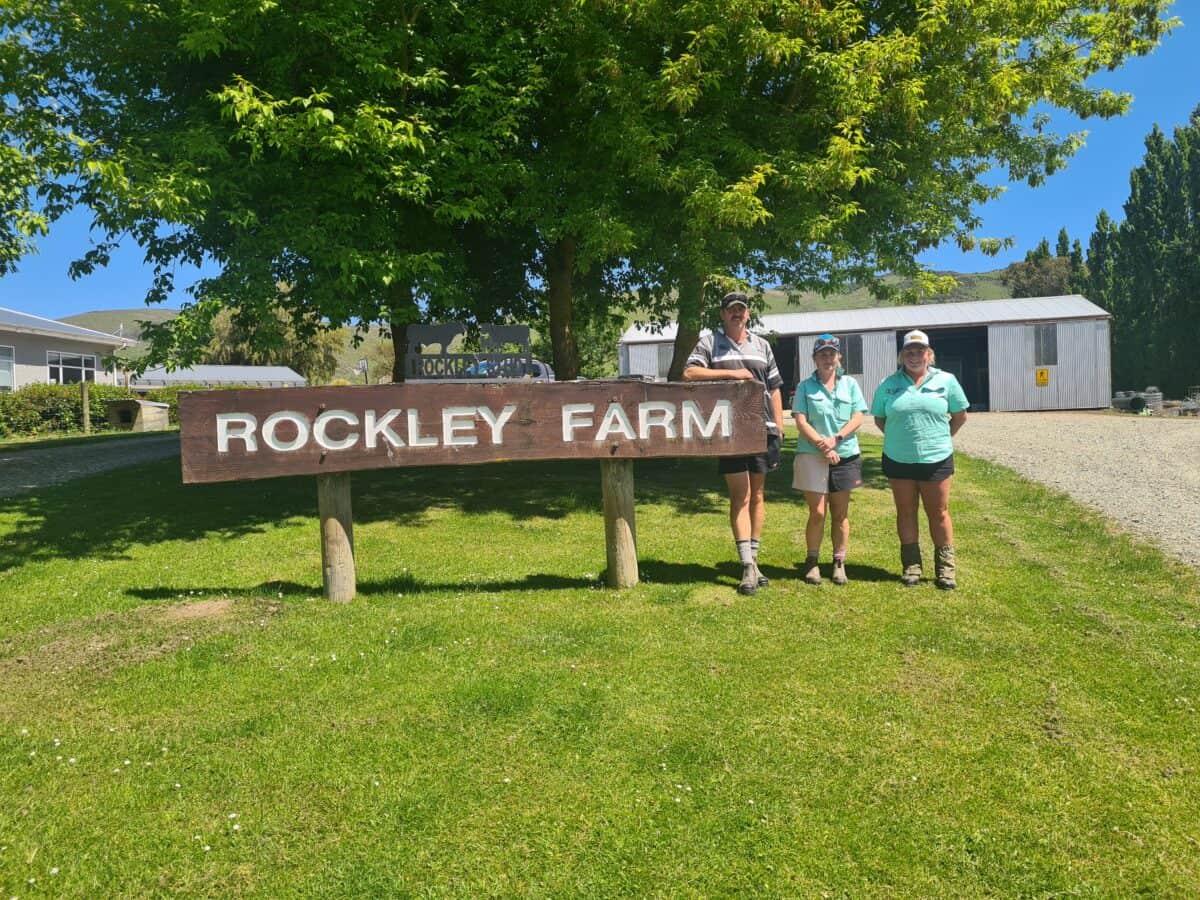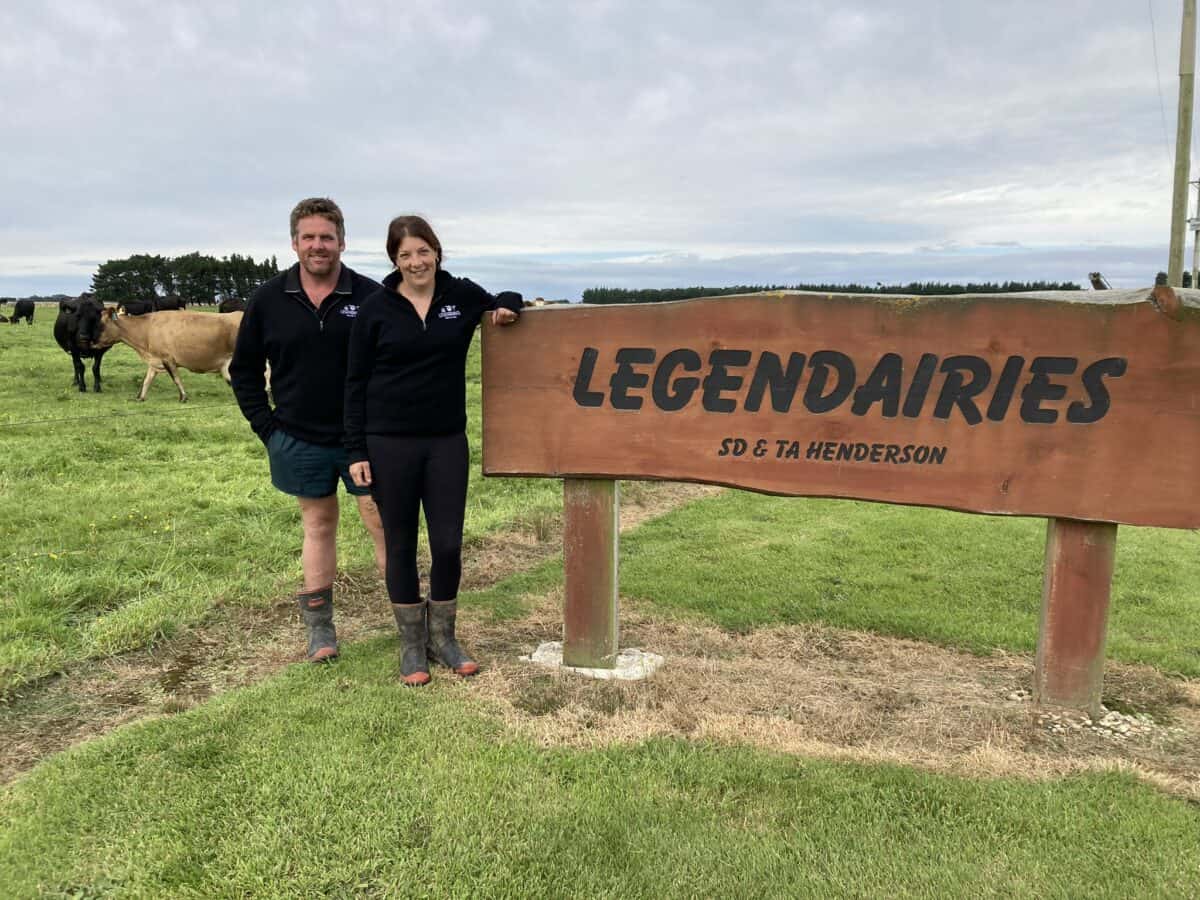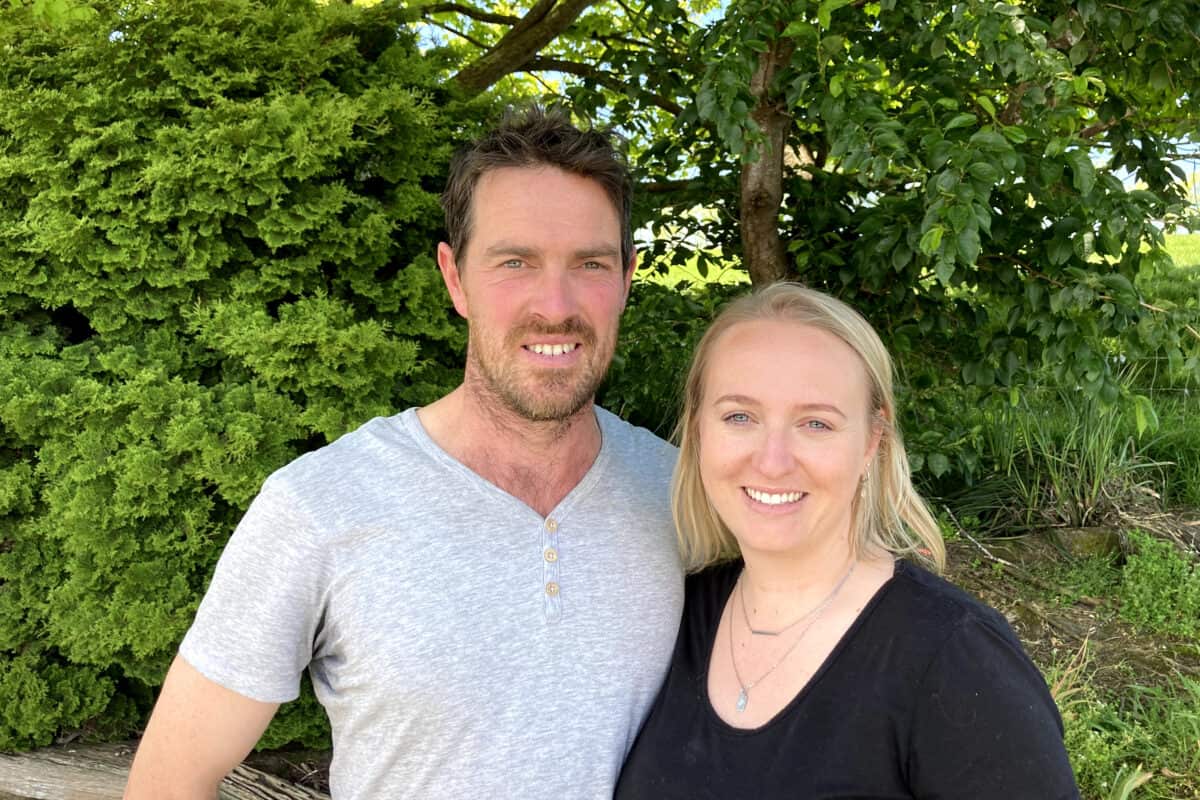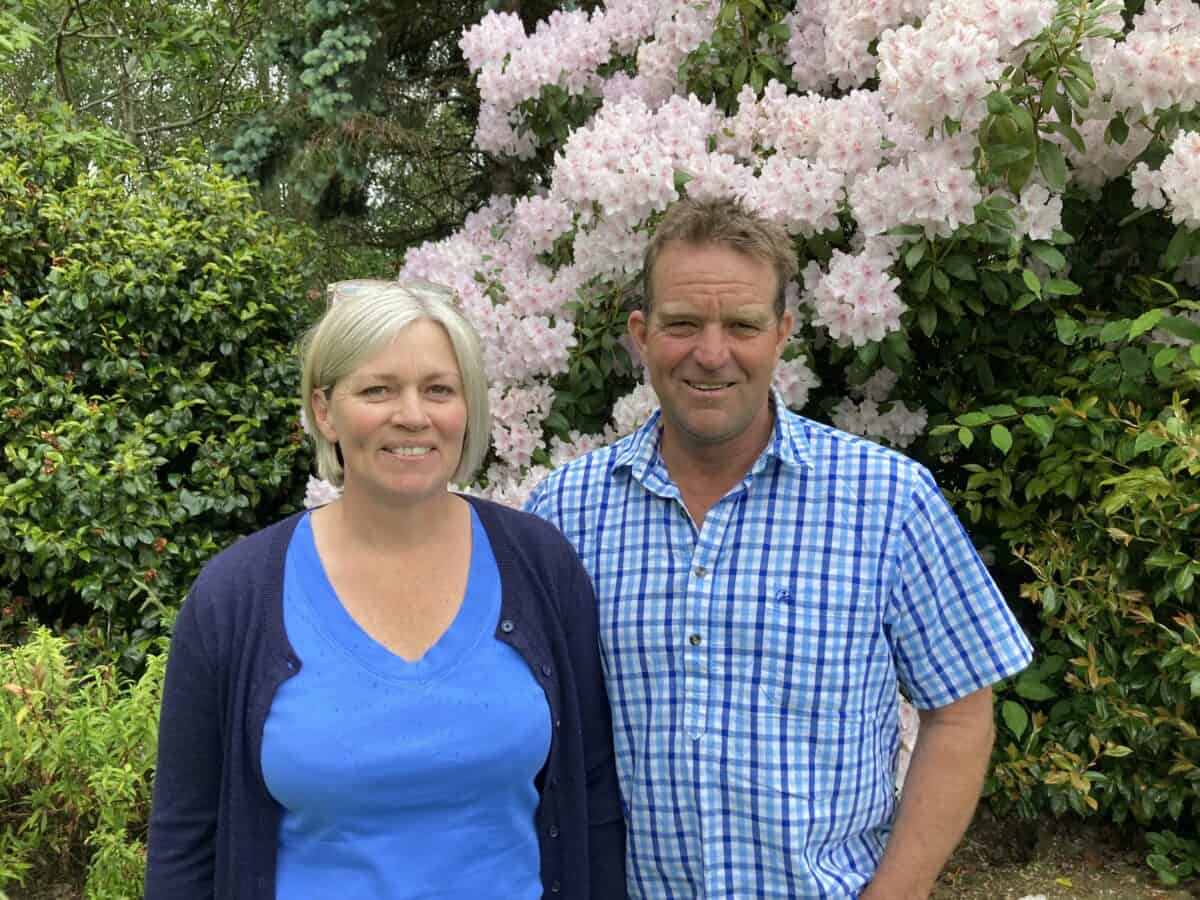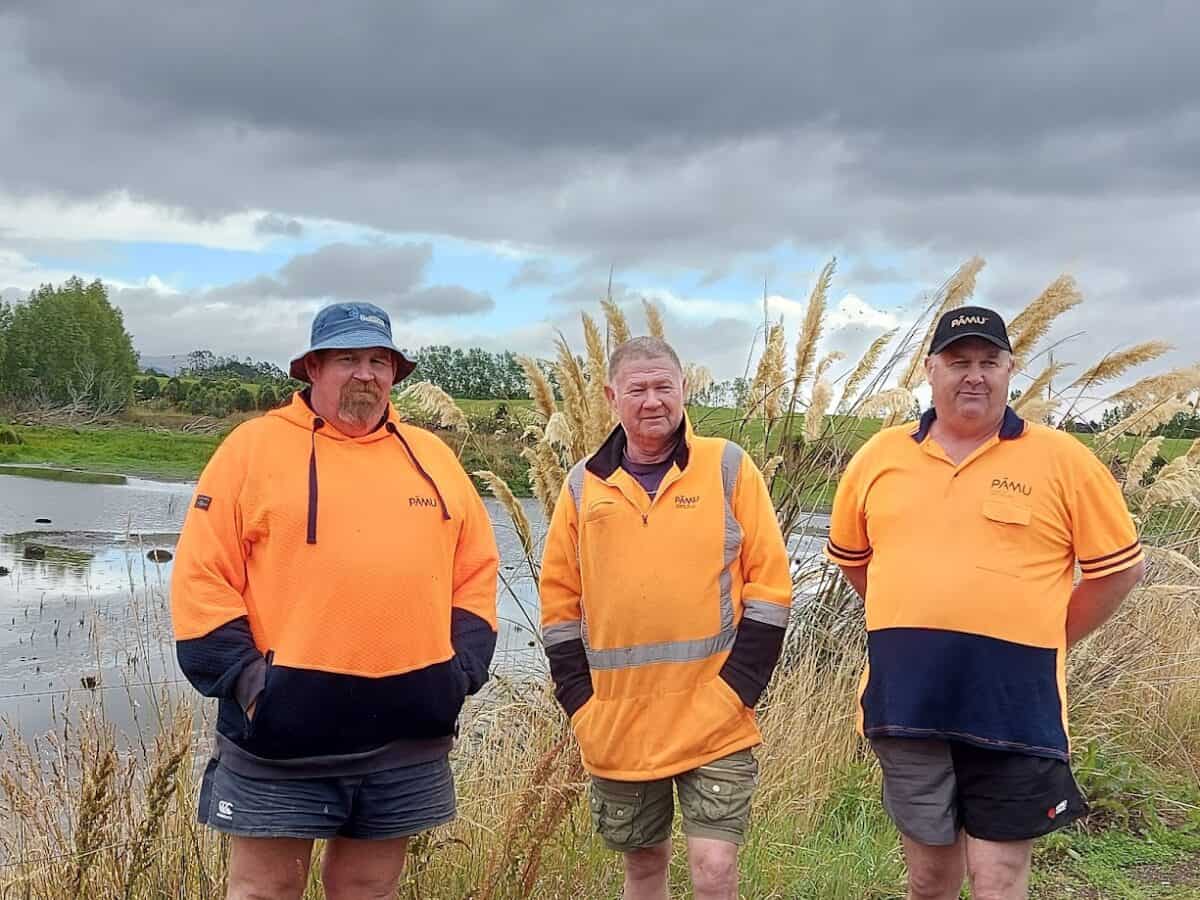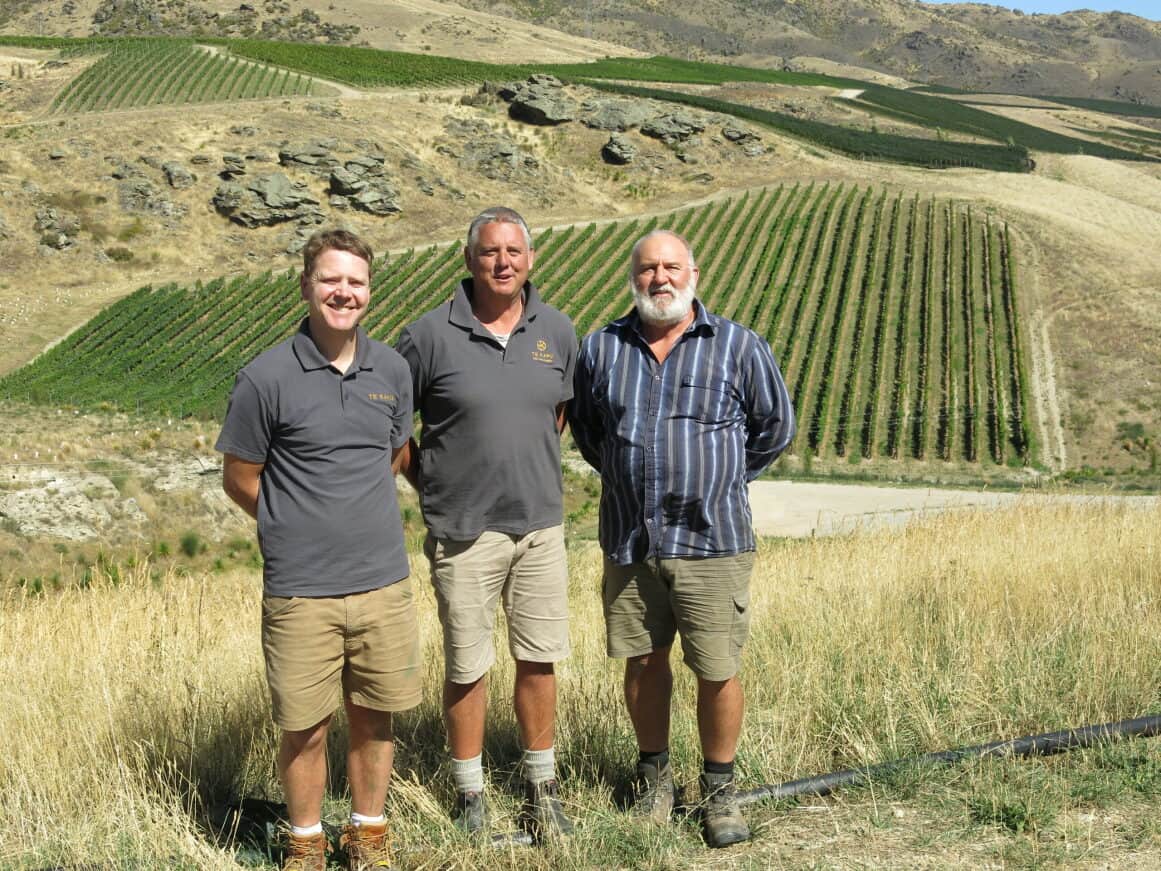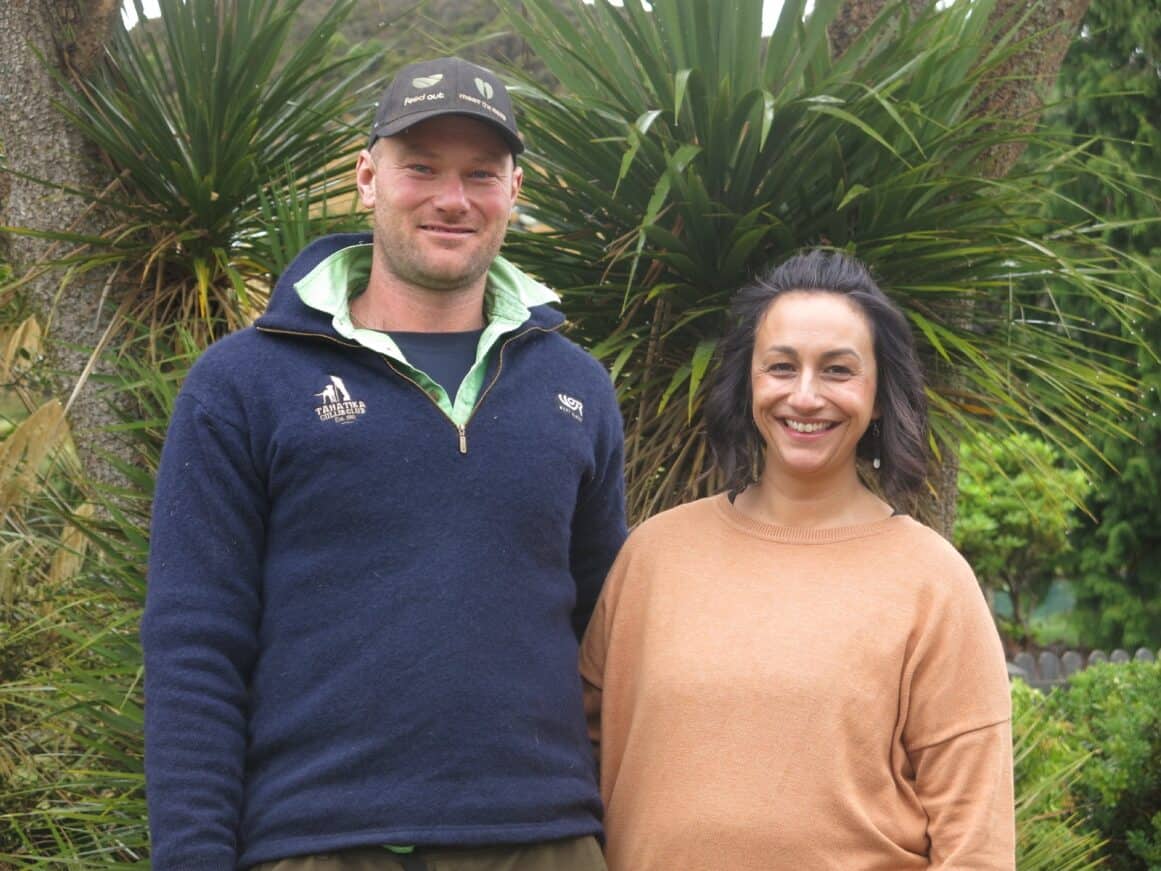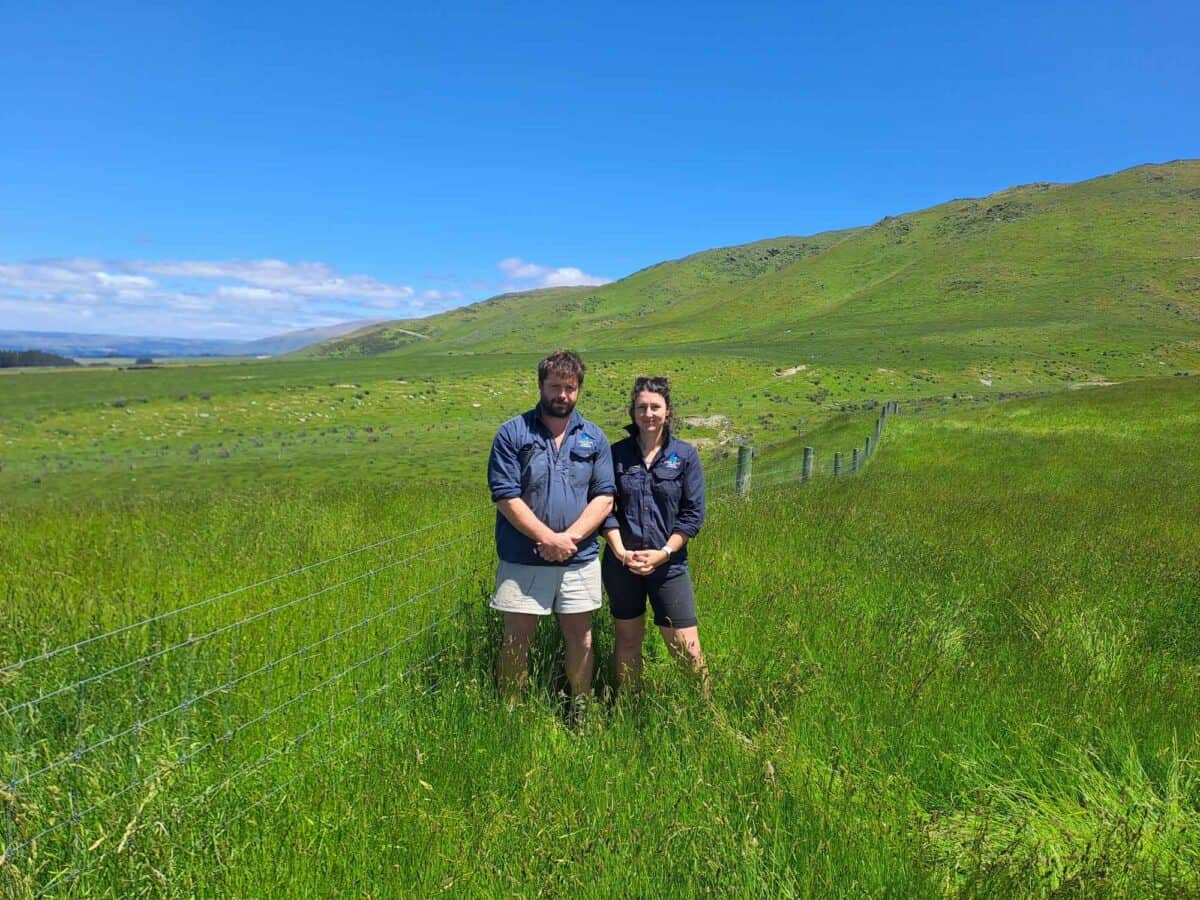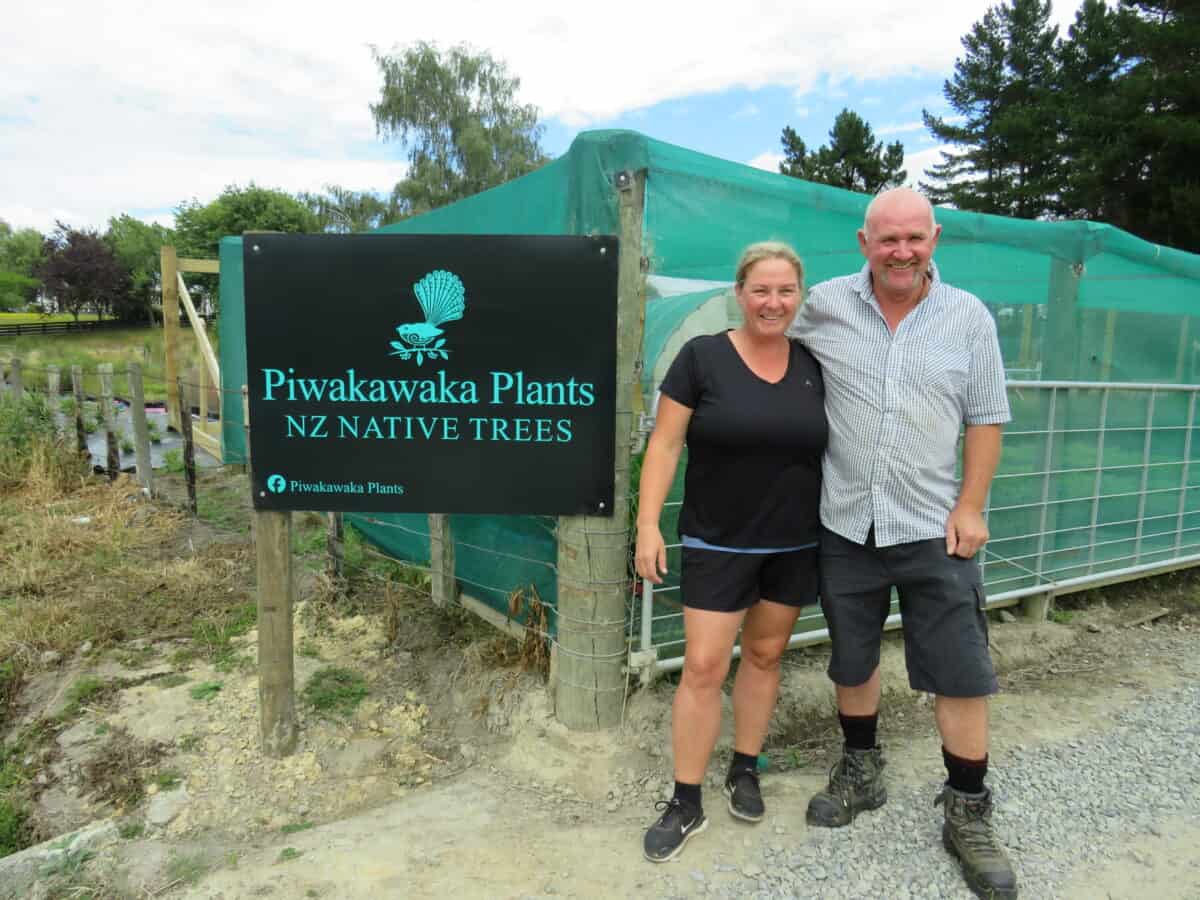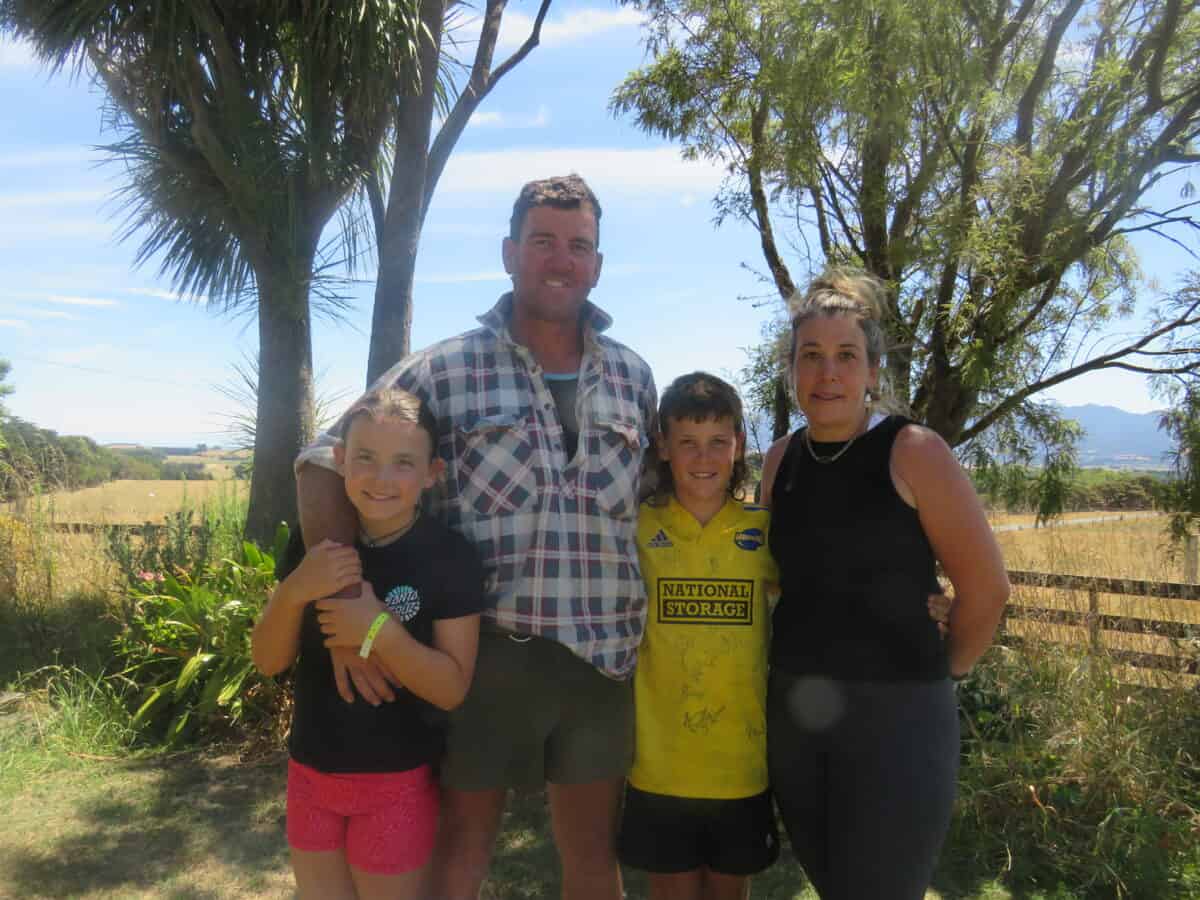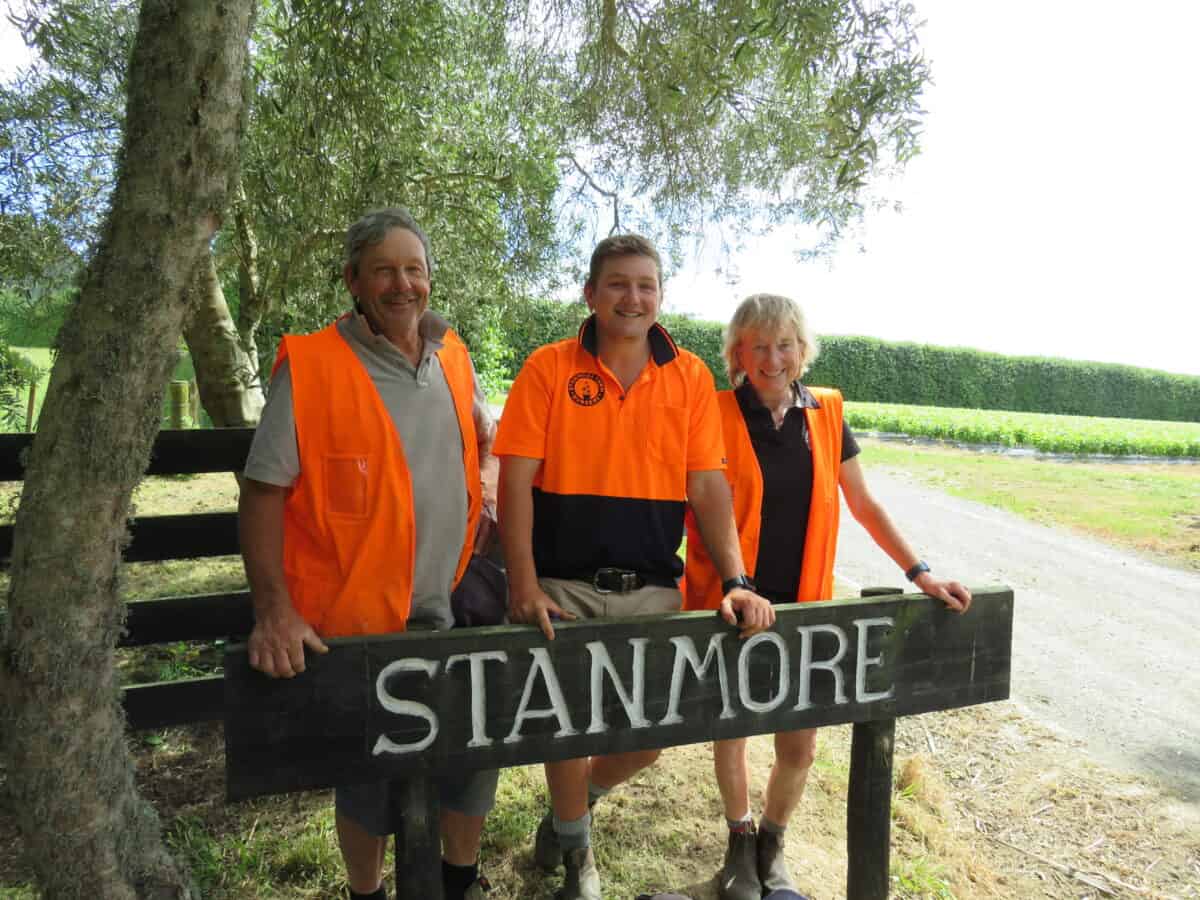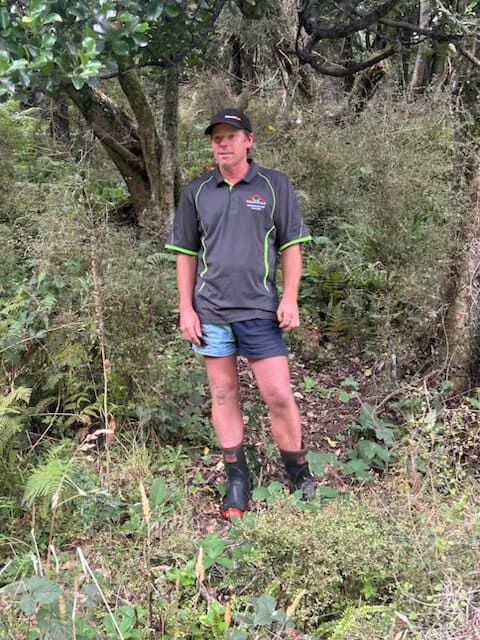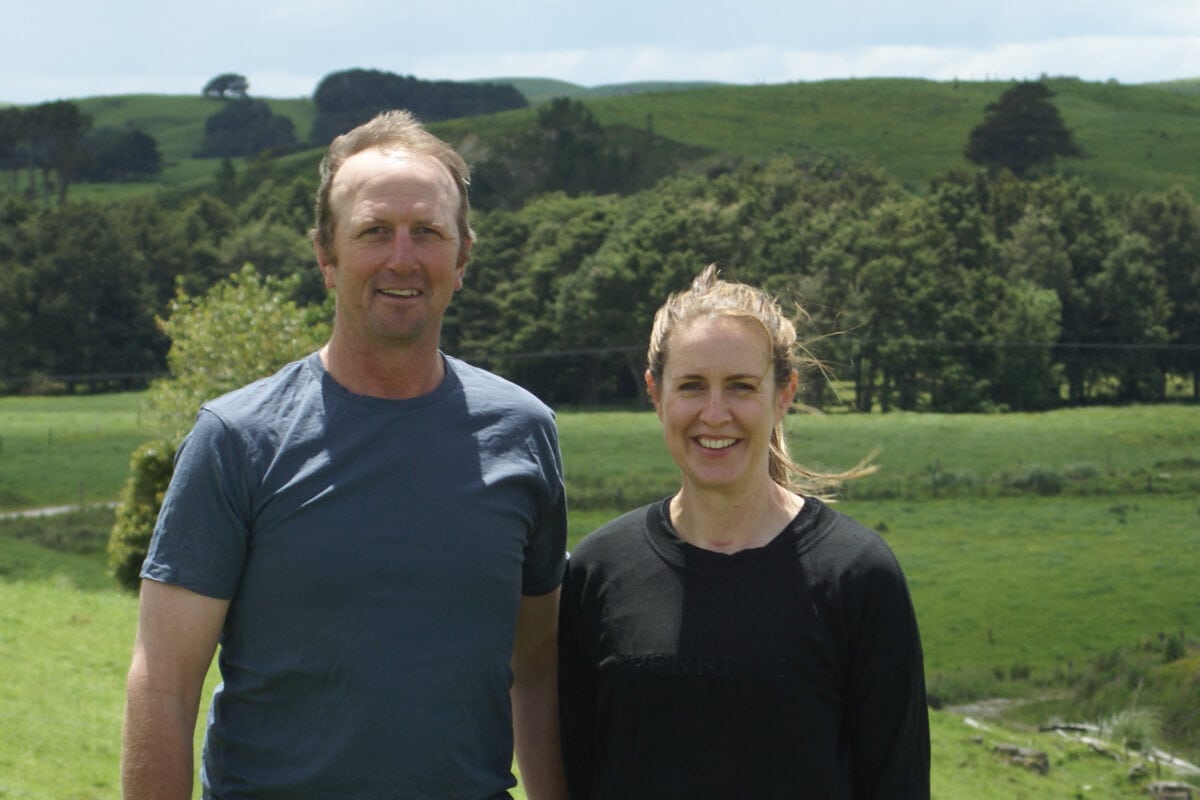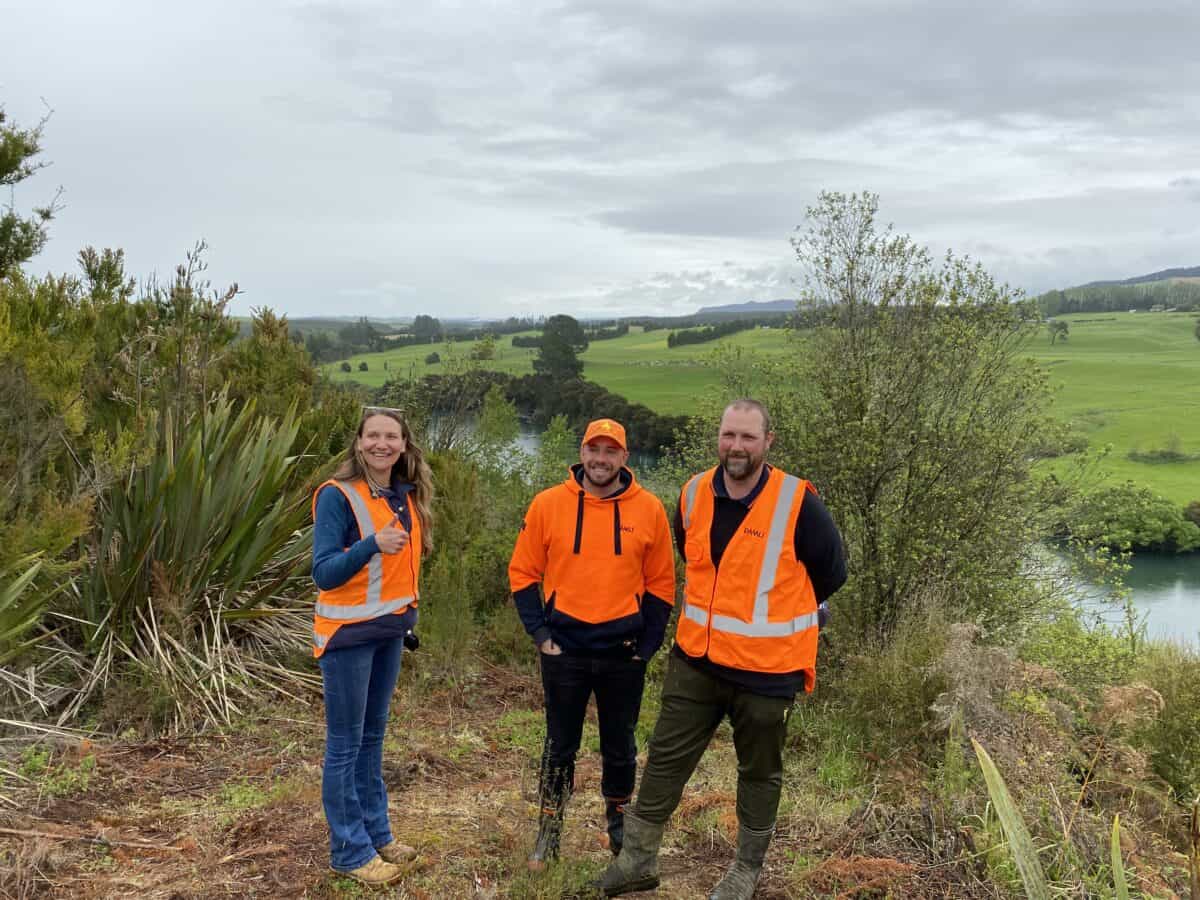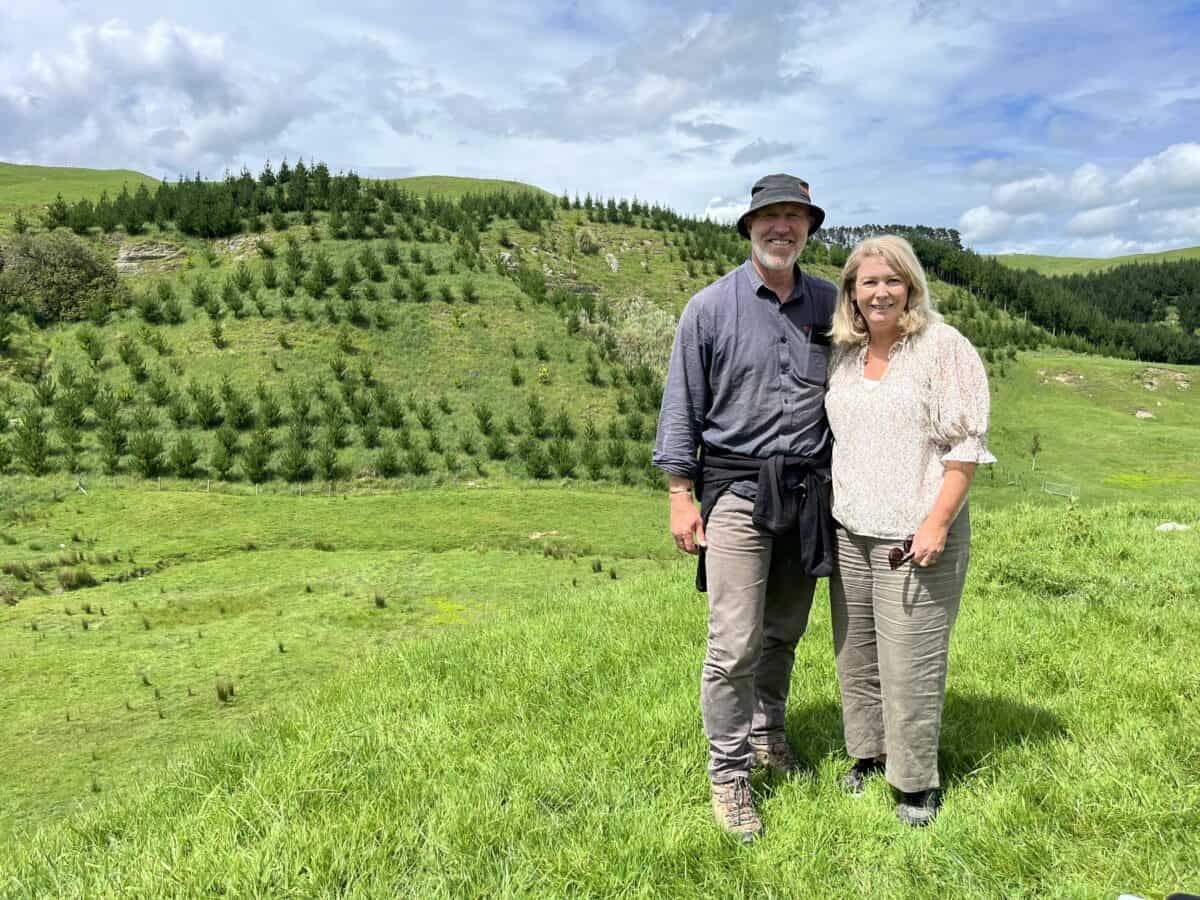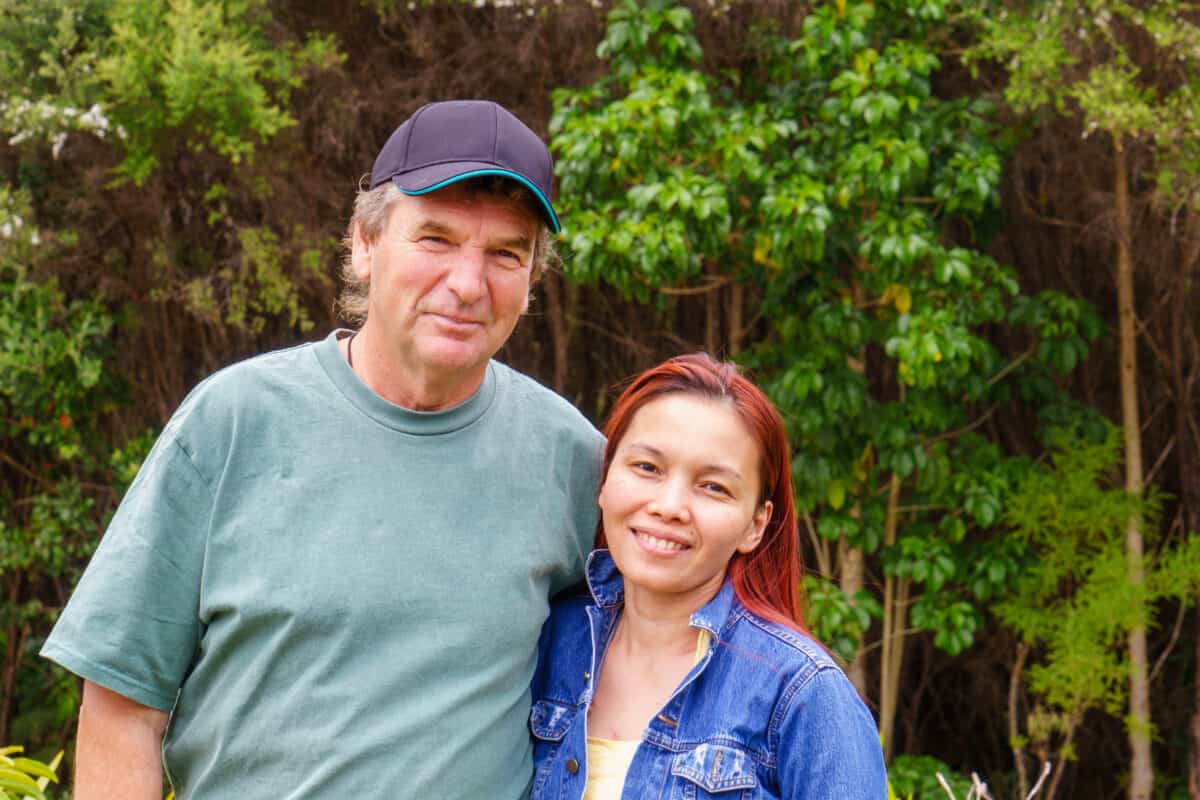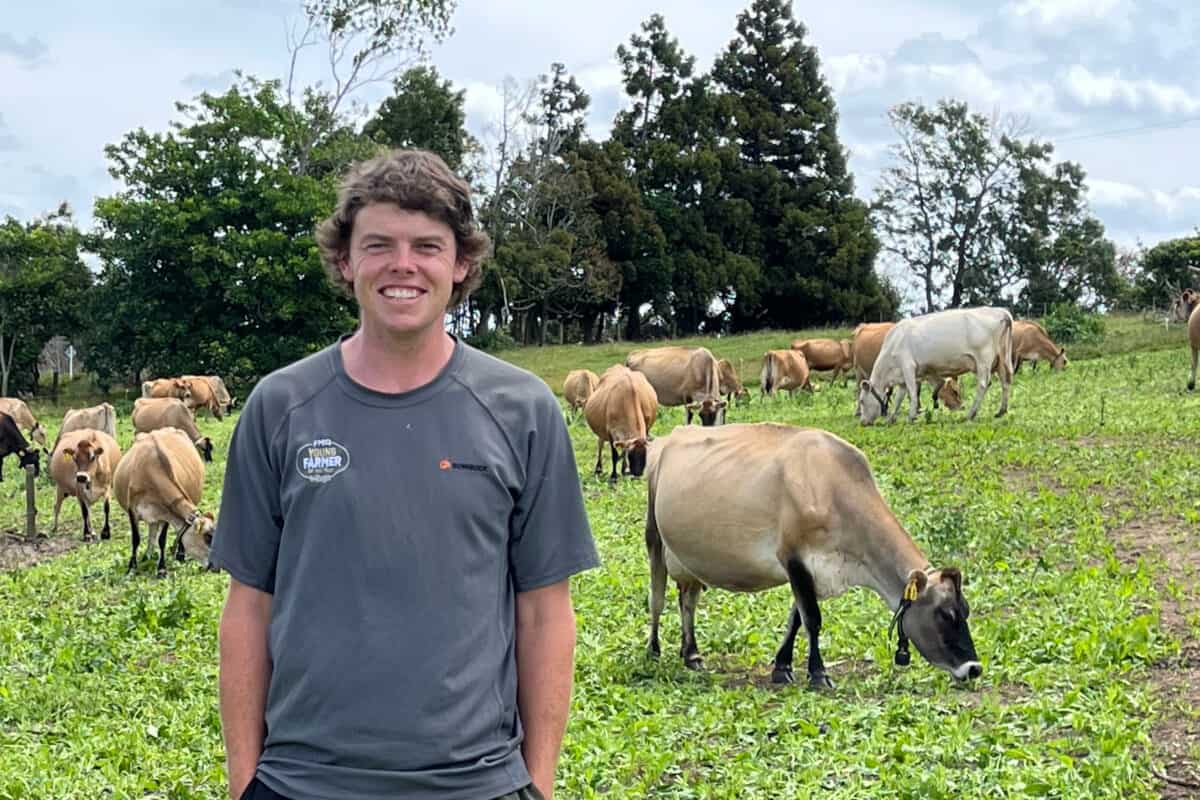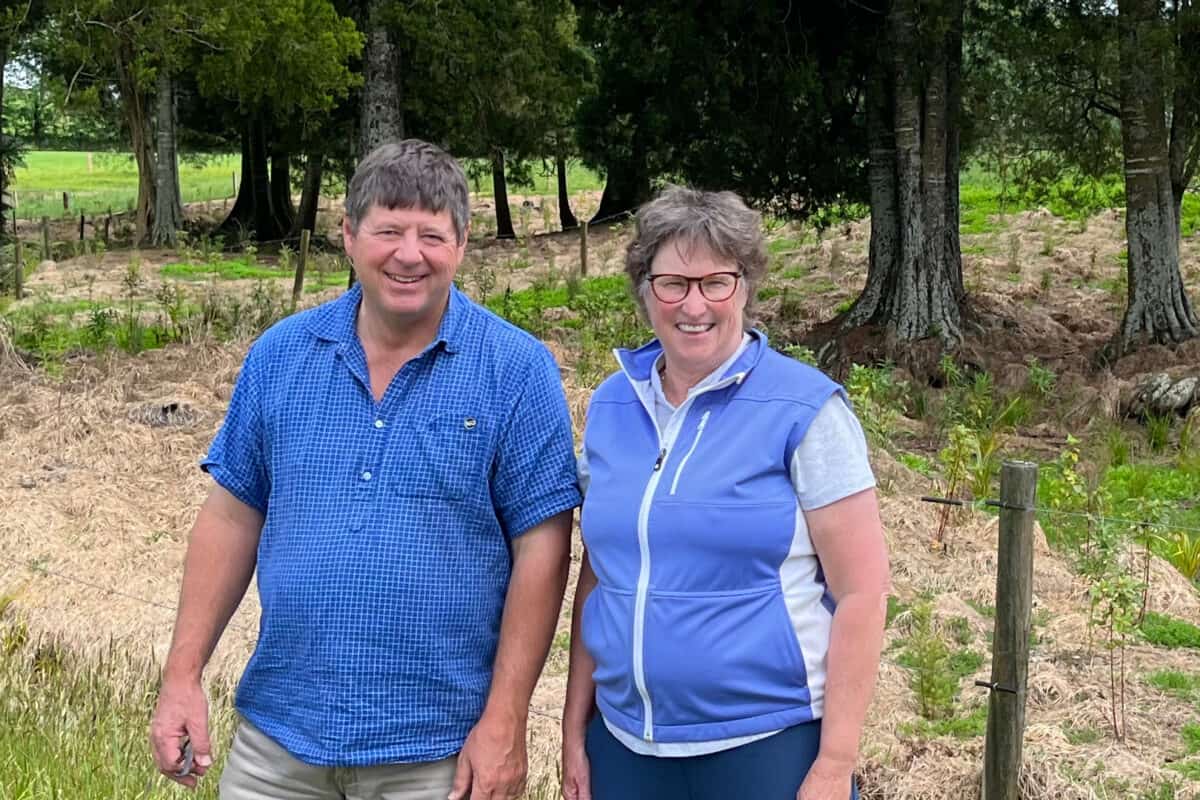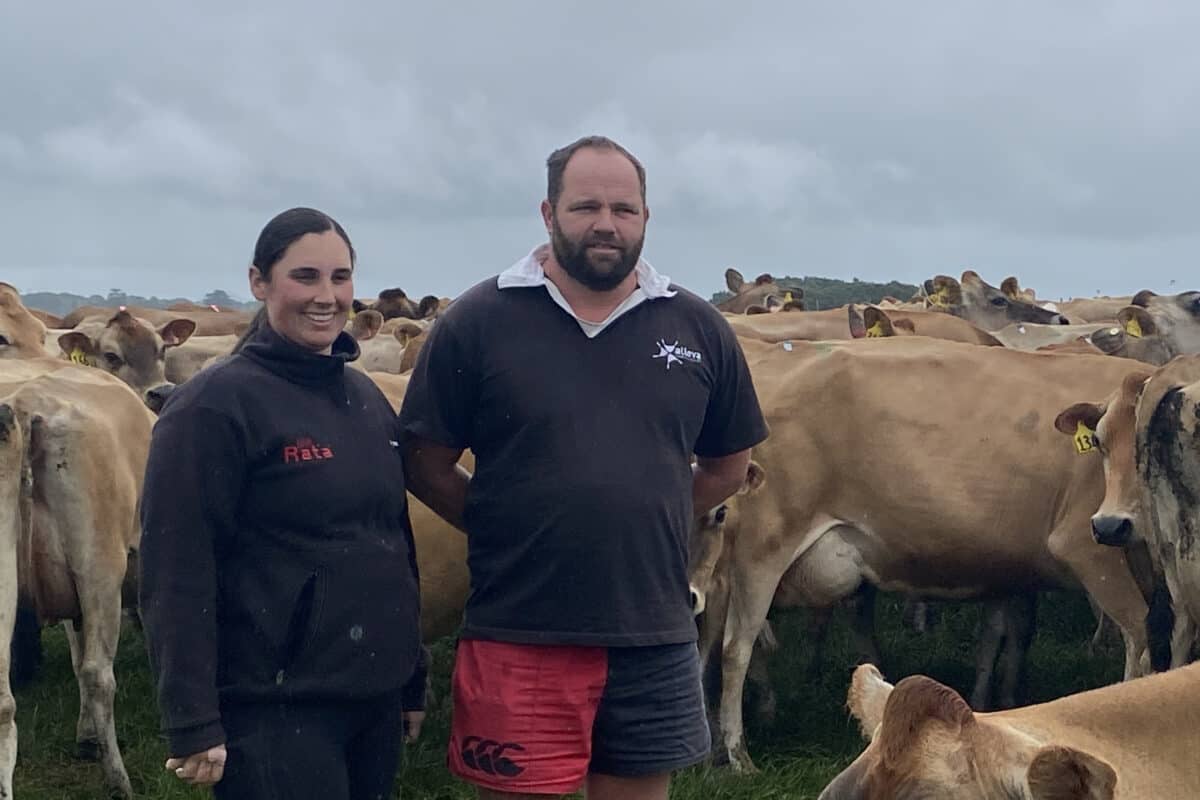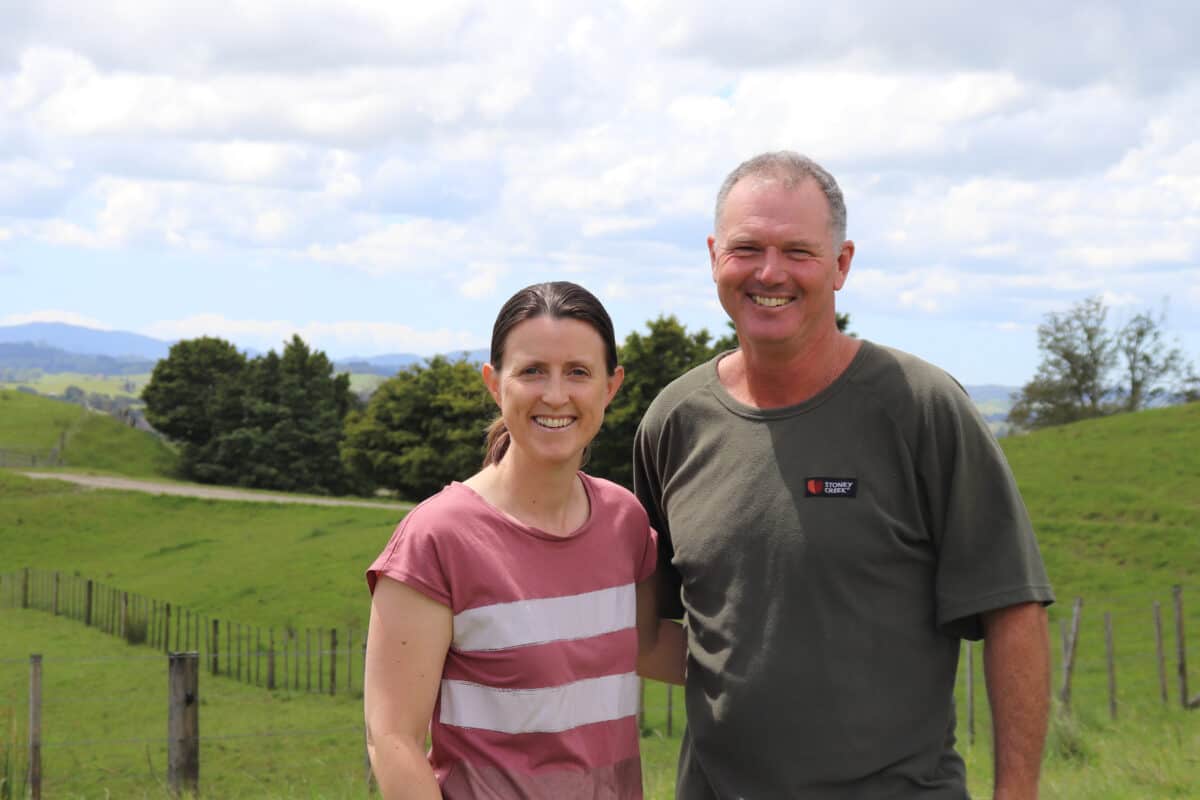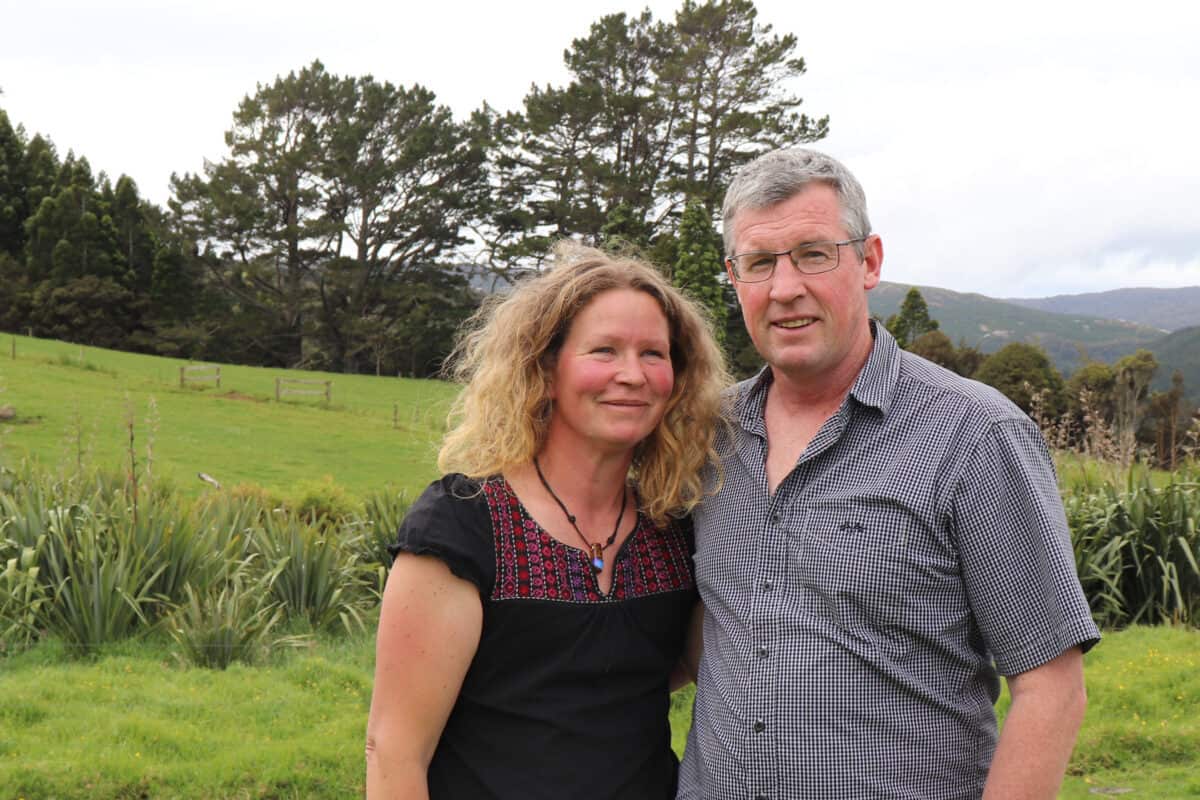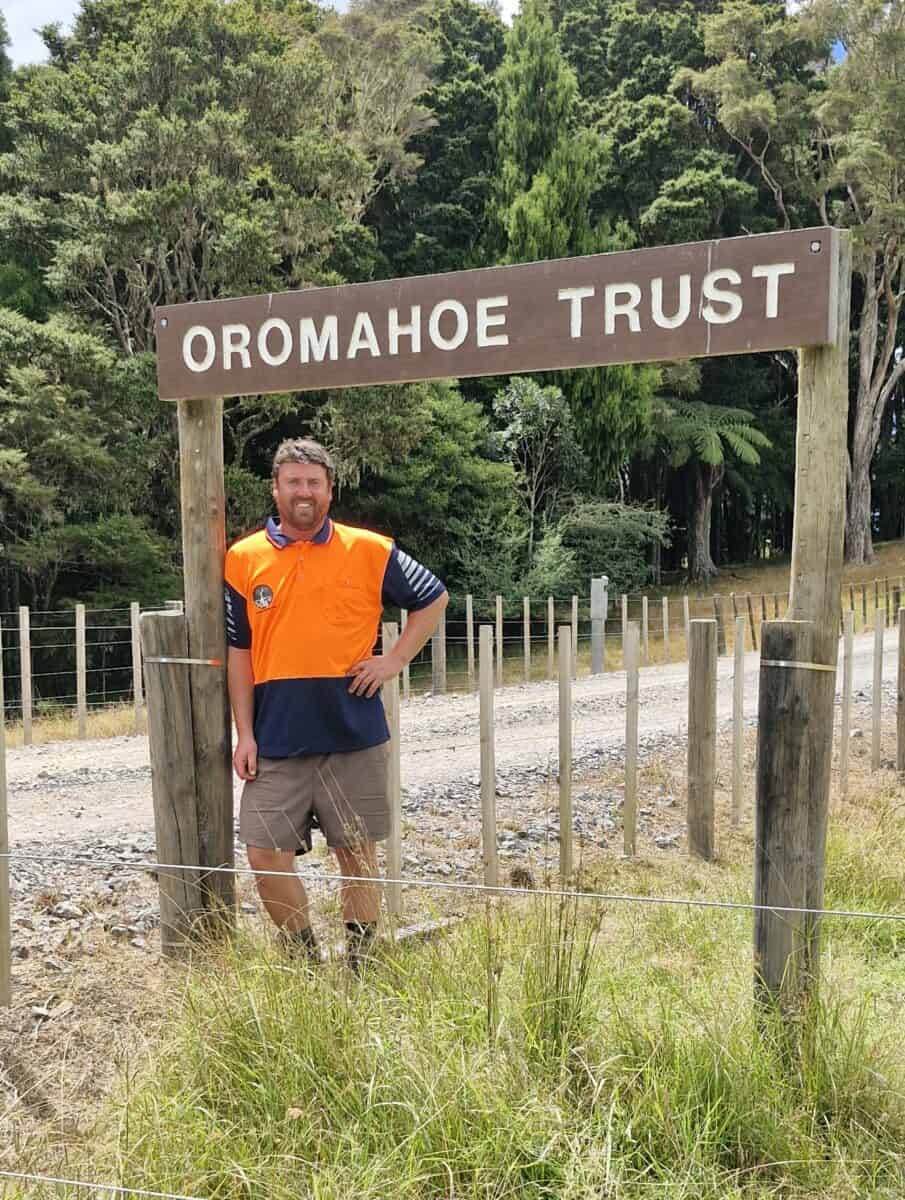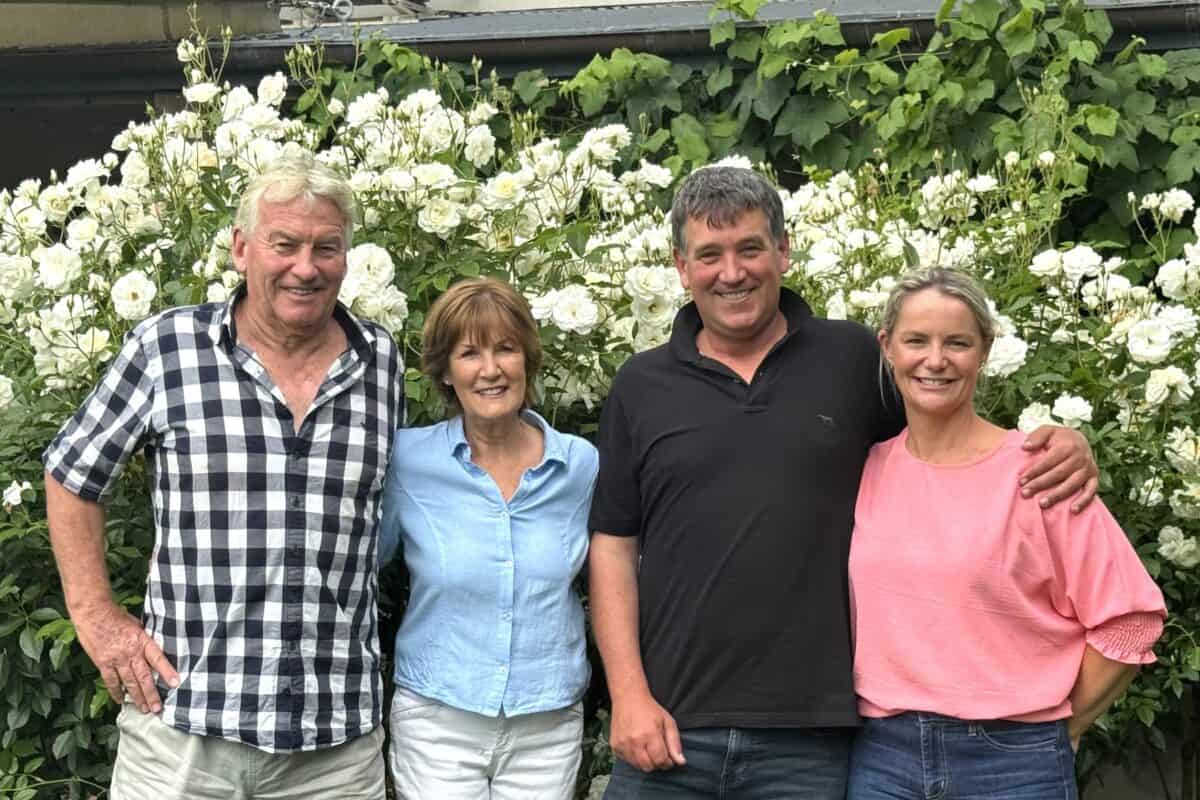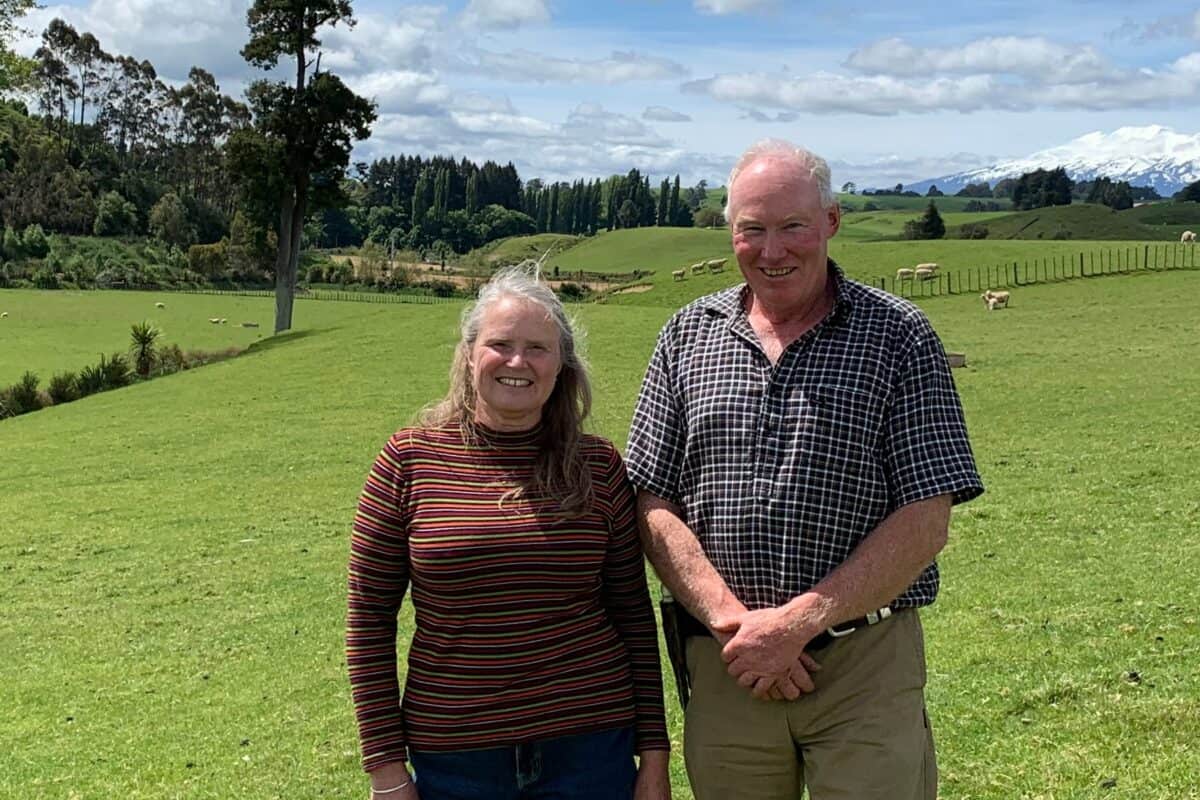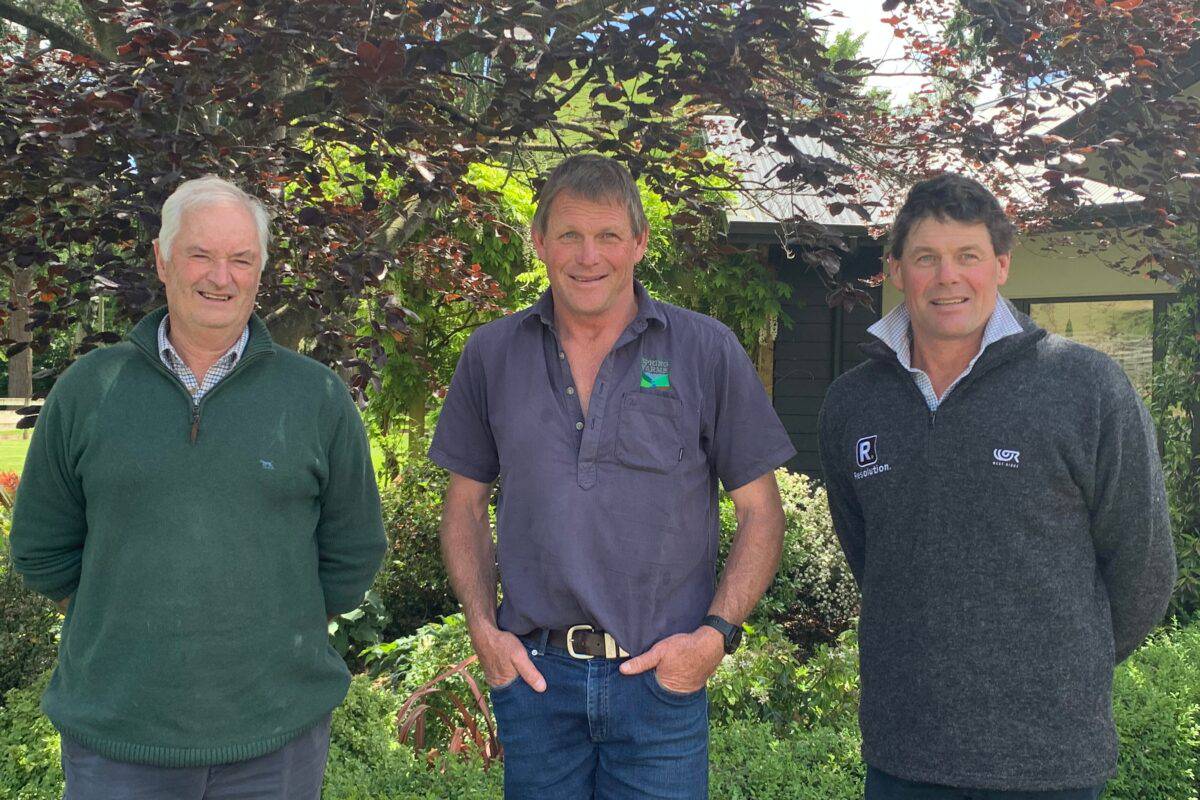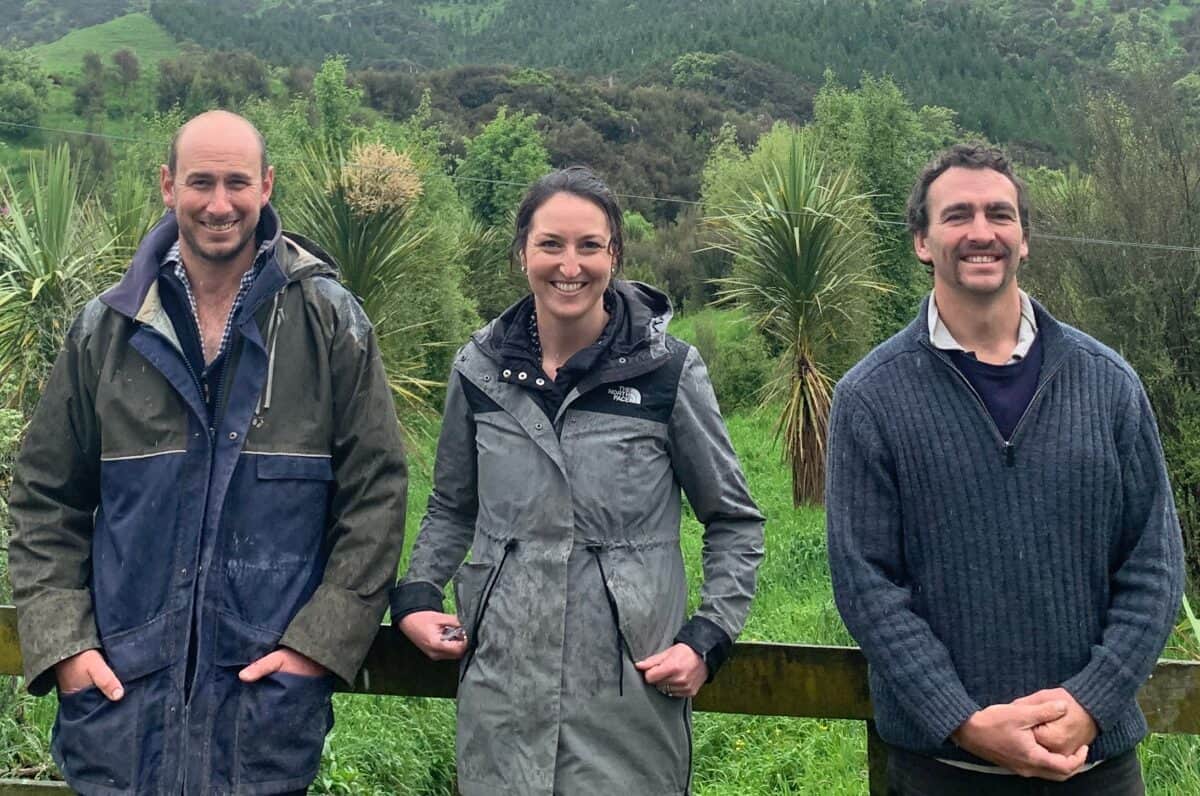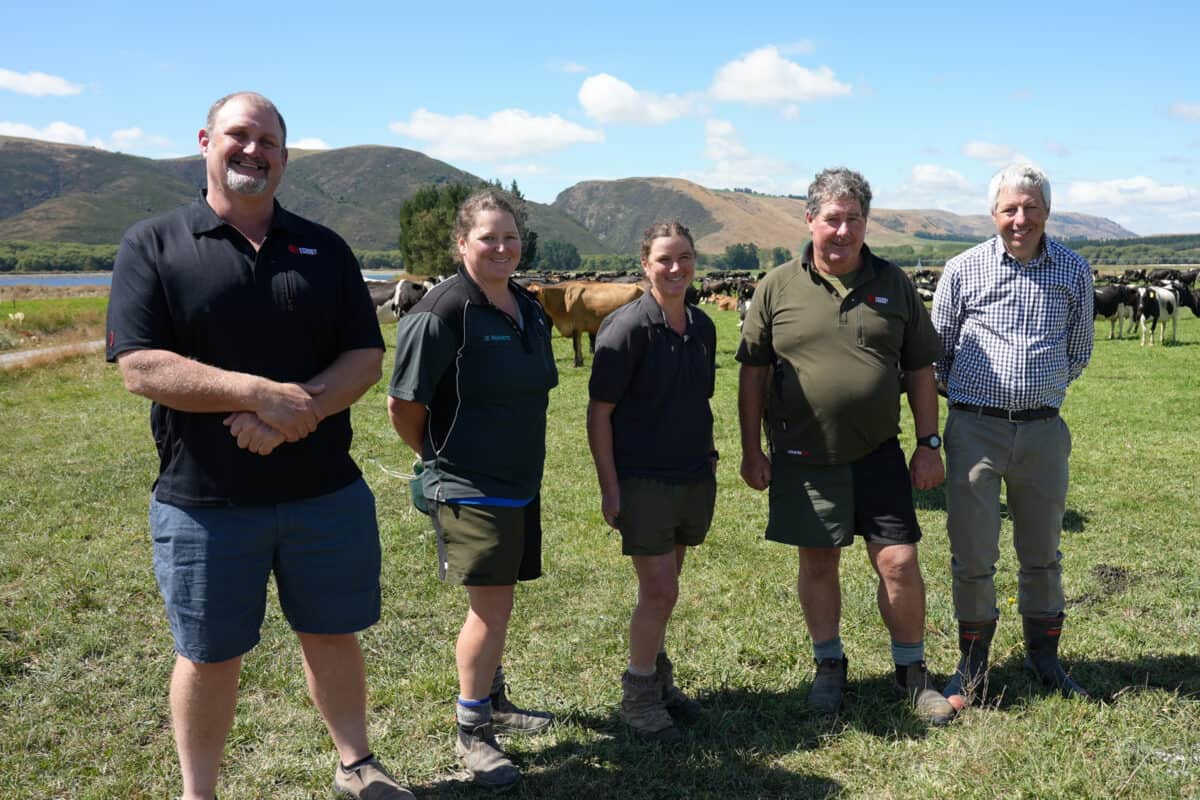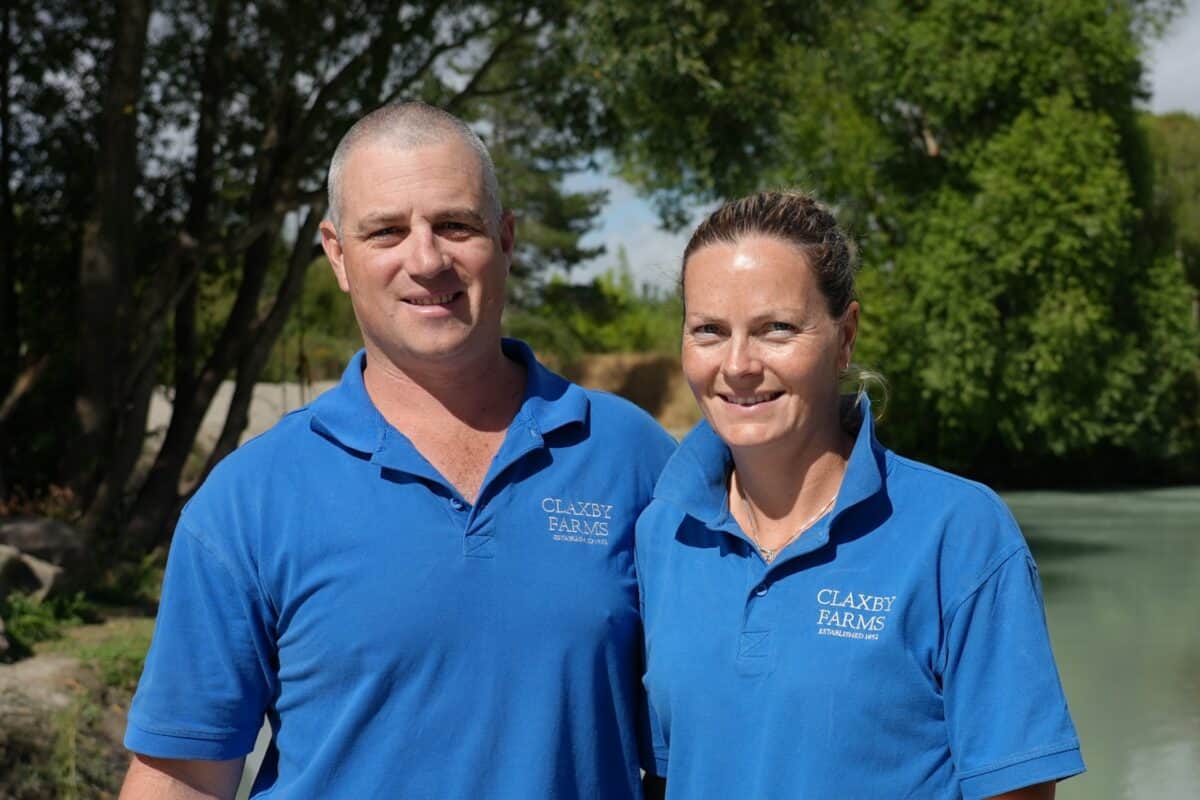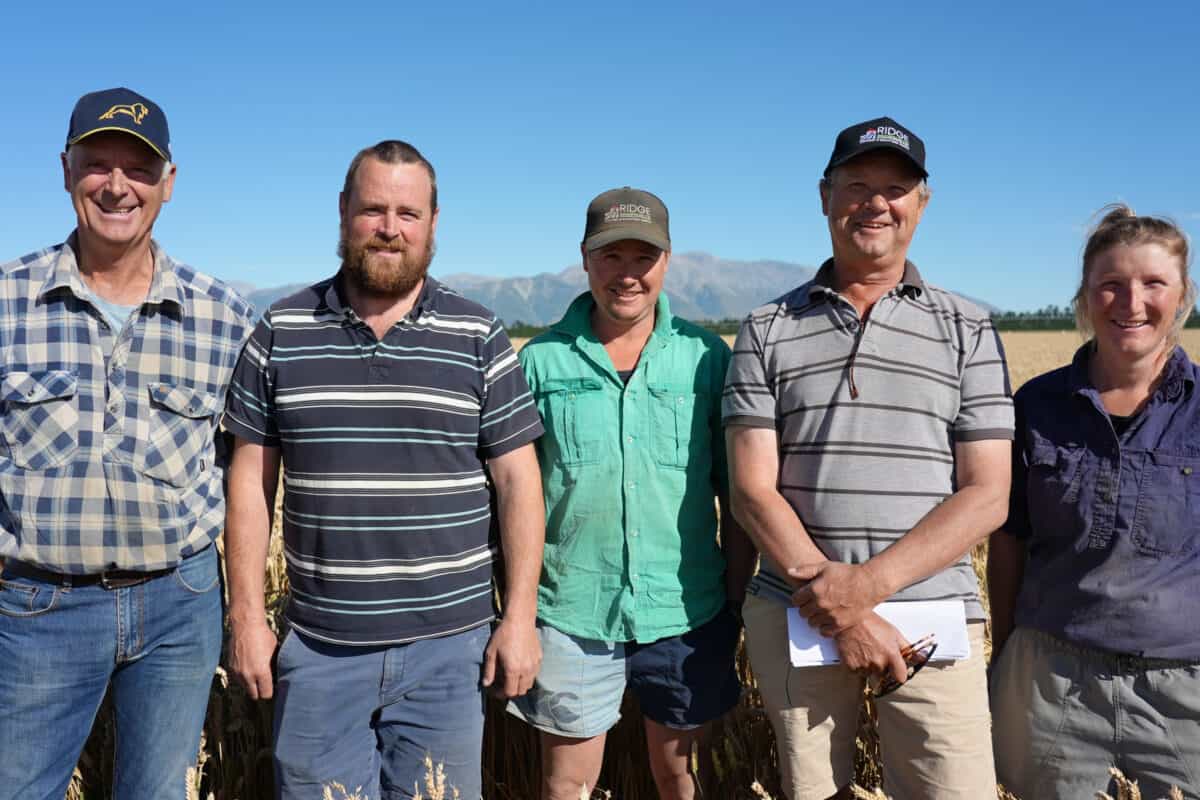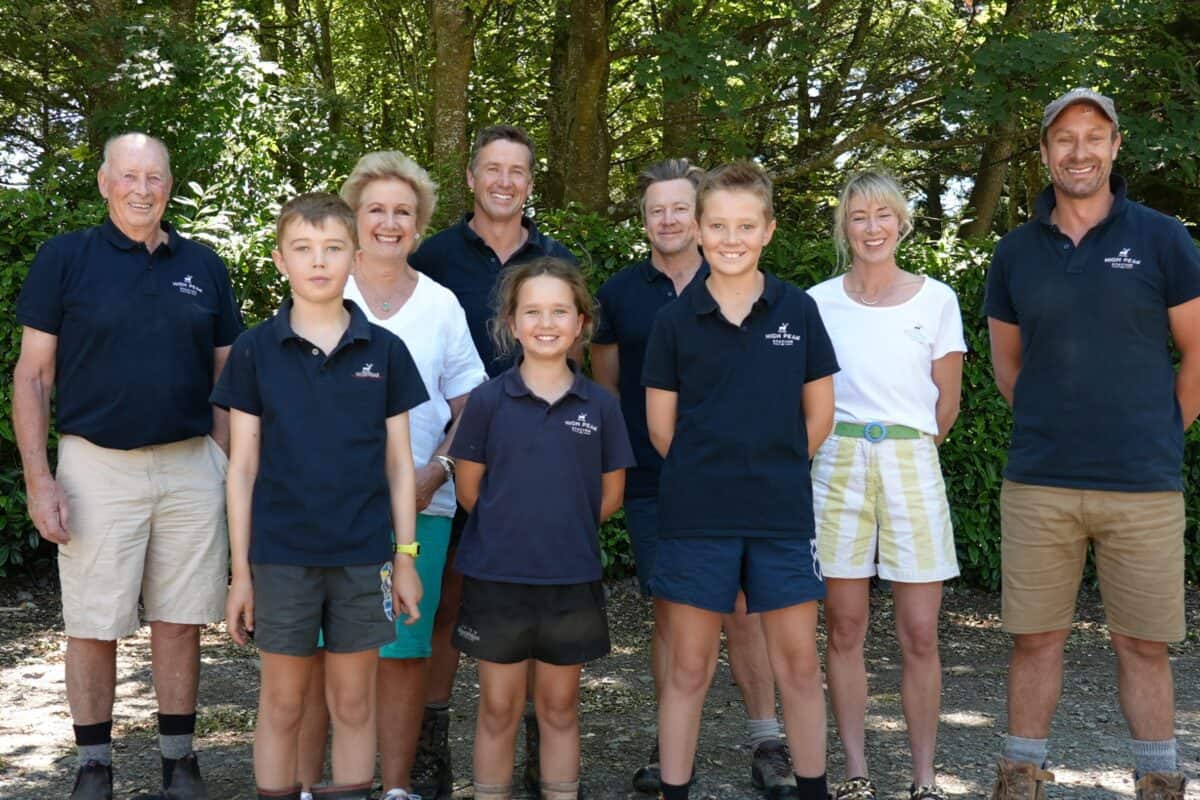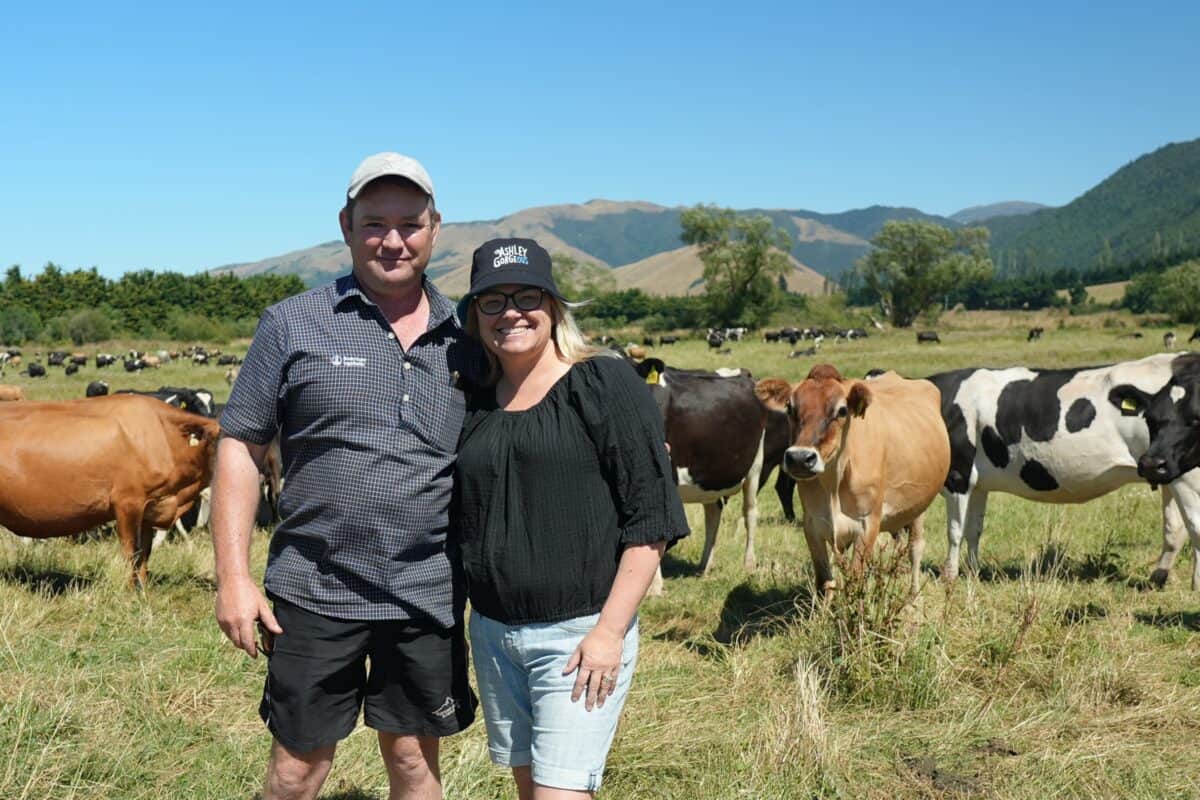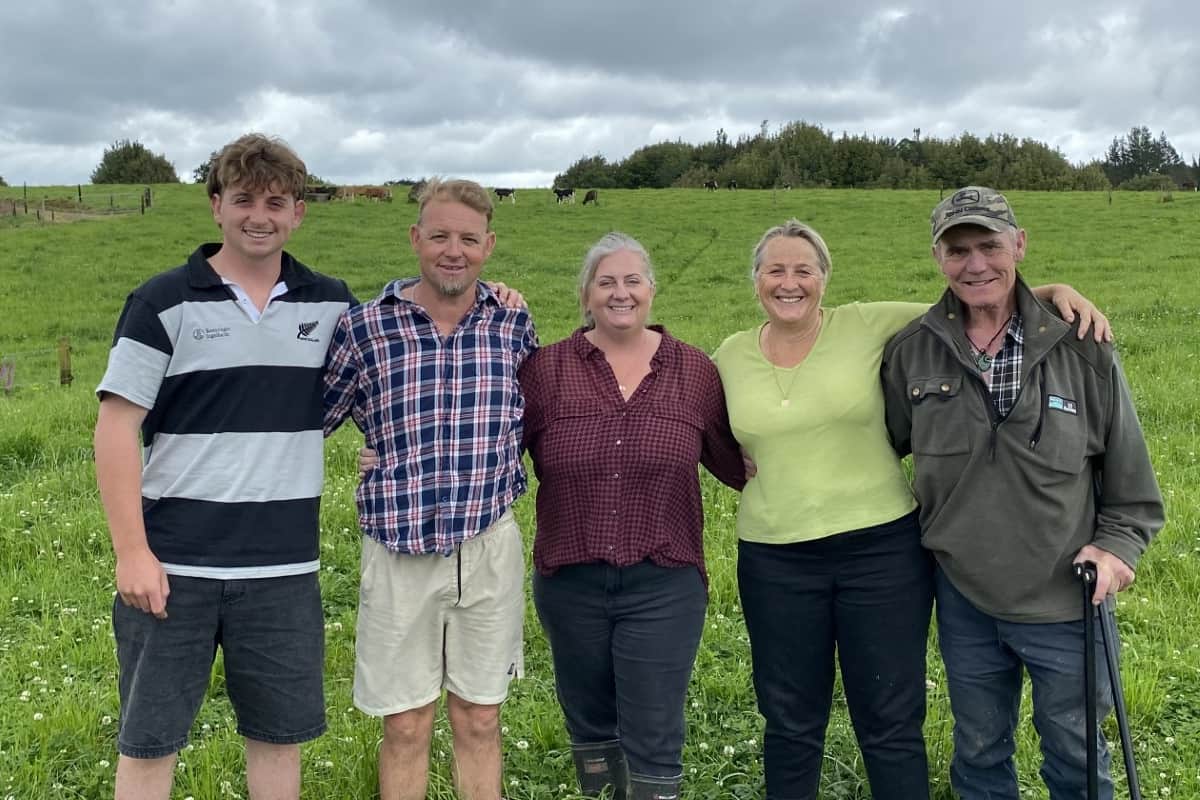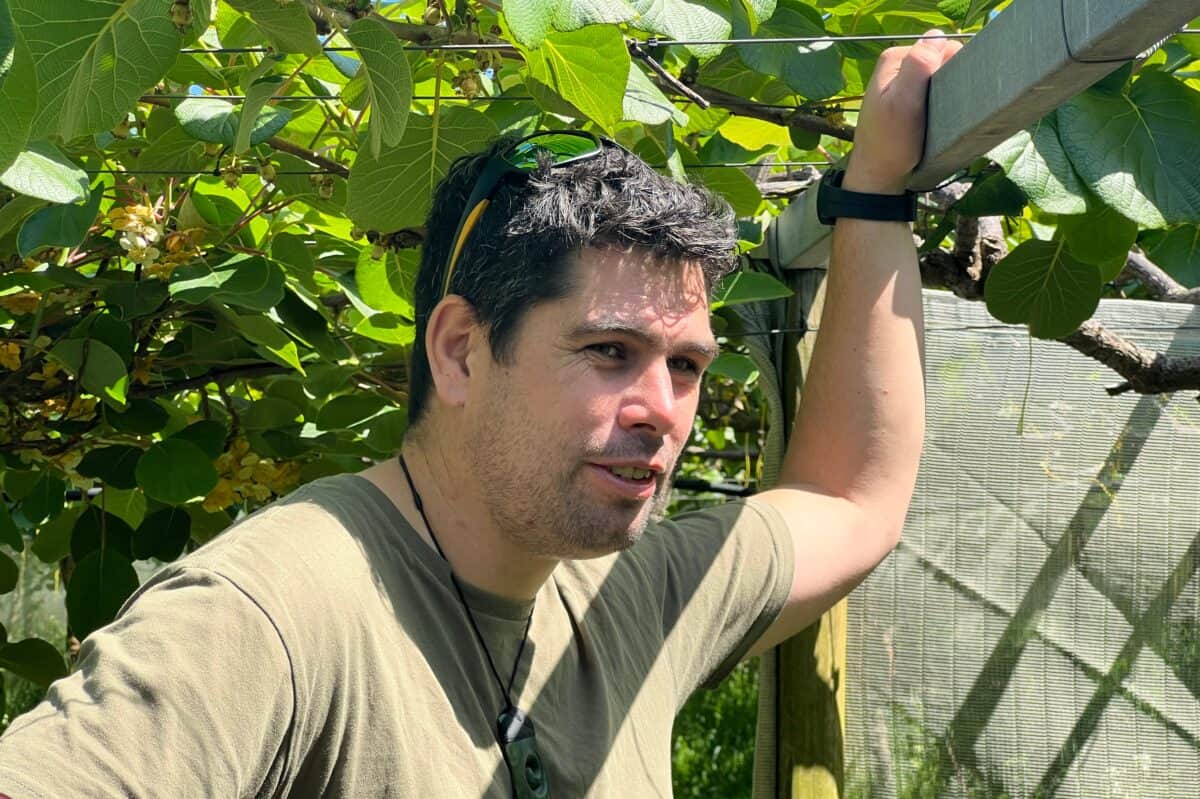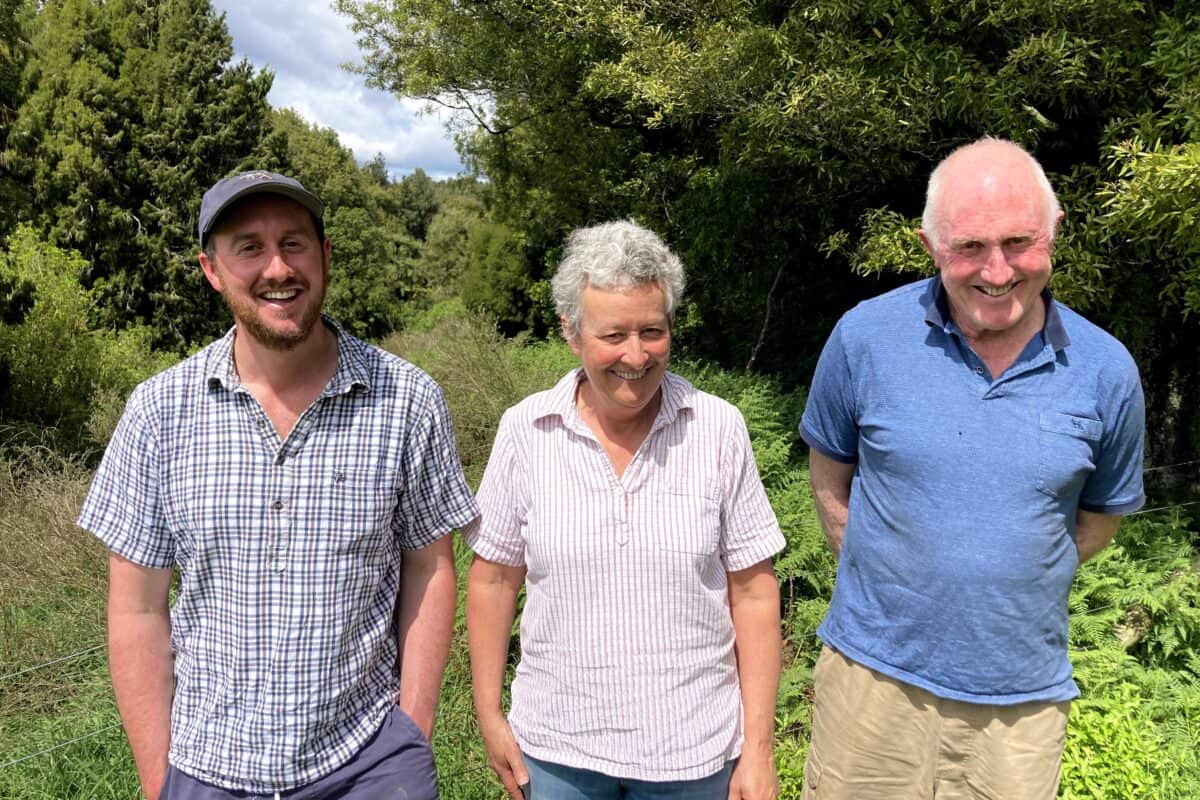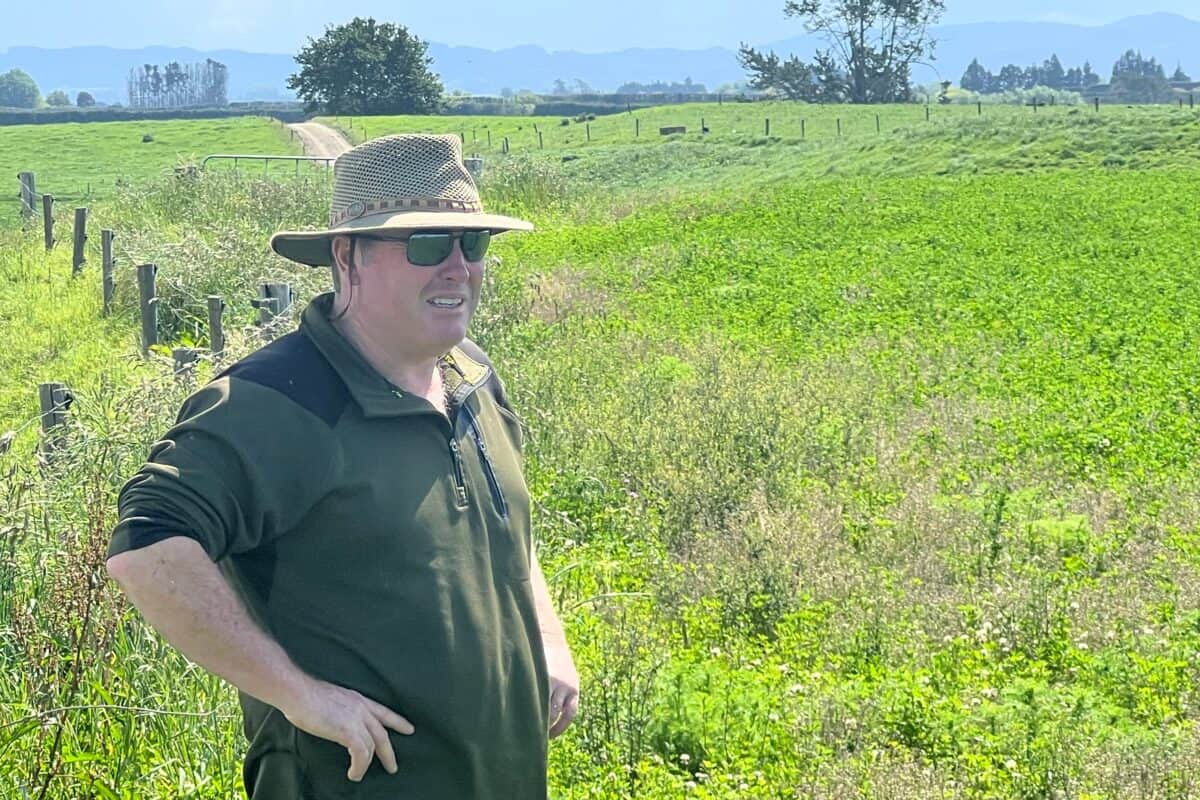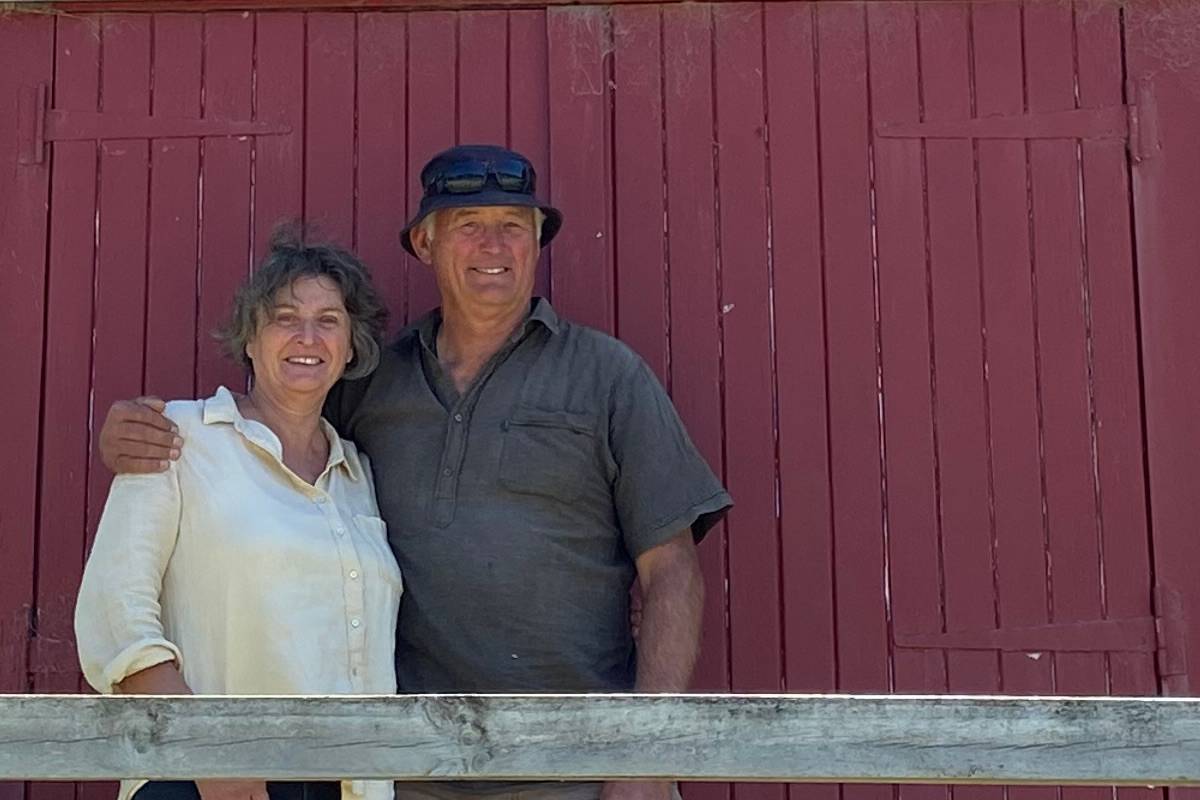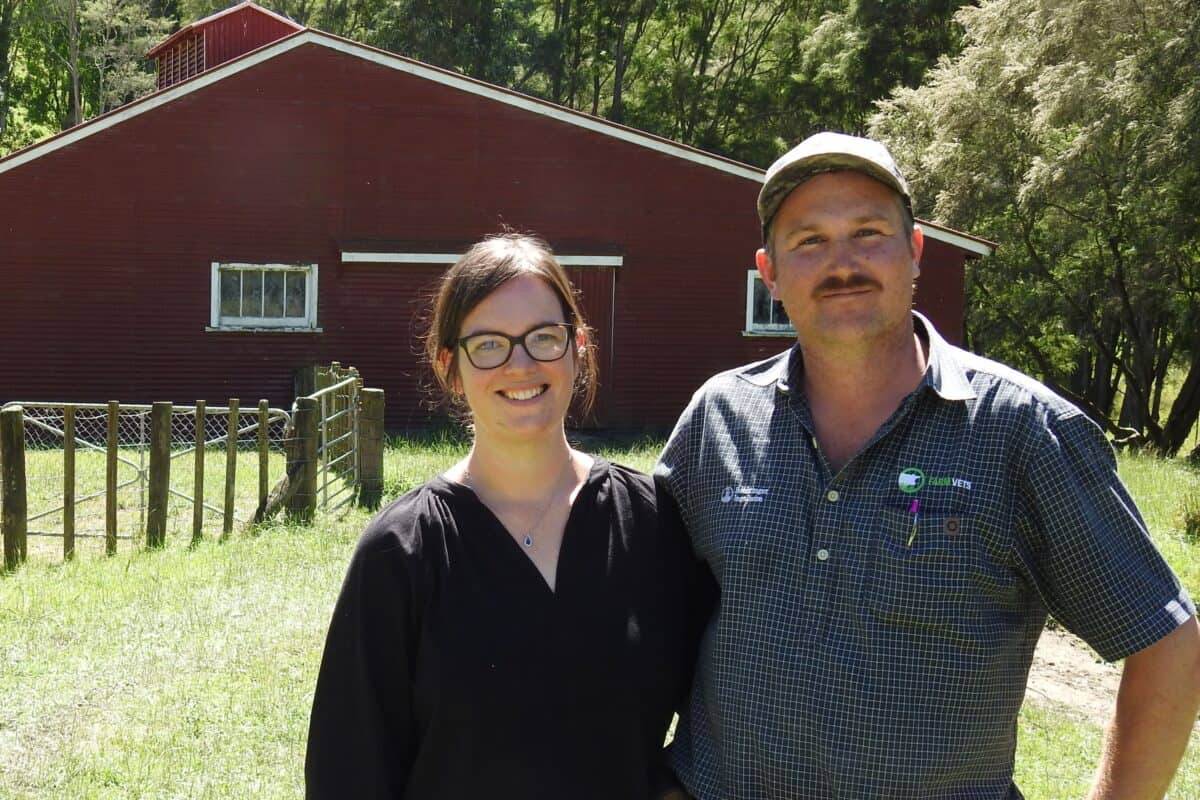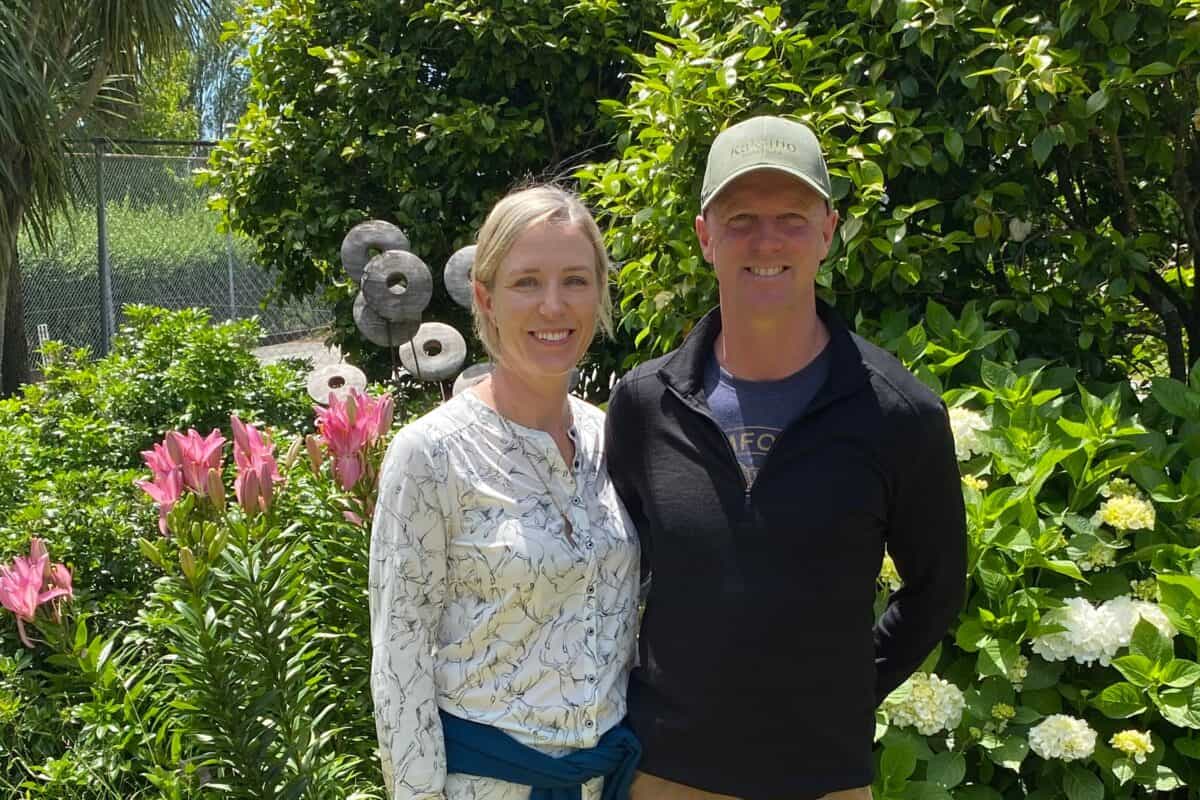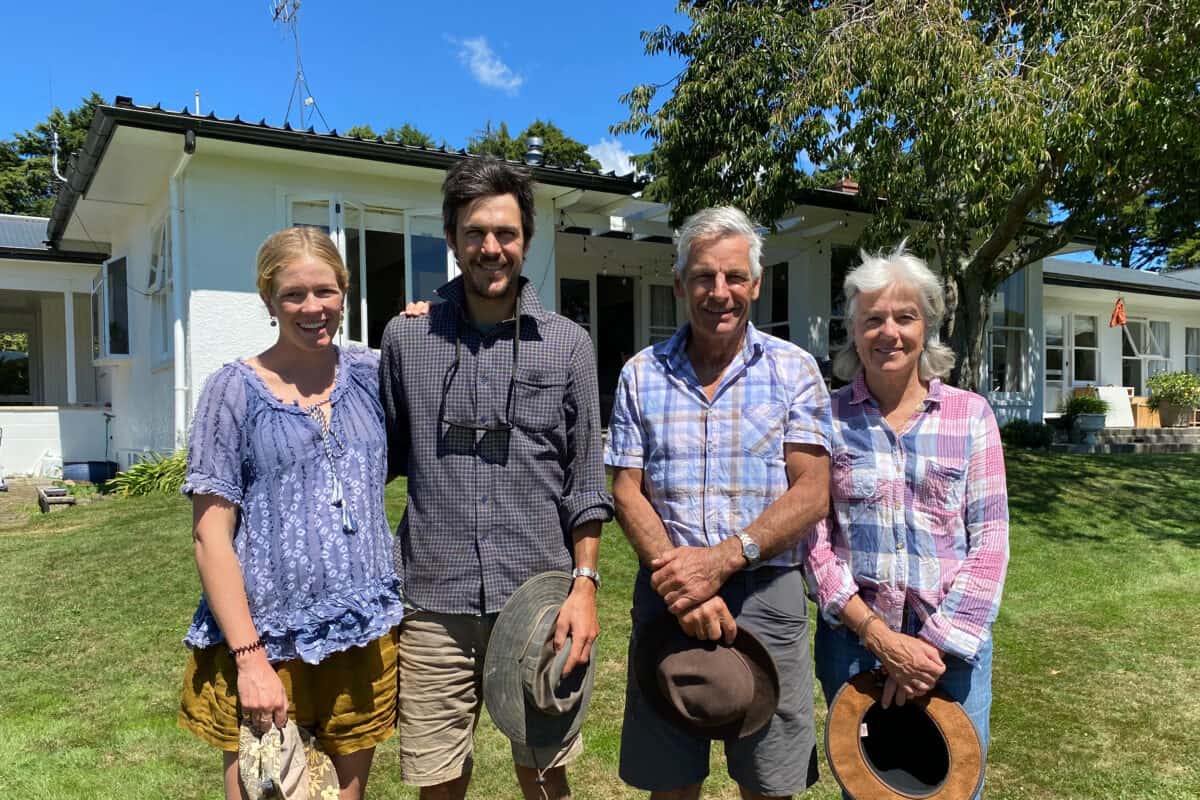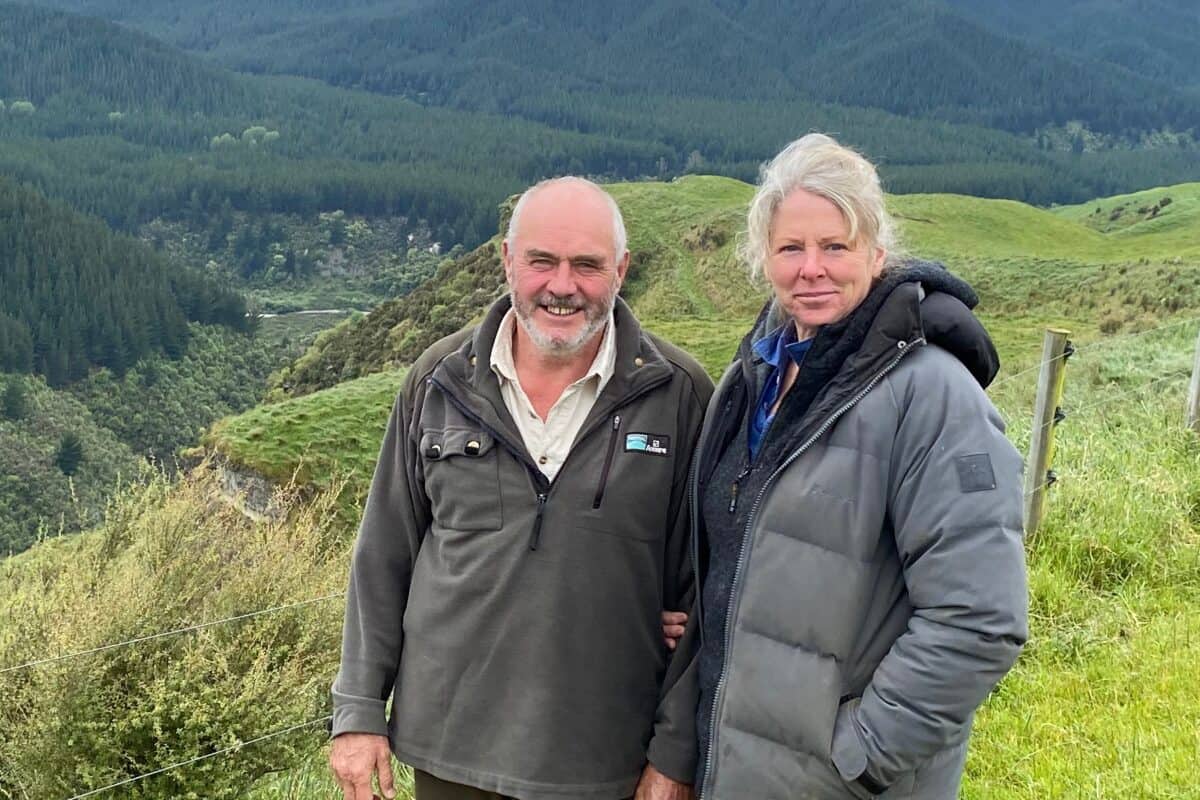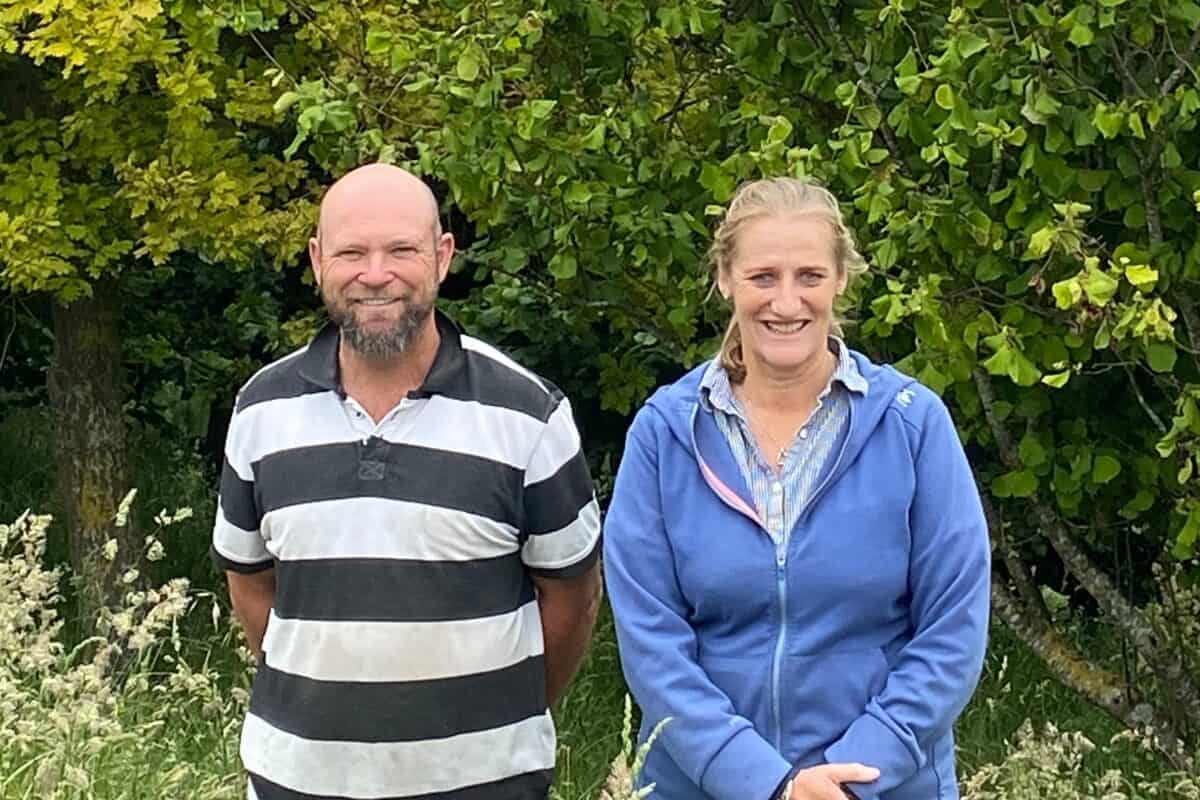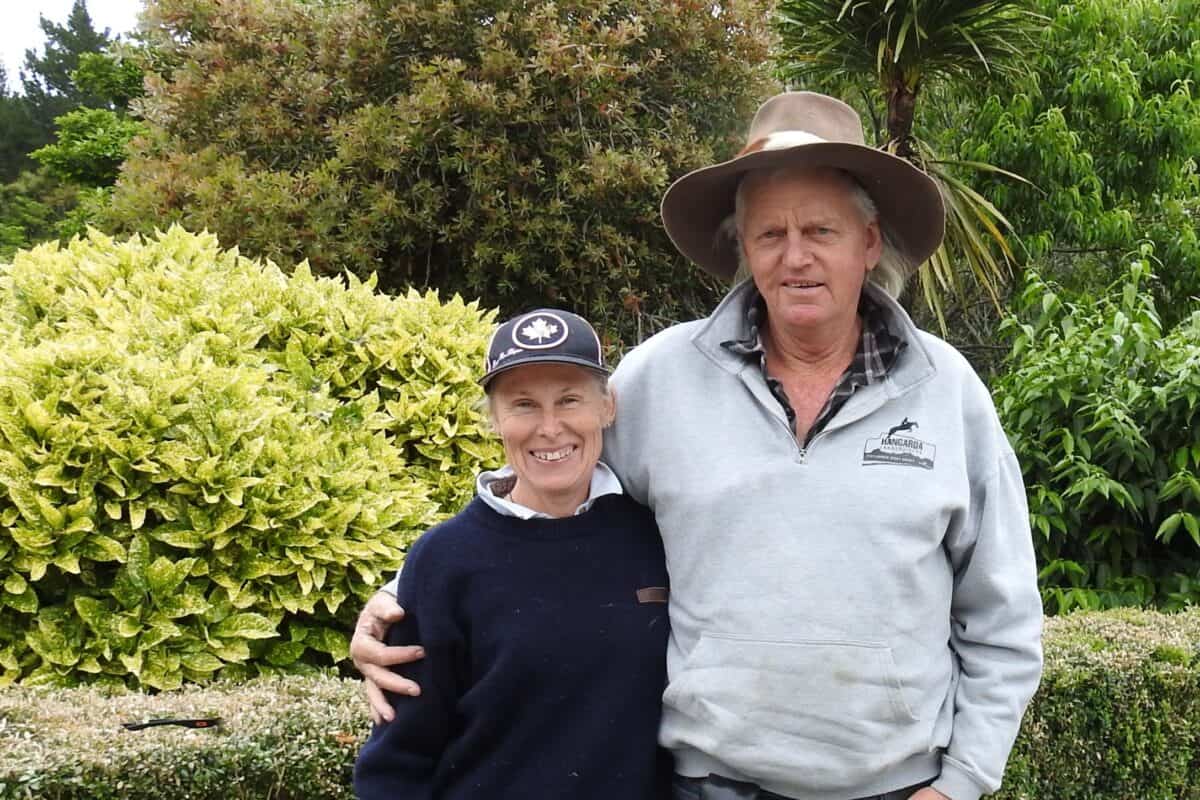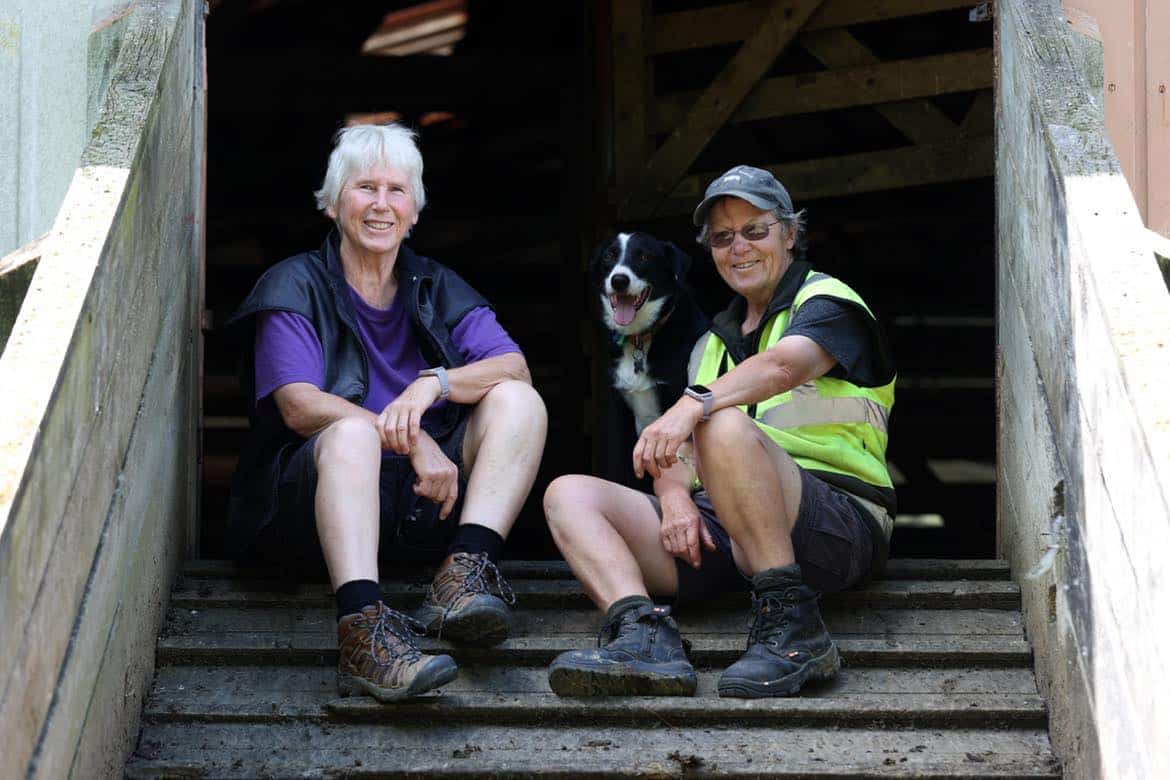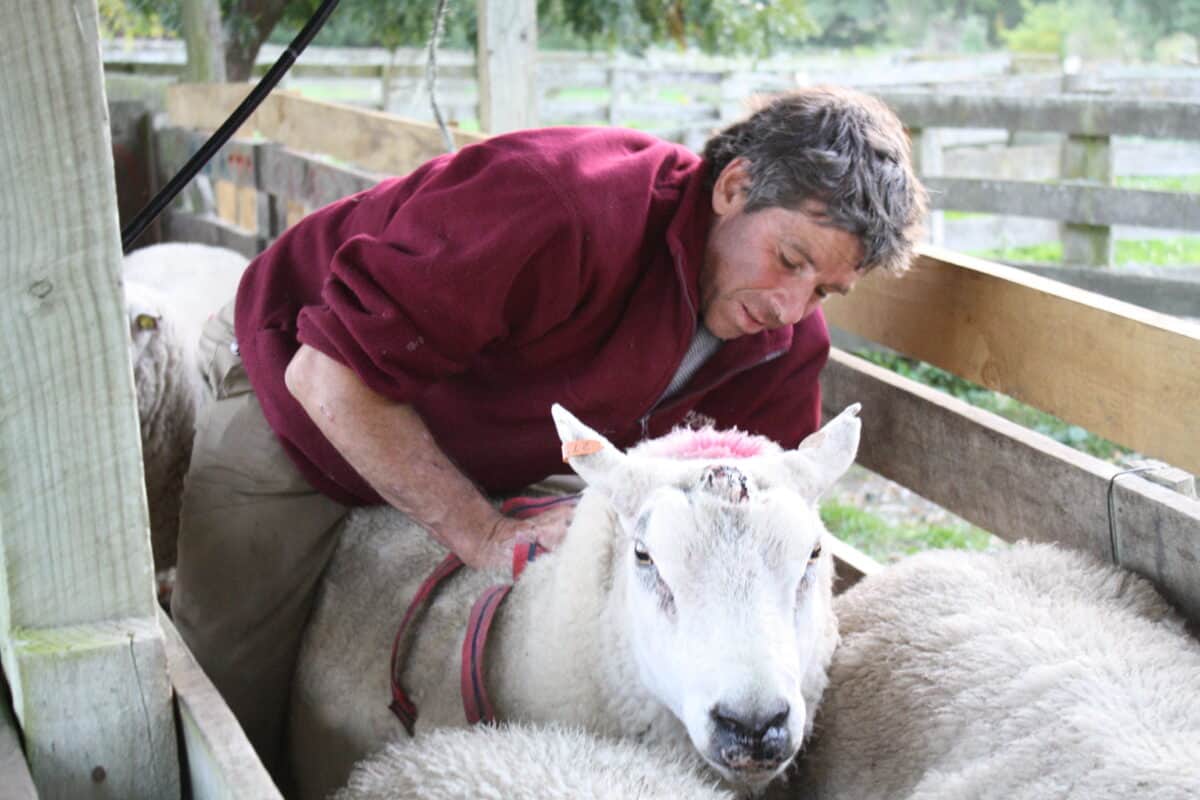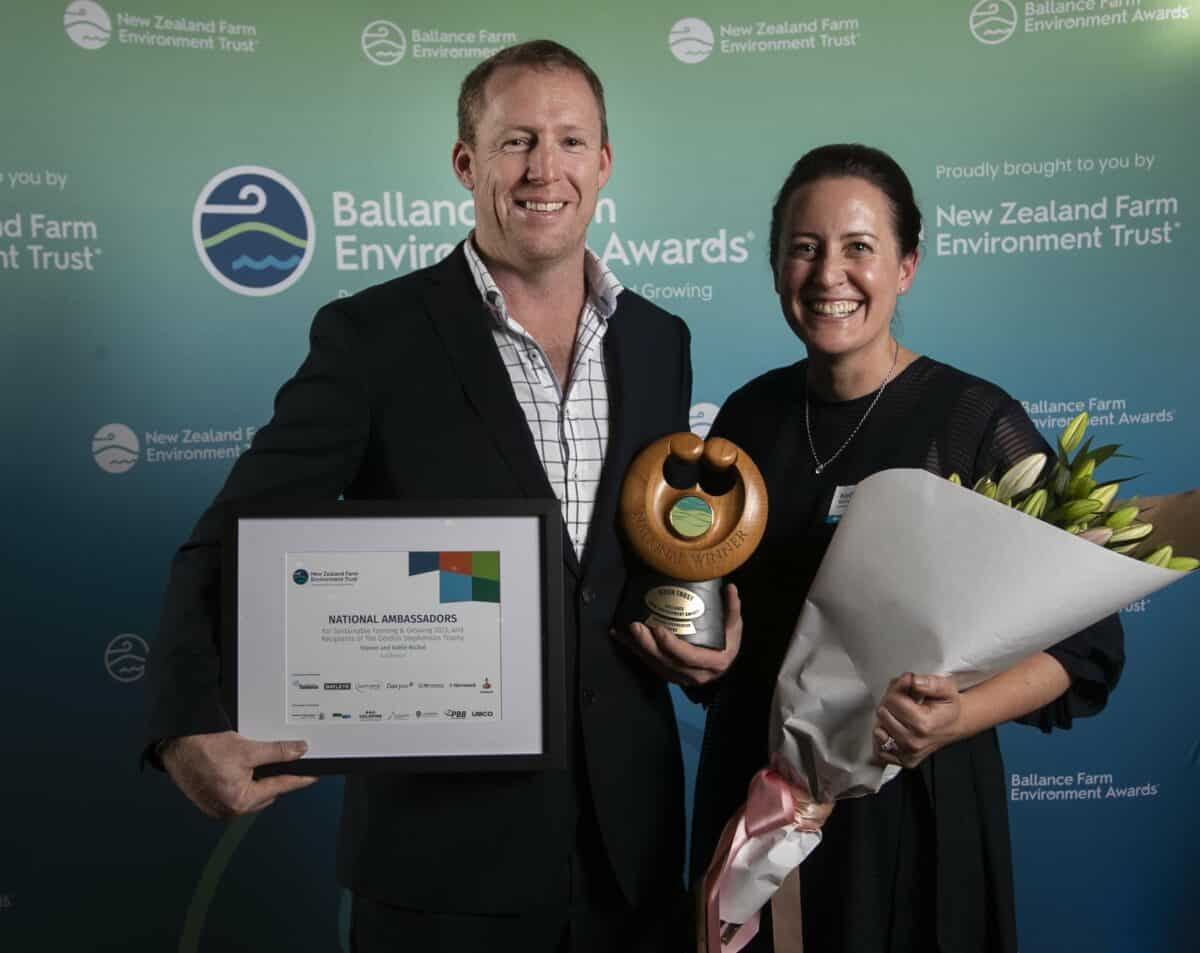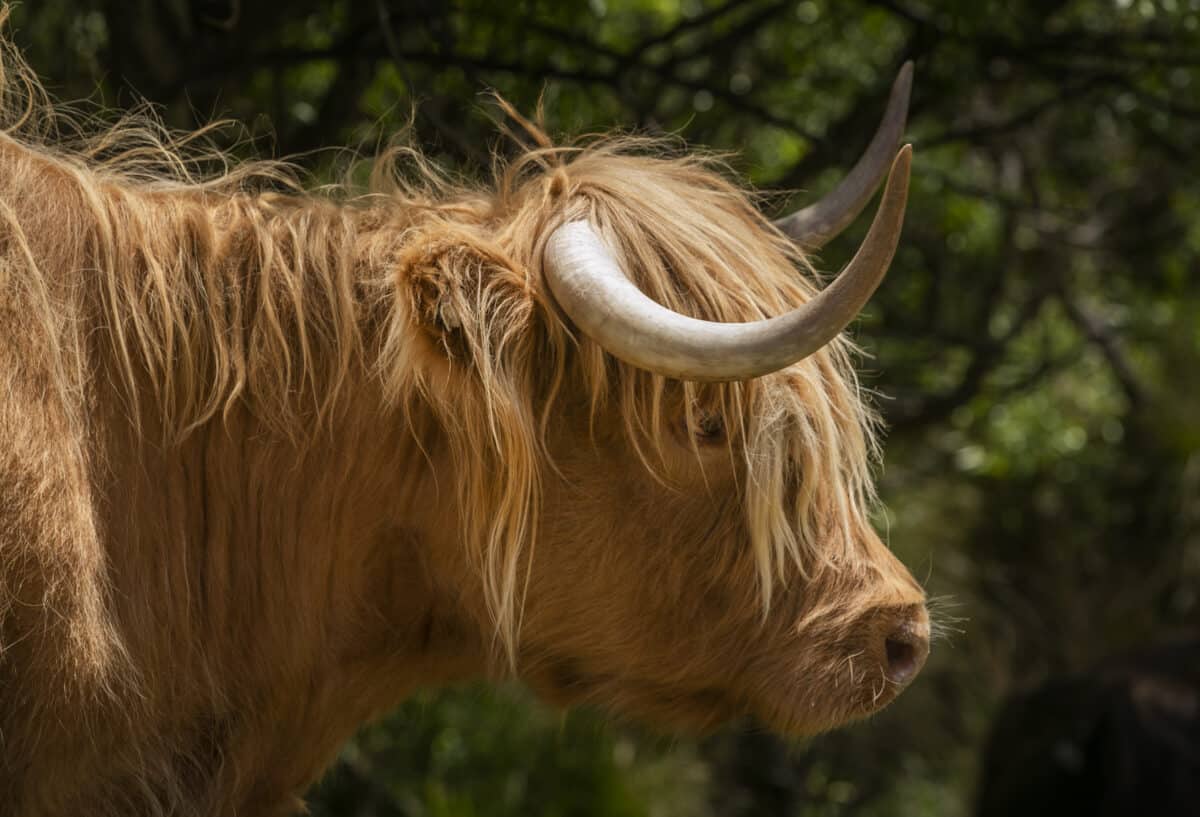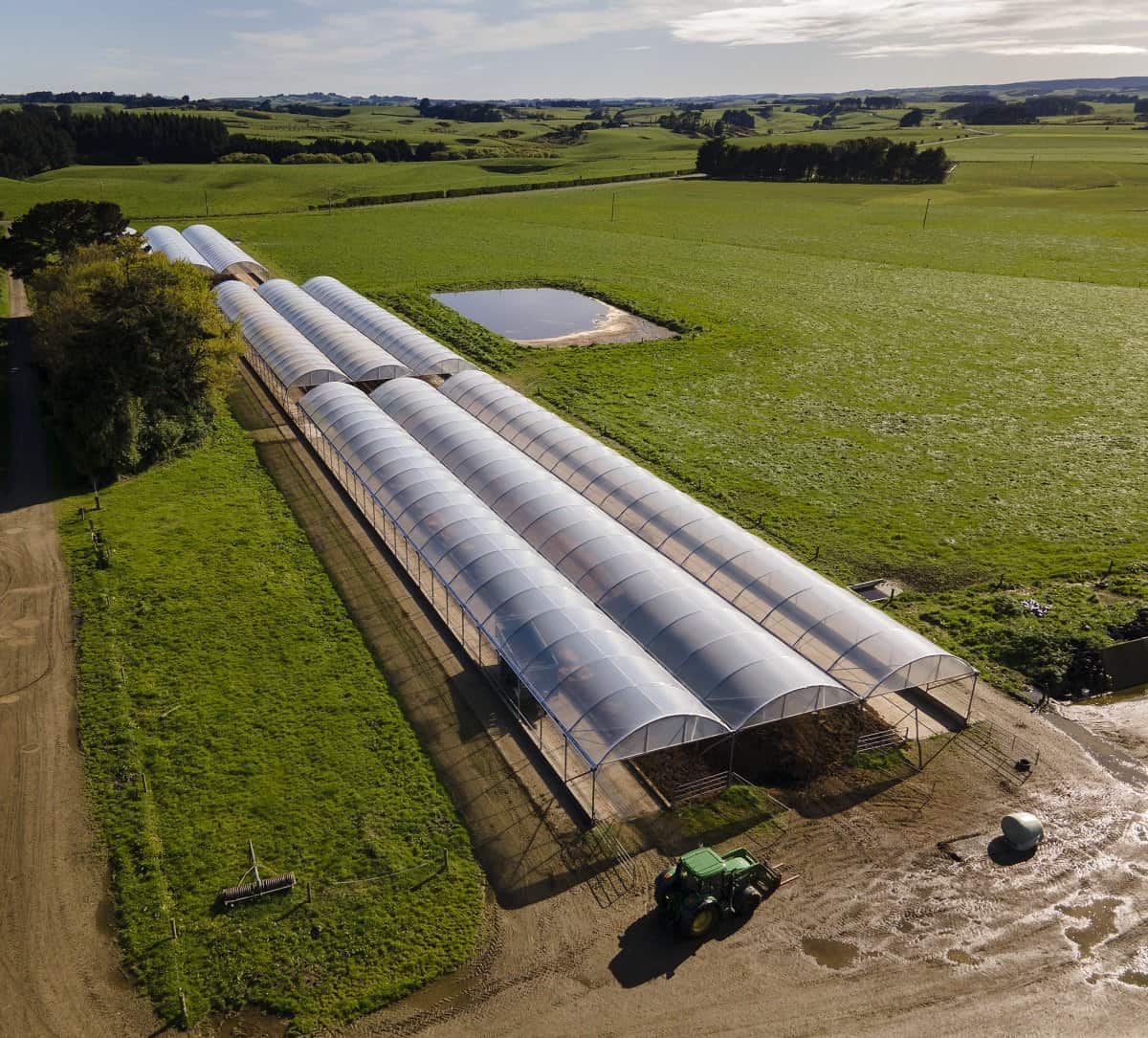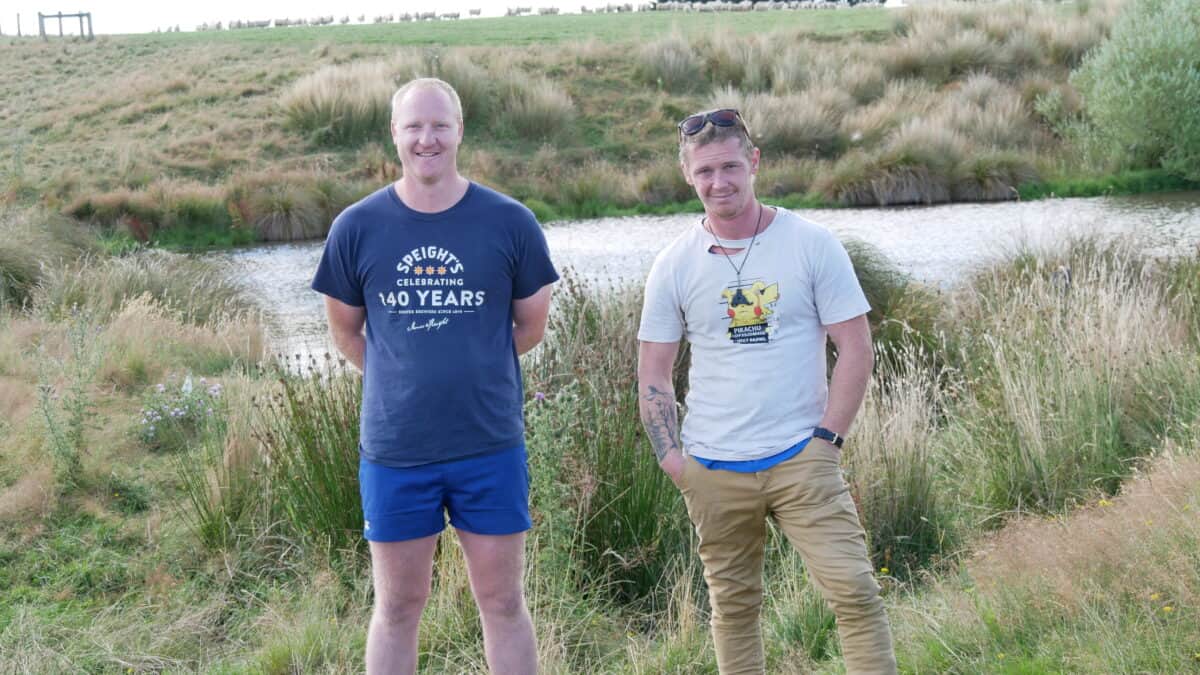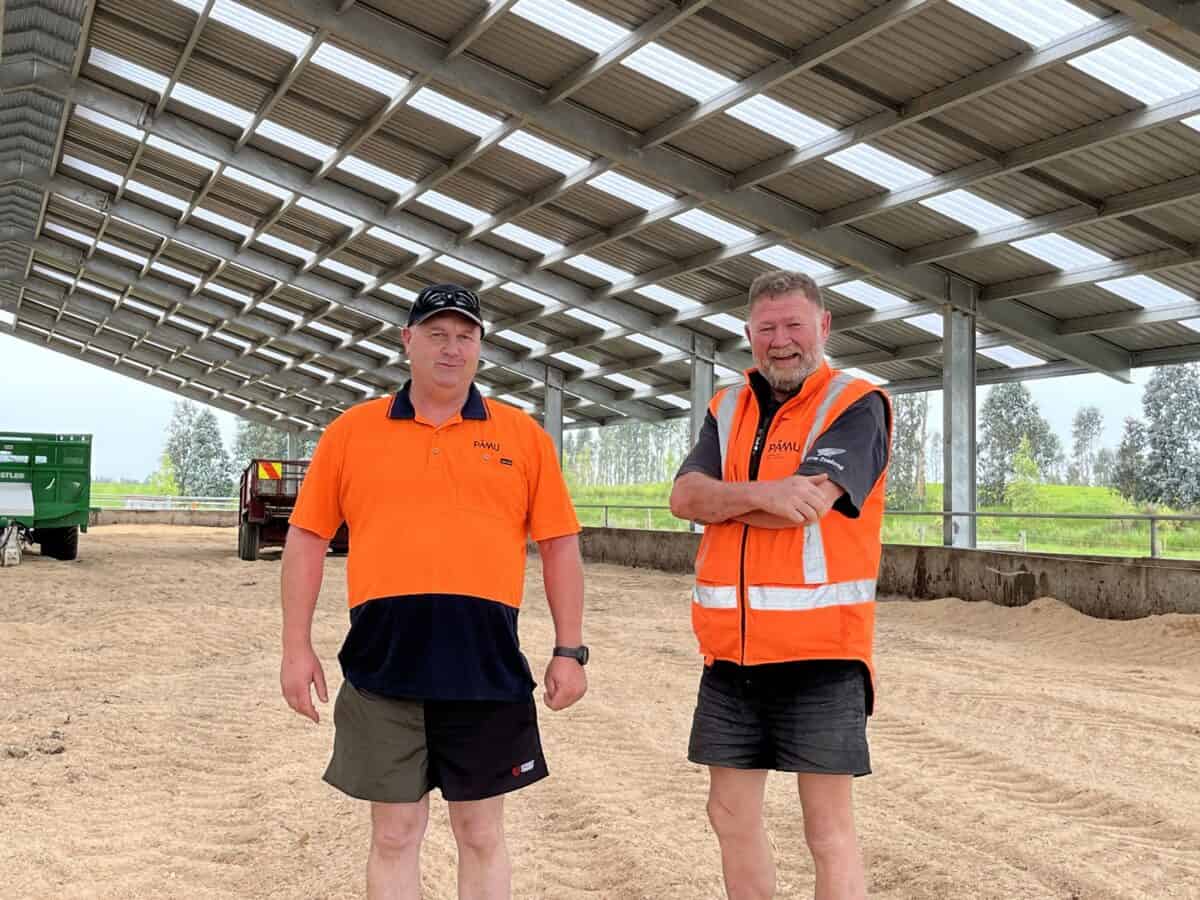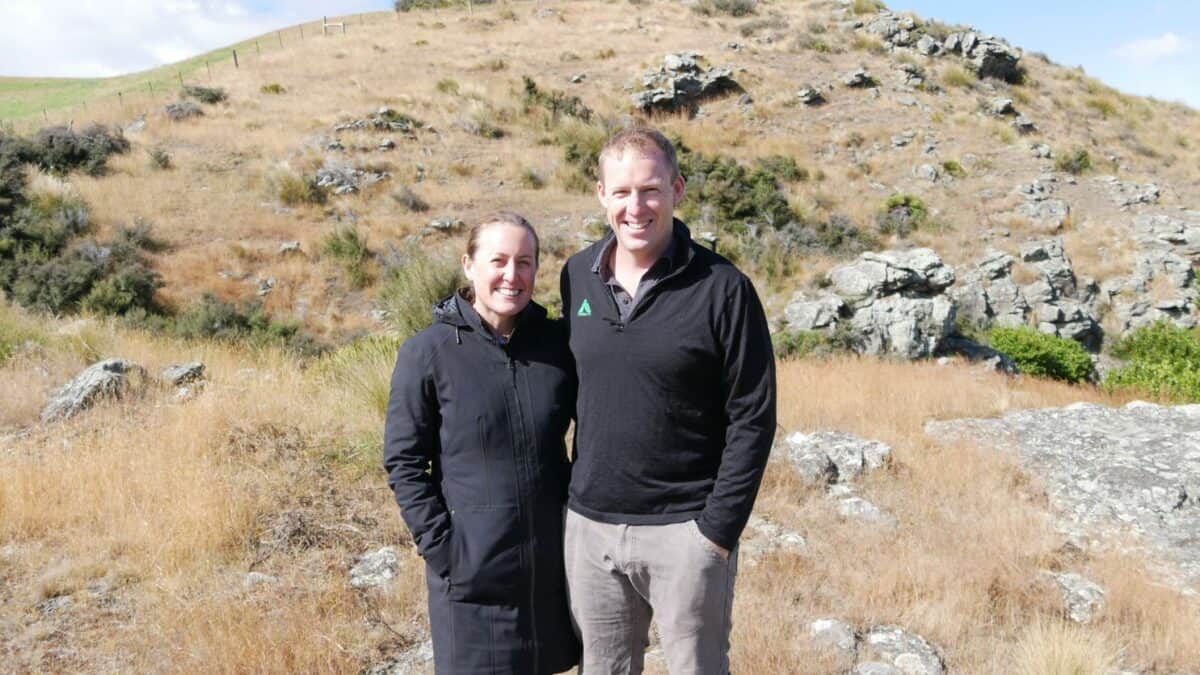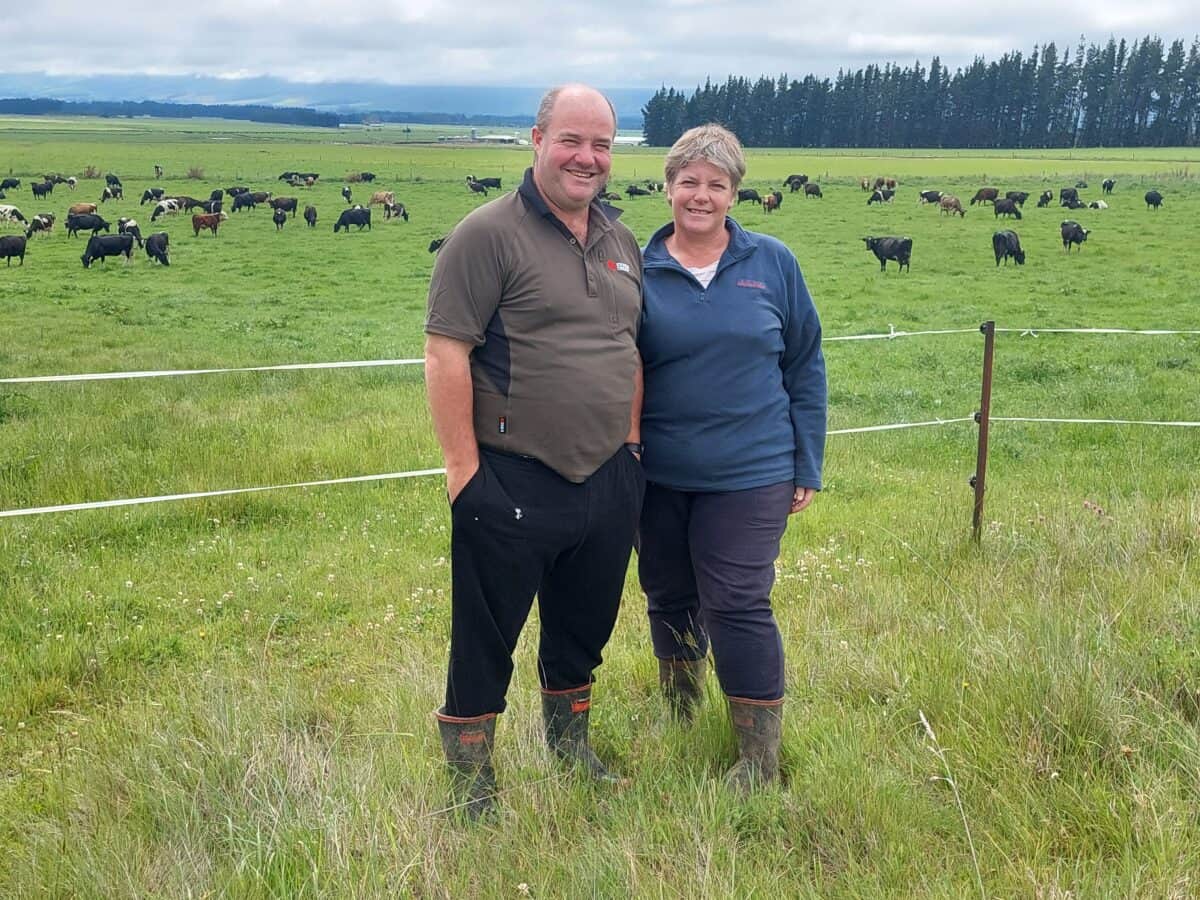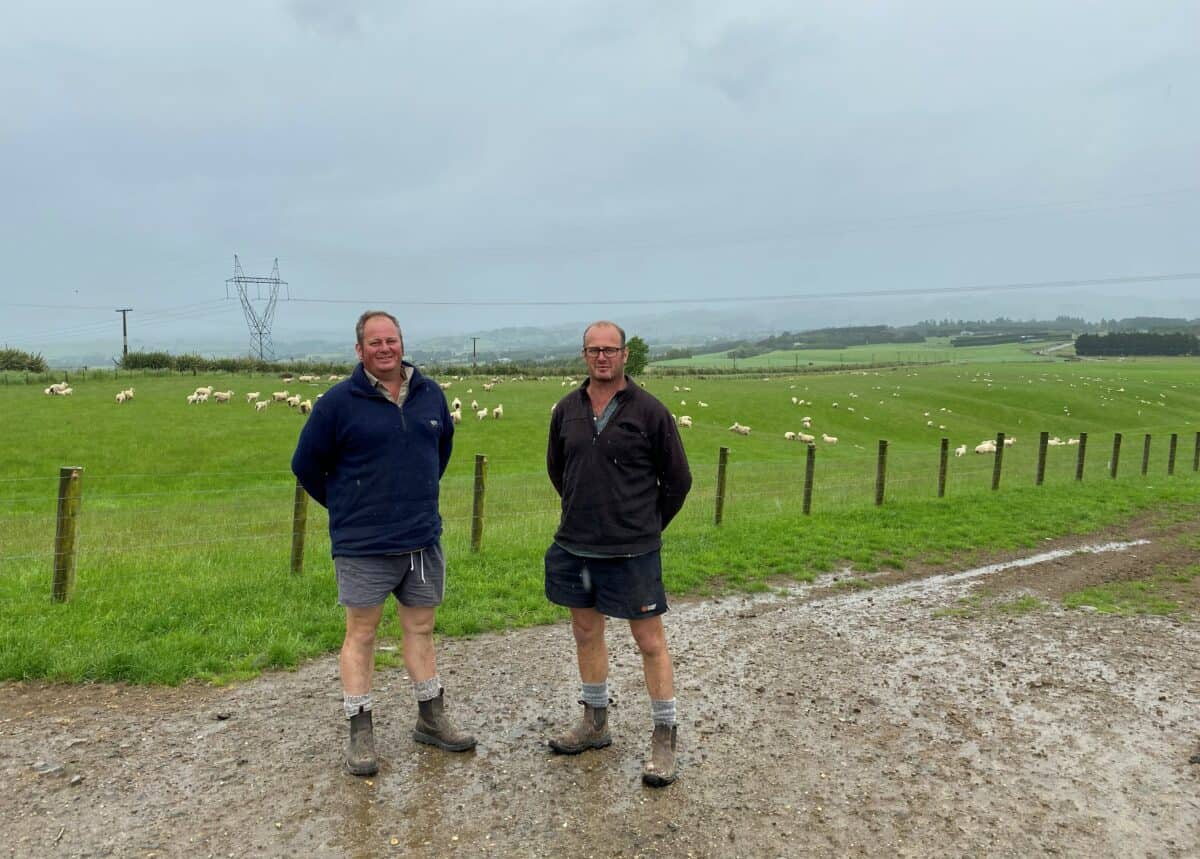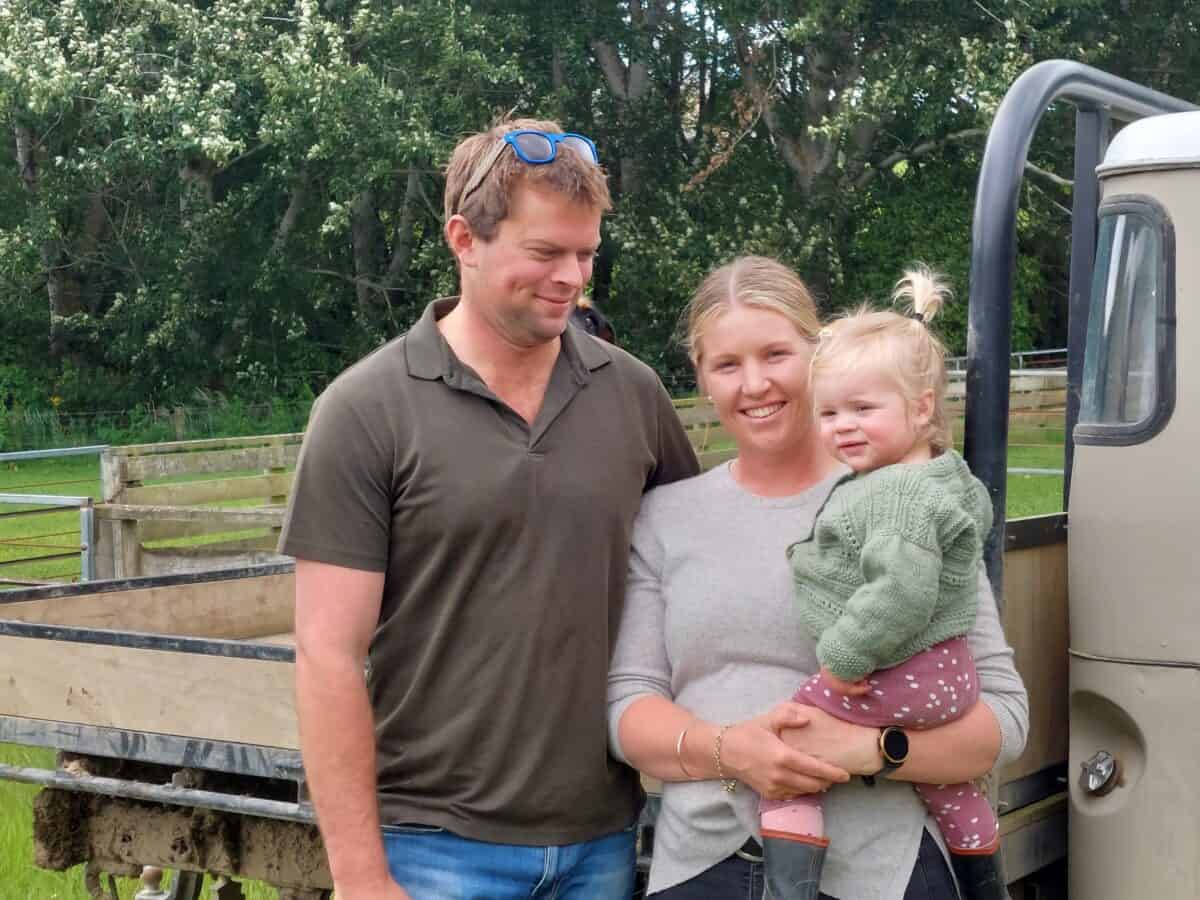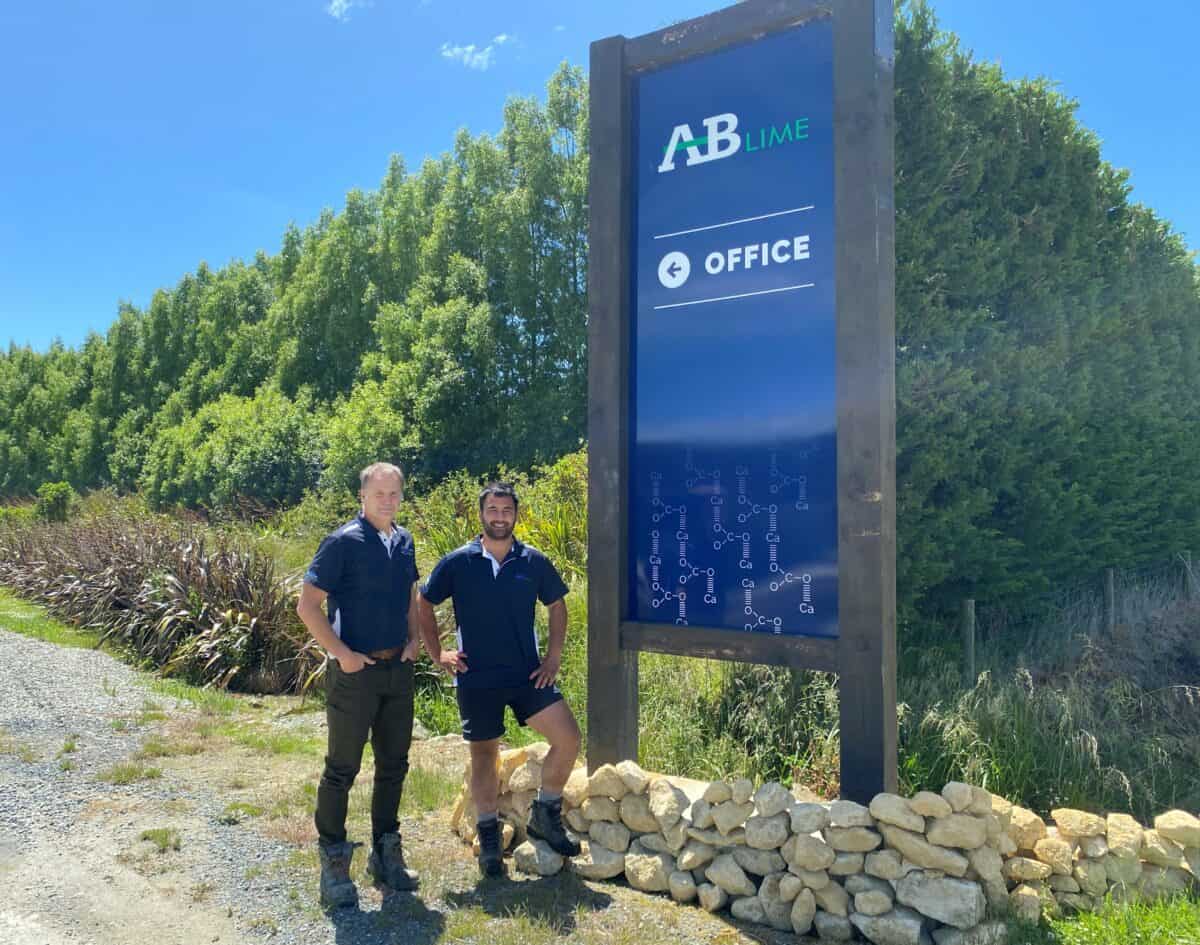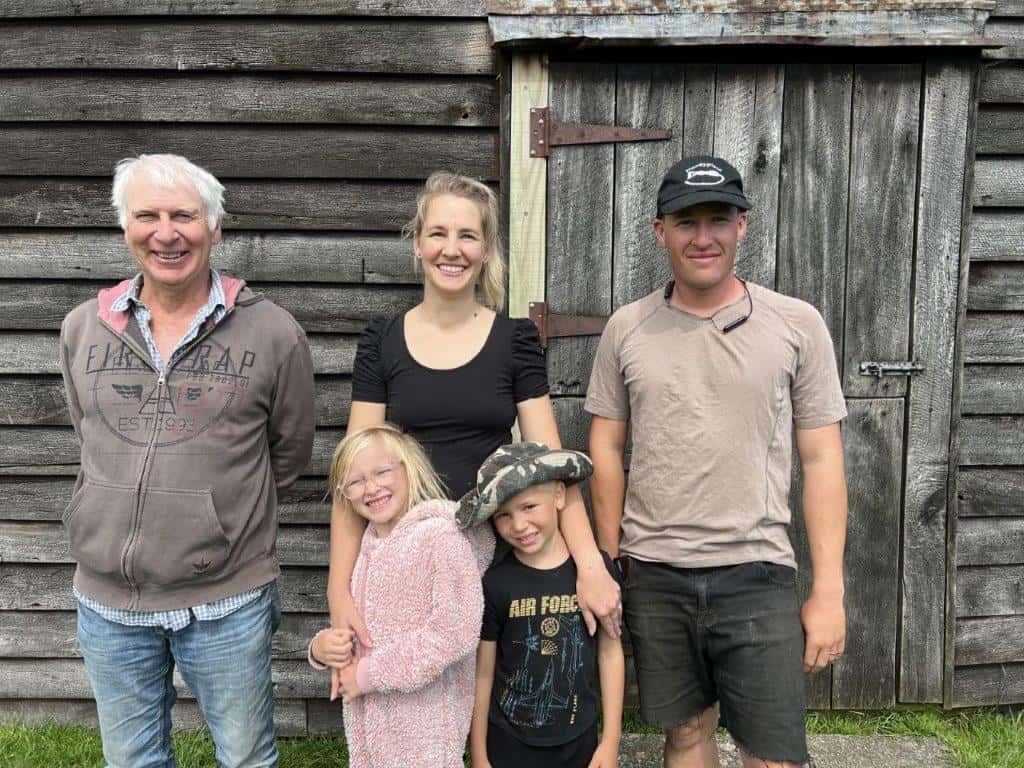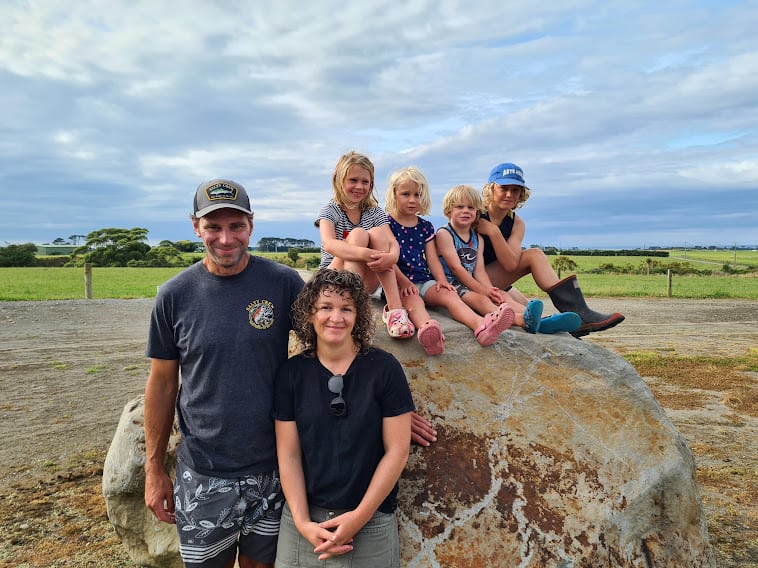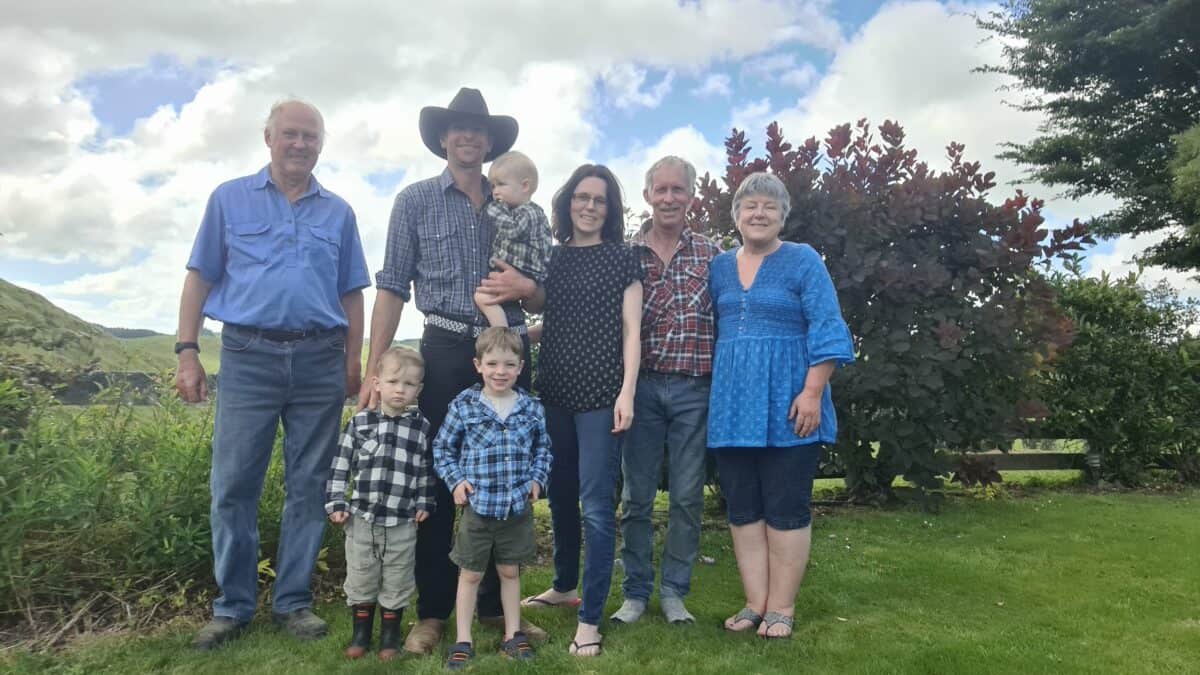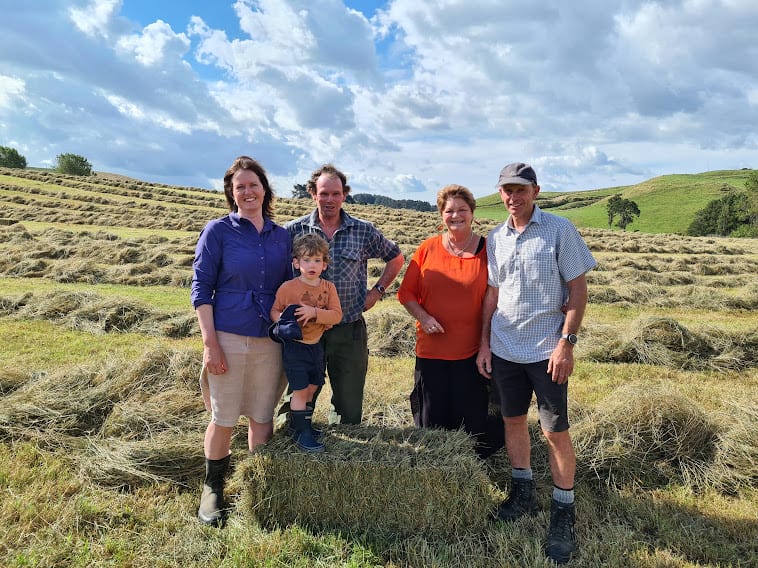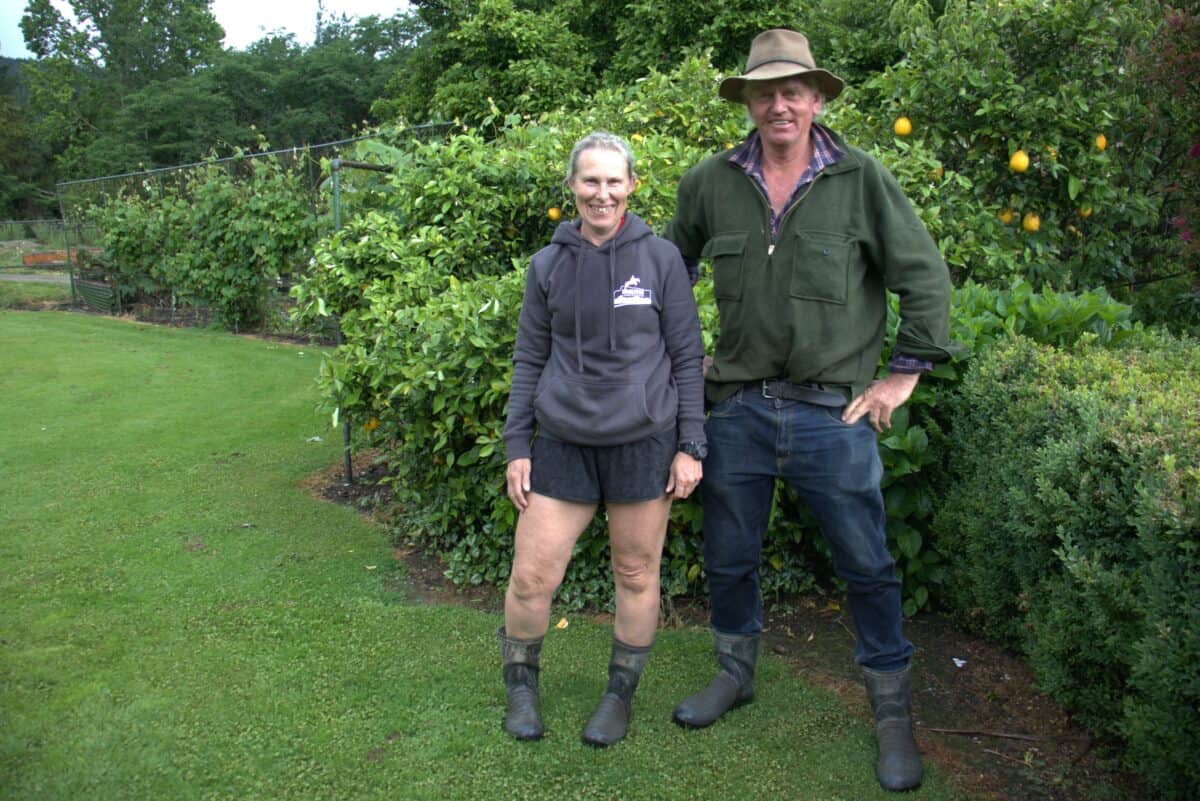Rupert Handyside
Matahiwi Farm – Lamb and cattle finishing
Rupert’s family connection to Matahiwi for 150 years means he’s highly aware of his obligations and responsibilities as a custodian of the land.
The mainstay of the business is fattening lambs and cattle for finishing, with 15,000 lambs and 800 R2 bulls finished annually.
Rupert’s philosophy is clean water in – clean water out. Water management includes a series of small dams that slow water flow and help remove sediment, while a large irrigation storage dam doubles as a lake for recreation.
Land use is carefully matched to soil type and the contour of land, influencing stock movements and the choice of plant species. Matahiwi has moved to a simplified all-grass system which has reduced inputs and energy requirements.
Biosecurity is tightly managed, with good protocols in place around animal movements and there’s a strong focus on enhancing the property’s biodiversity, including the protection and under-planting of existing bush blocks and kanuka gullies, and ongoing riparian planting.
Bevan Lambess (Manager)
Ular Gladstone- Viticulture
Manager Bevan Lambess and his team are committed to finding organic solutions that continually improve the quality of soil and fruit on this Bio-Gro certified organic property.
The last vintage produced about 170 tonnes of hand-picked grapes from 36ha – all of which supply the onsite winery. A lease block of 9ha has since been added which will contribute to the next vintage.
Soil fertility is actively managed to support the growth of quality grapes, and crops such as clover are planted under the vines – reducing cultivation and subsequently improving the topsoil. Beneficial insects are attracted to the vines by planting mixed plant species between the rows.
Bevan has a good understanding of climate change and his planning includes using grape varieties that are more resilient to potential diseases that could affect vine health. Water and nutrient requirements are closely monitored, ensuring the efficient management of inputs. Composted fertiliser is prepared on-site, with all waste graded and recycled.
Hull Family
Awakare – Dairy
The Hulls have been running Awakare since 1985, starting as 50:50 sharemilkers before purchasing it from Alison’s parents in 1999. Alison’s family connection to the property stretches back to 1927.
They peak milk between 180 and 200 Friesen cows on a milking platform of 85ha. Operating a pasture-based system, they bring in silage and supplements as needed. Pasture management is key, with a summer cropping programme that produces high-quality pasture and boosts milking through dry periods.
A focus on improving herd health and reproductive performance is paying off. Their production targets are 380 to 400kg of milk solids per cow. Once a day milking is used in summer and autumn months, allowing cows to achieve the correct condition score for calving.
Native trees have been planted which enhance the property’s biodiversity and create habitats for native wildlife. Native birds now flourish on the property and their work improving the wetlands is protecting the native fish.
Patrizia Vieno and Rod Clutton
Rewa Rewa Station – Sheep and beef breeding
Patrizia and Rod emigrated to New Zealand in 2011 after purchasing Rewa Rewa Station where they run4,300 Romney sheep and 140 Angus cattle.
Significant improvements to infrastructure have ensured the business is more resilient and responds to climate change.
Bi-annual soil testing and careful fertiliser management is their number one tool. The result is a significant correction in the soil balance, resulting in improved pasture, increased animal weight and birth rates, and better profits.
Returning to the pure Romney breed means survival rates have increased dramatically. Production has been boosted by a strong focus on both parasite management and condition scoring.
Part of a diversification strategy has been the introduction of 30 purebred cashmere goats to add to their sheep and alpacas.
A sustainable environmental programme includes forestry and riparian planting, water conservation and a filtration scheme. They also recycle baleage wrap, household waste and even dags which are used as garden mulch.
Enter the Ballance Farm Environment Awards
